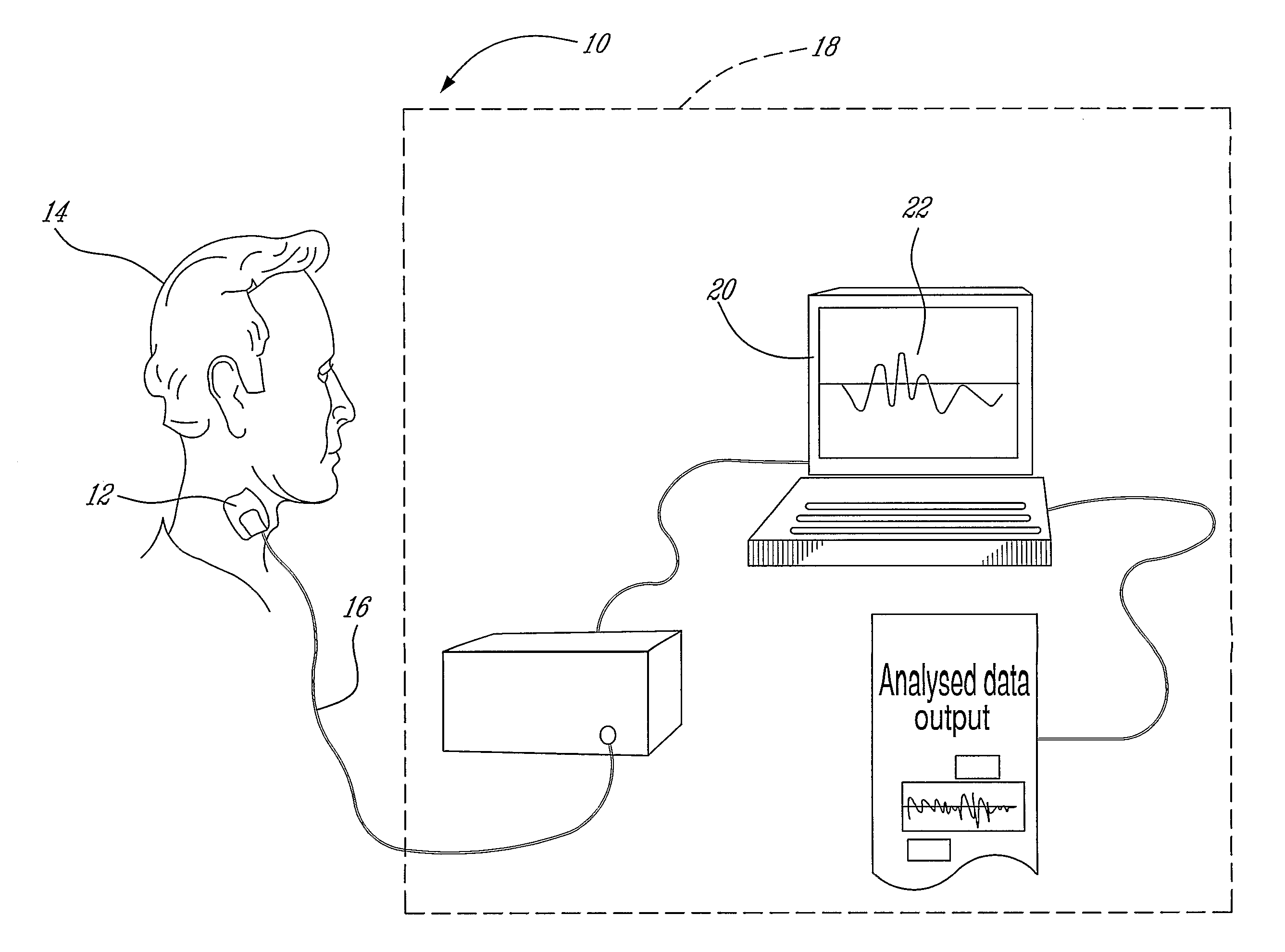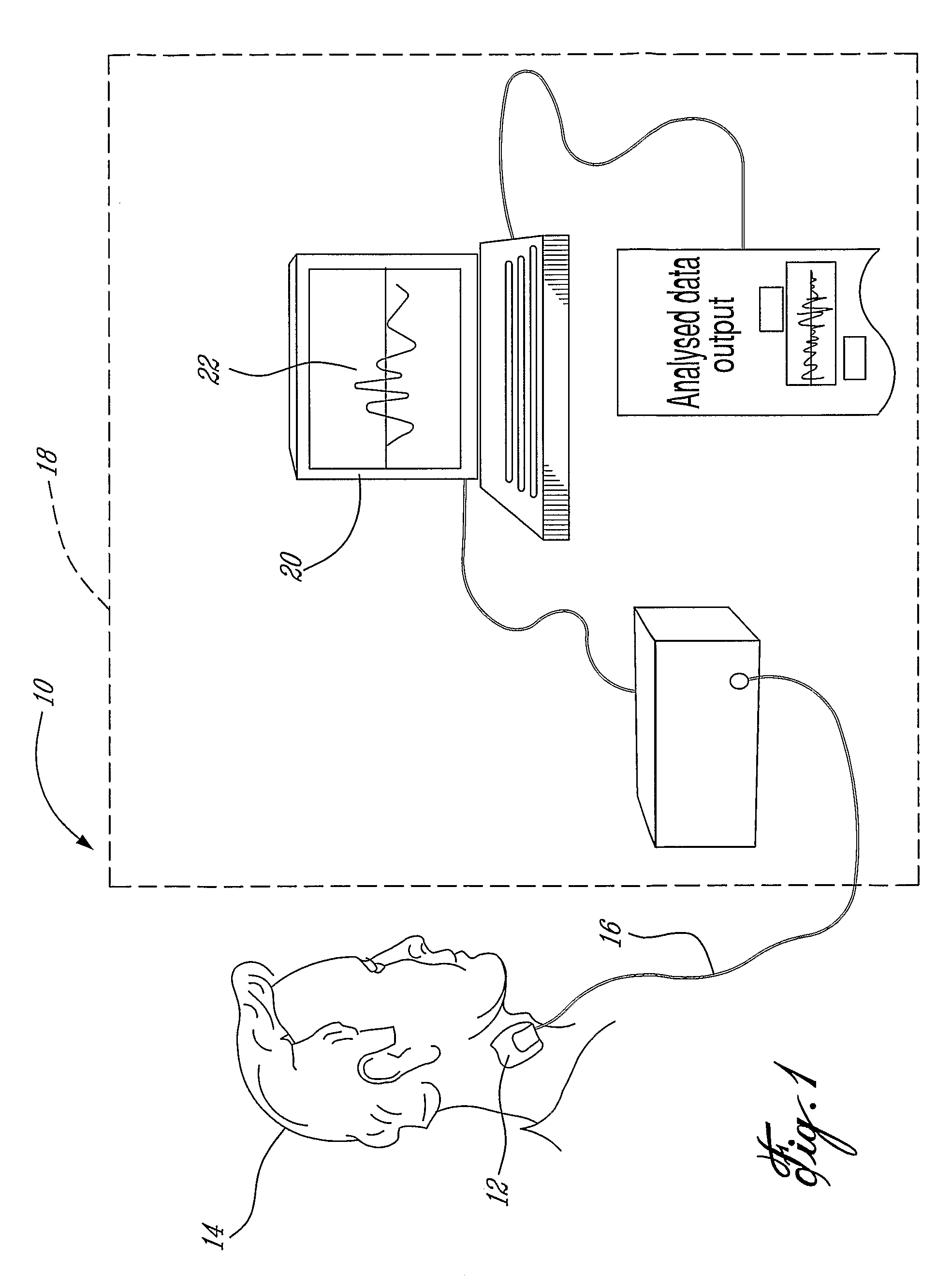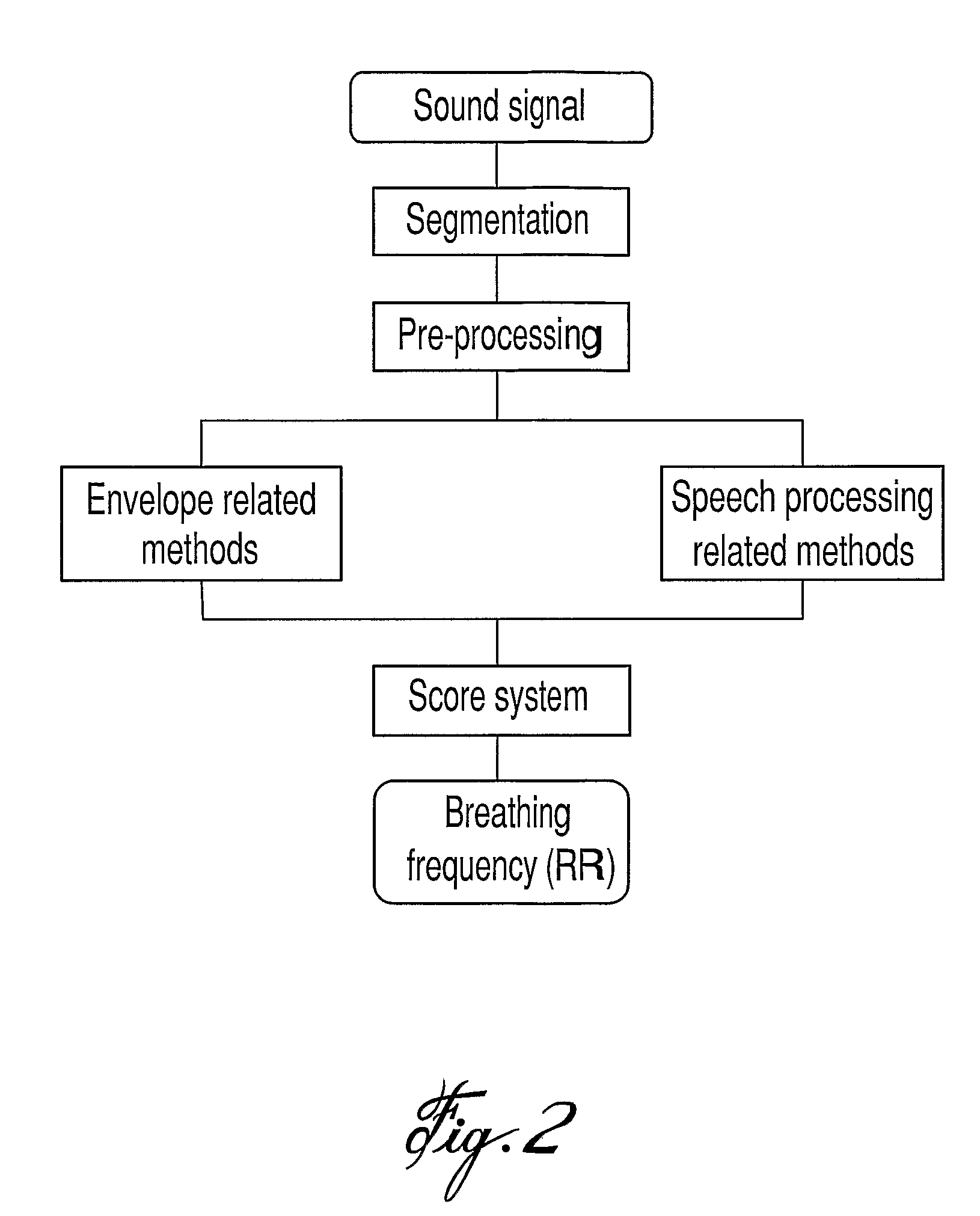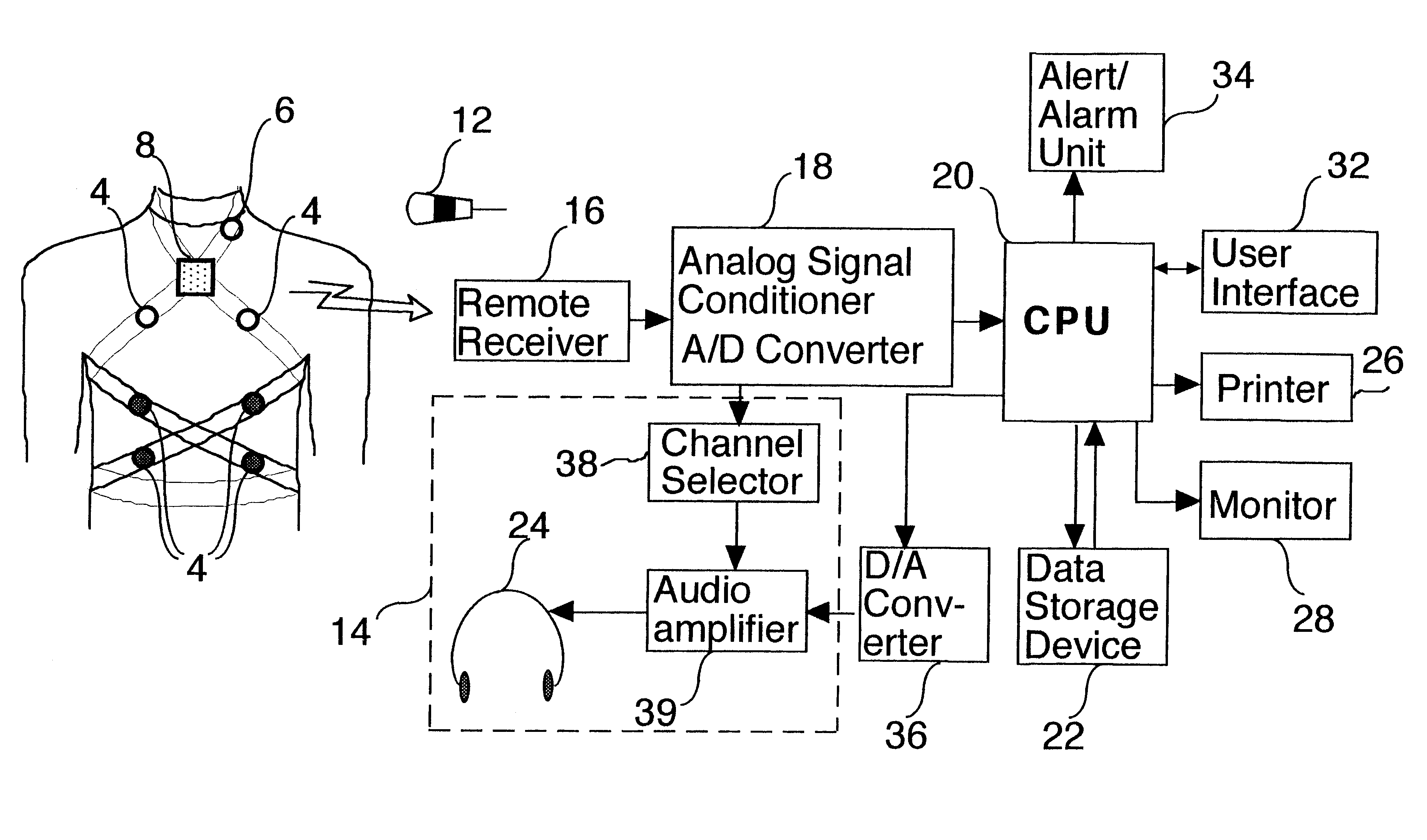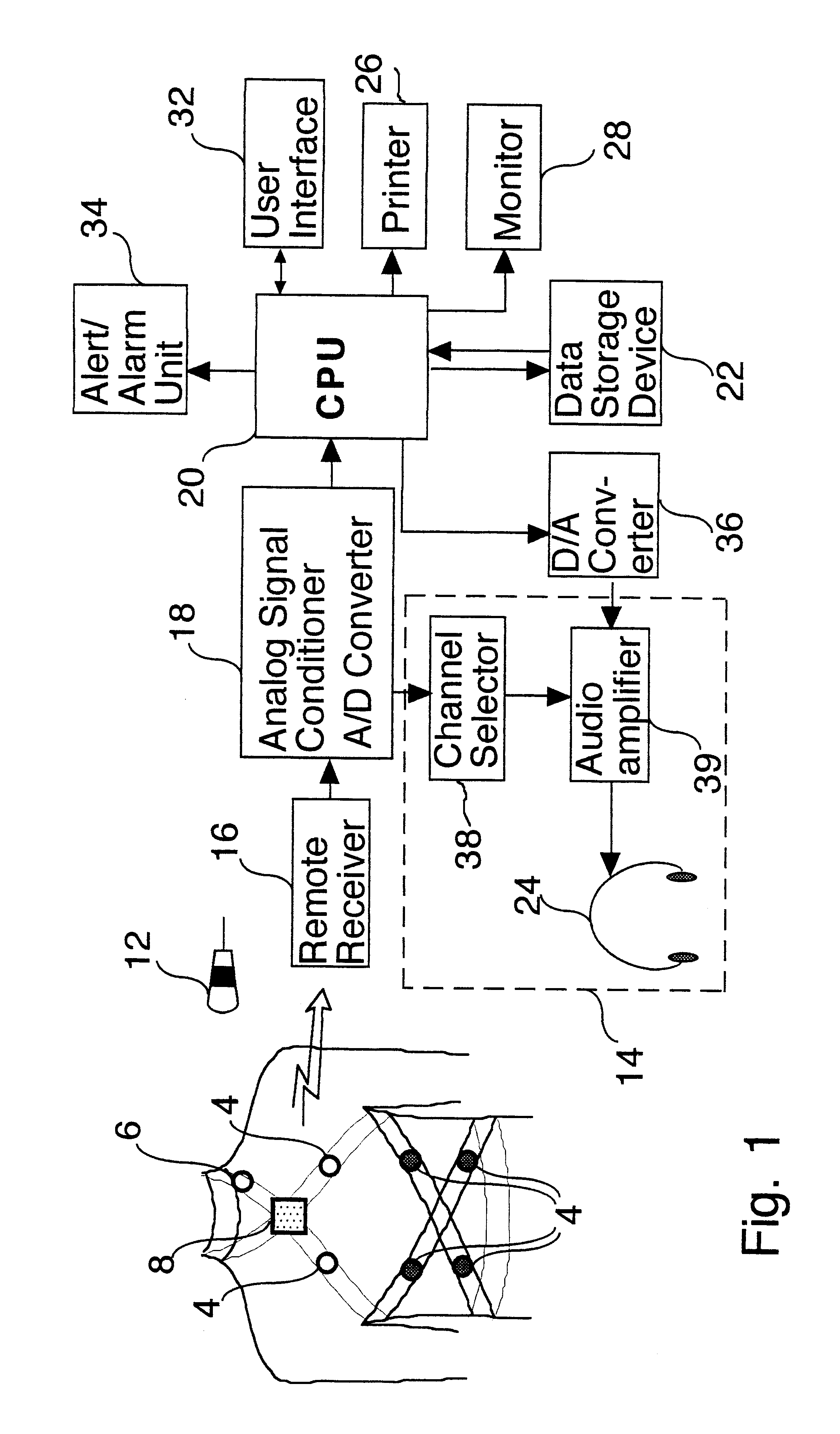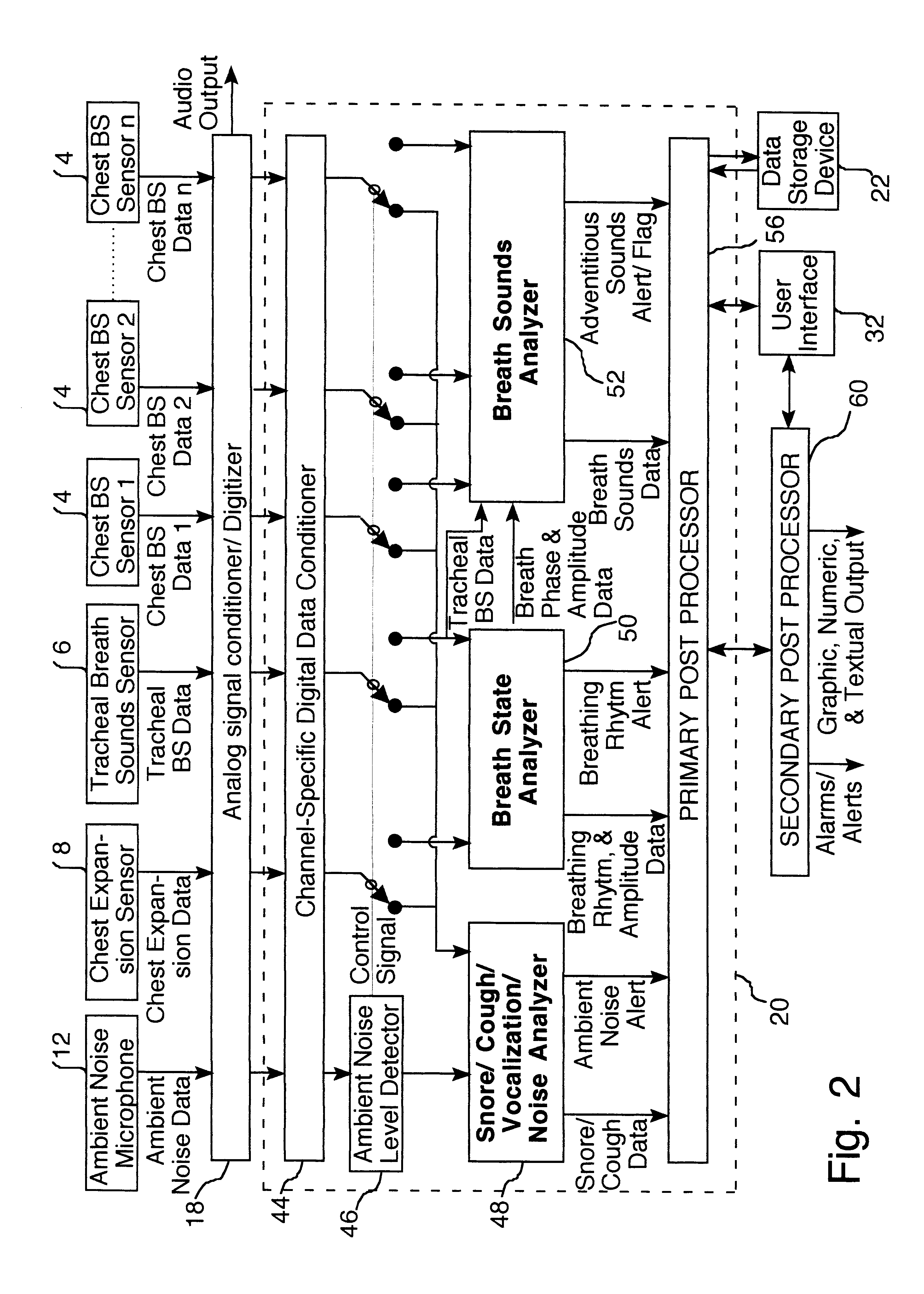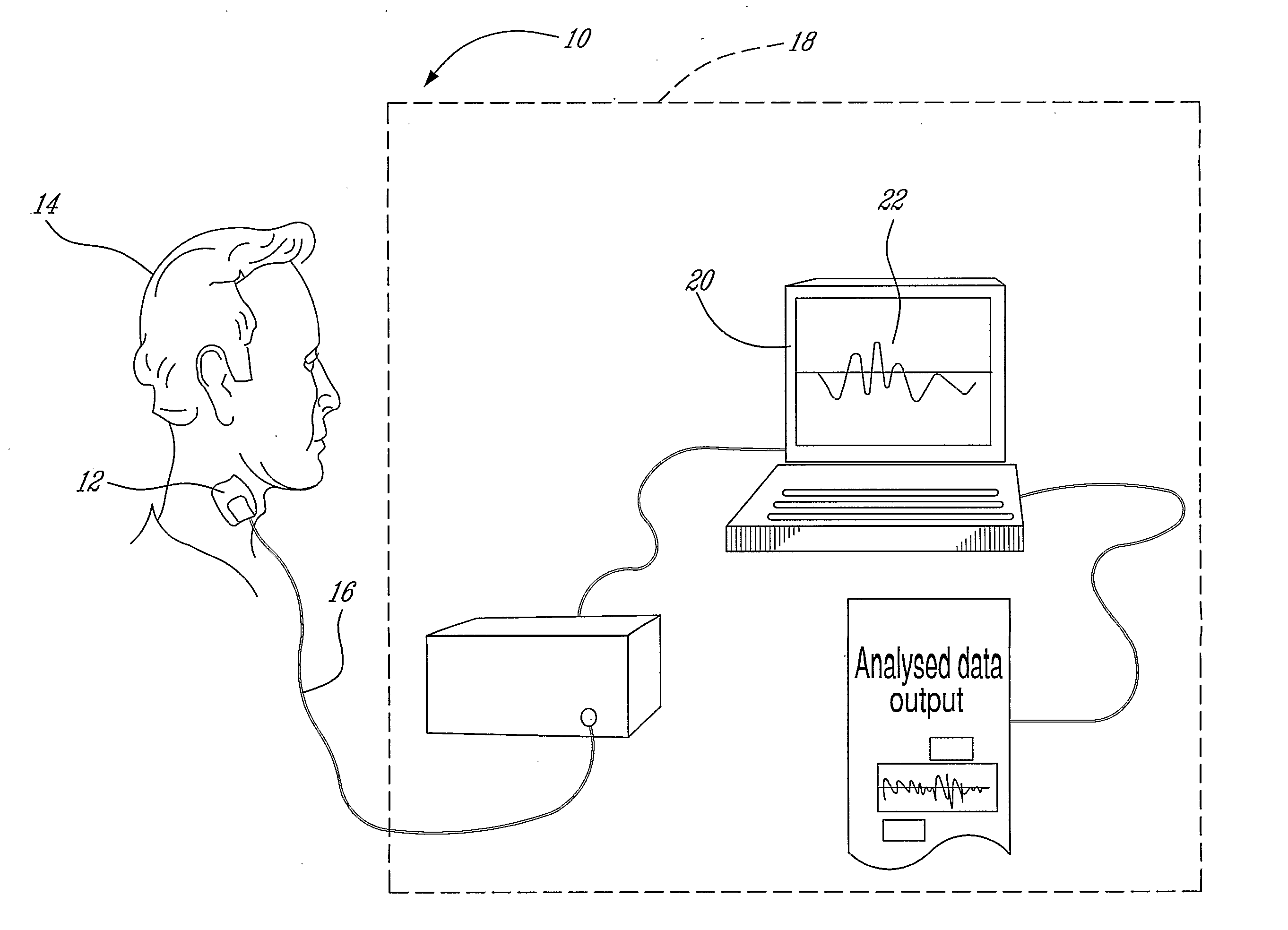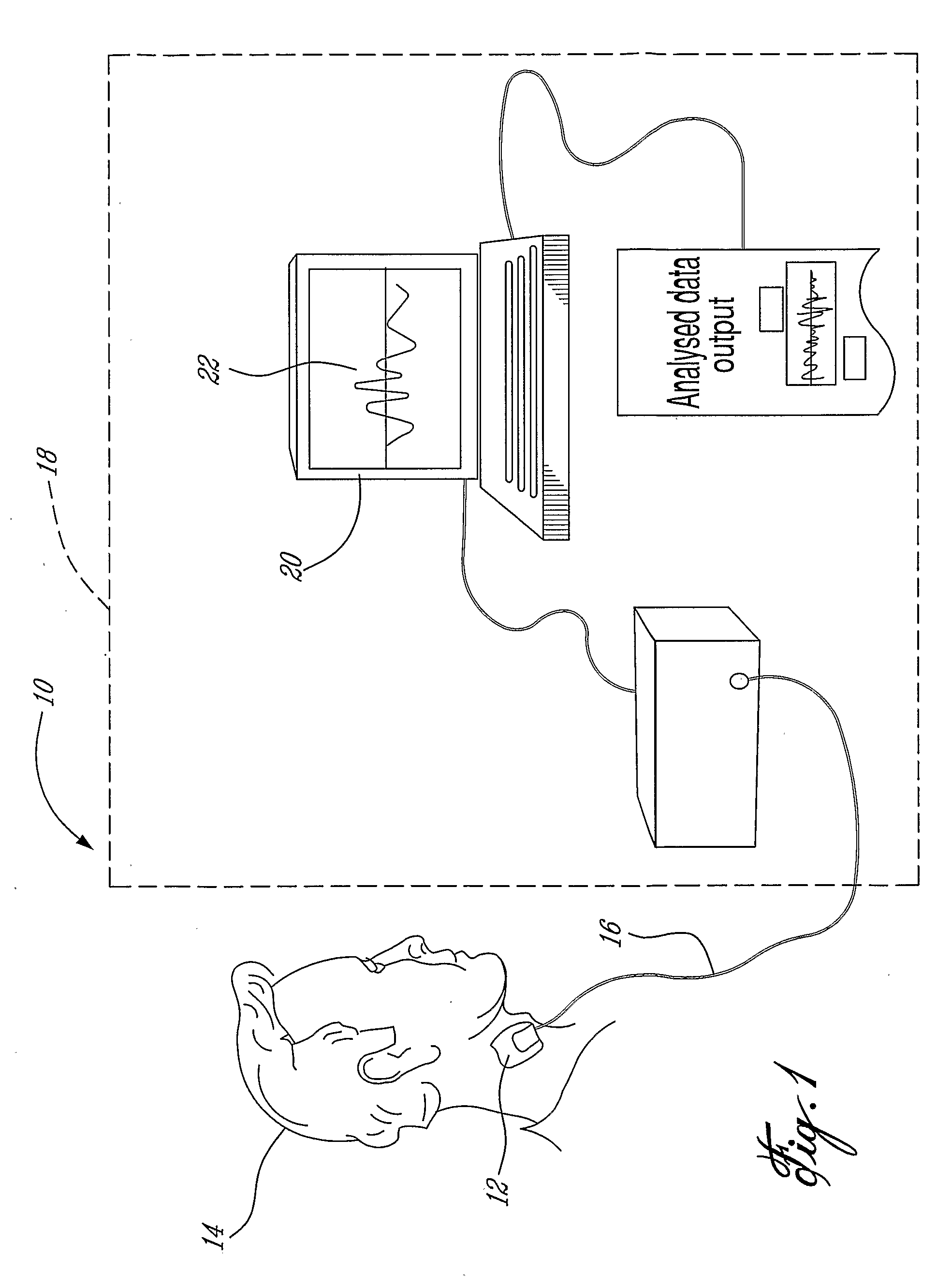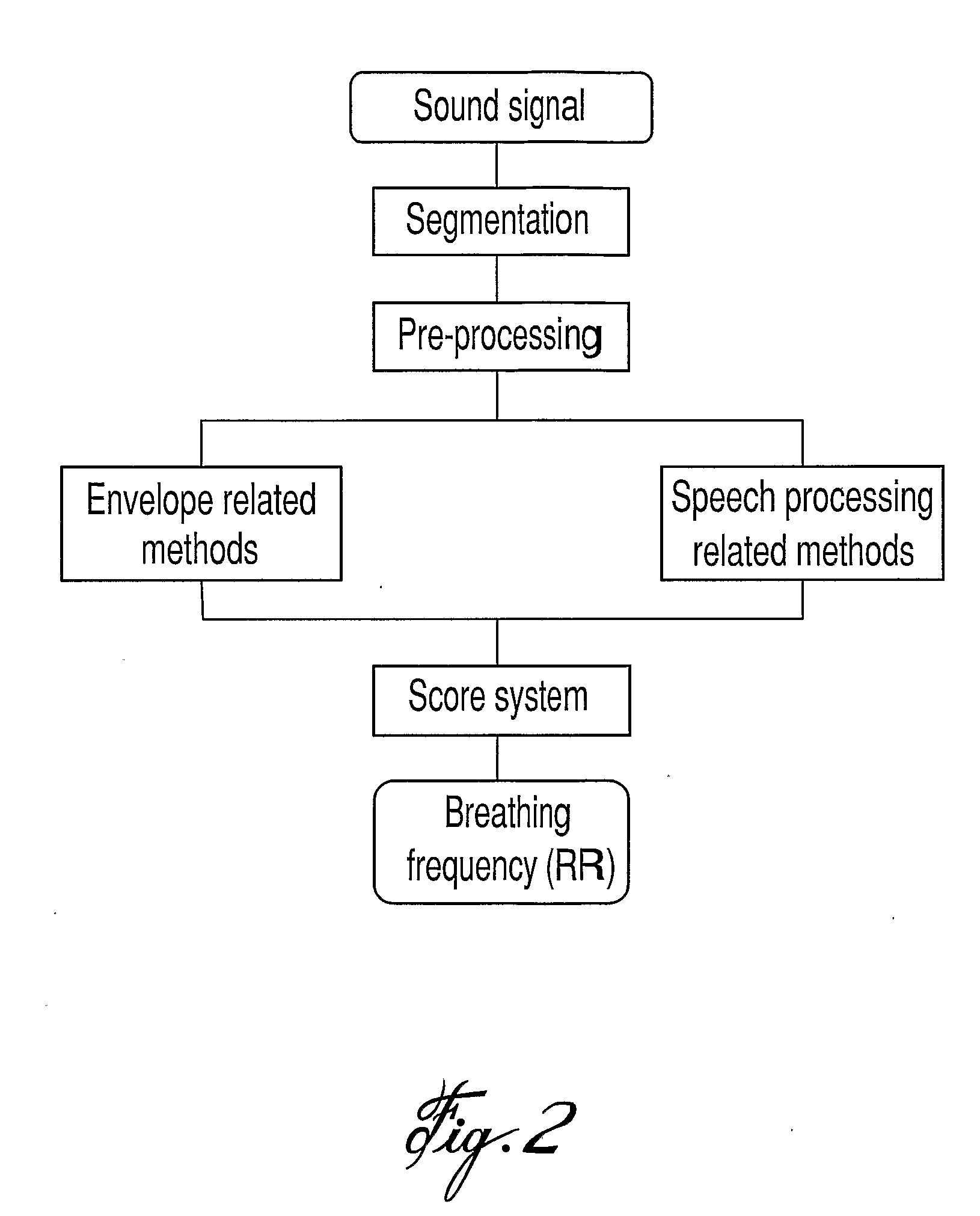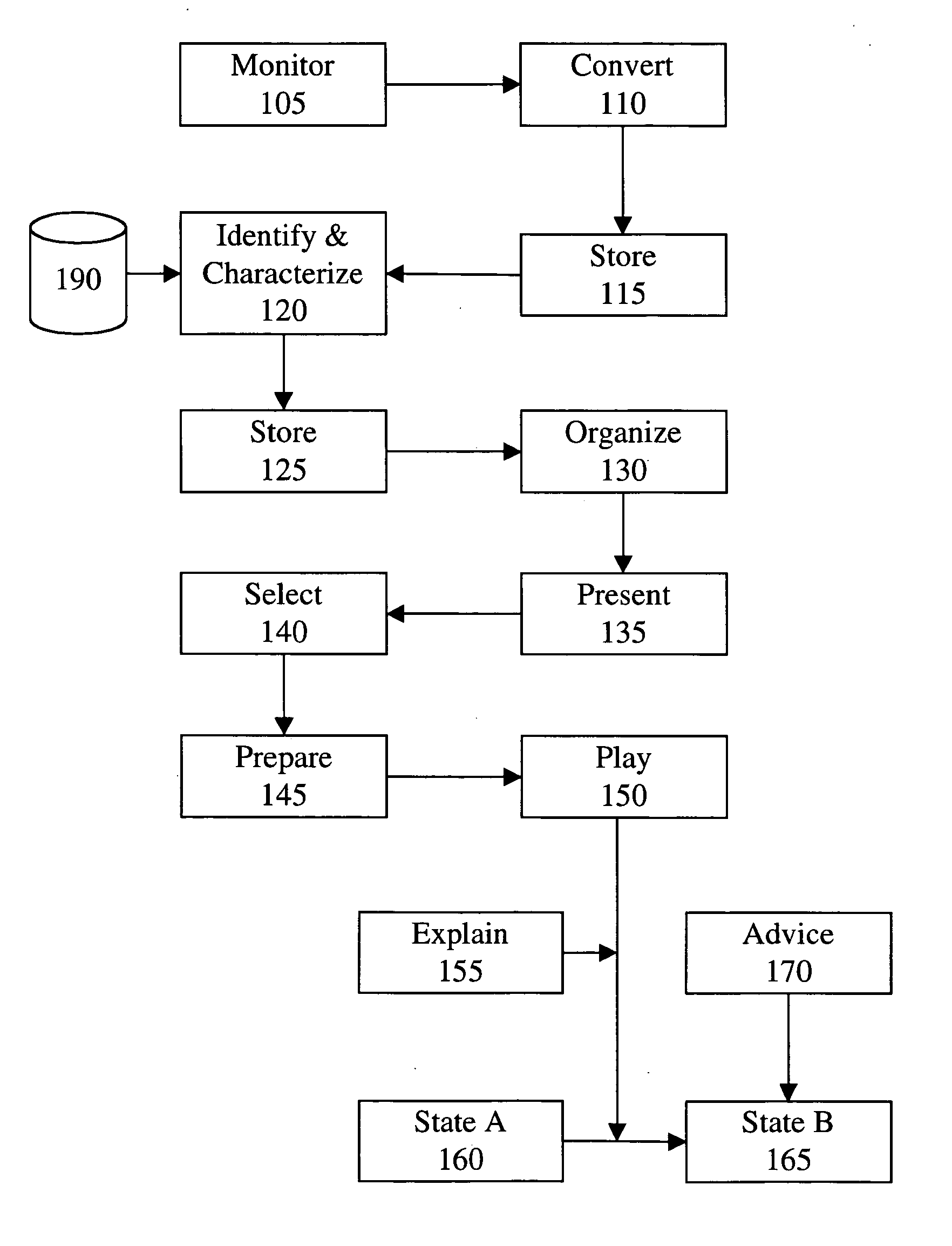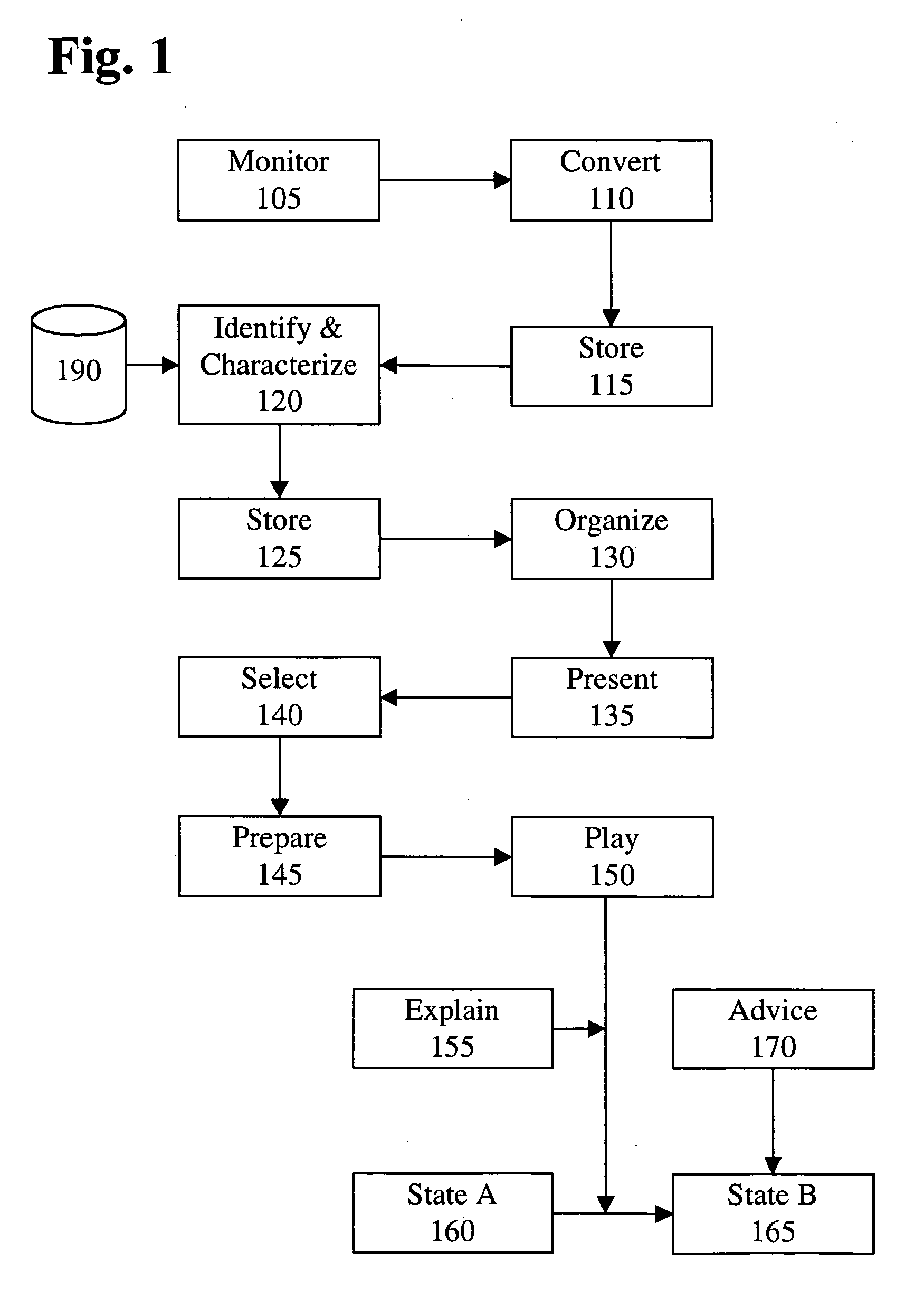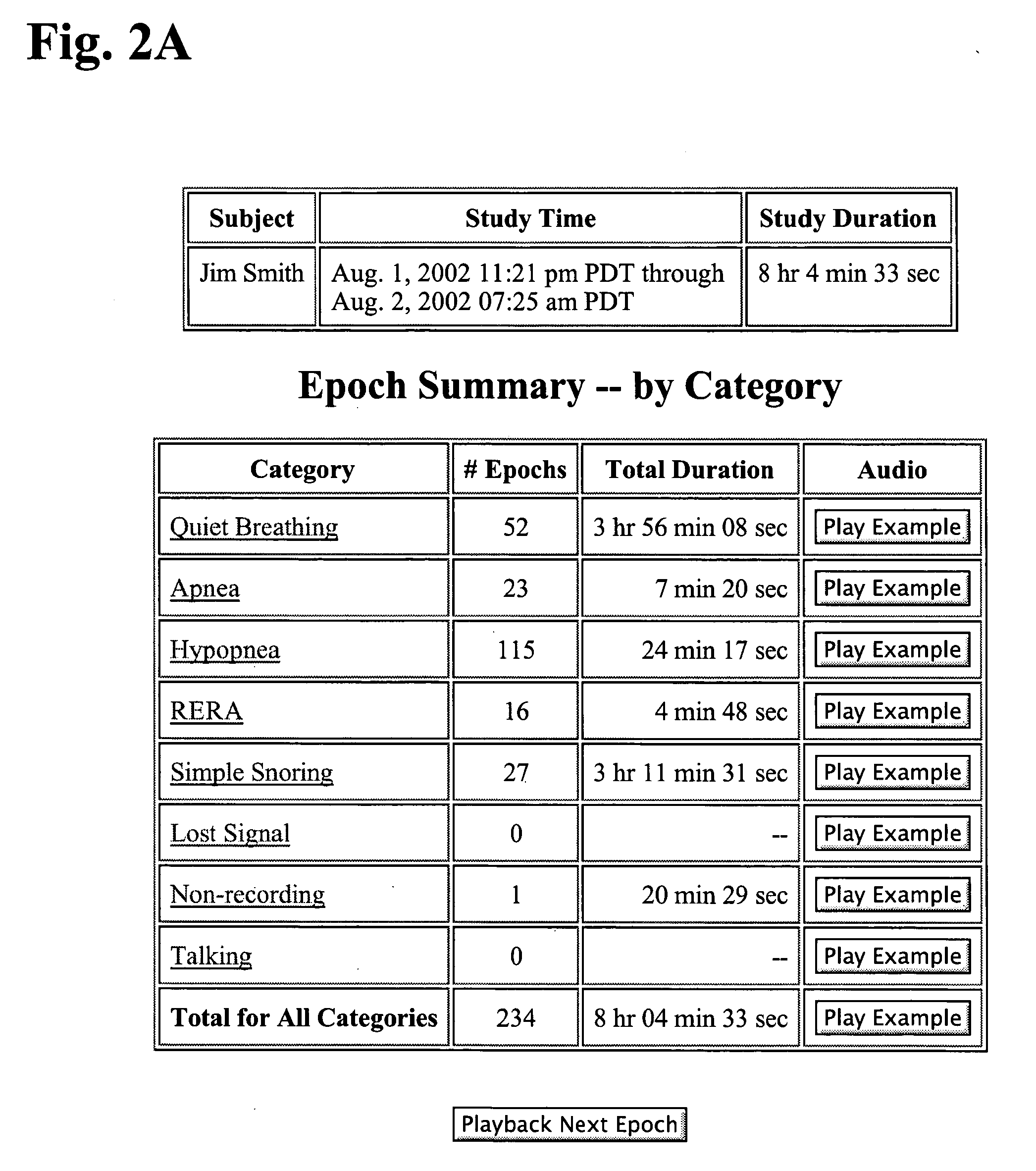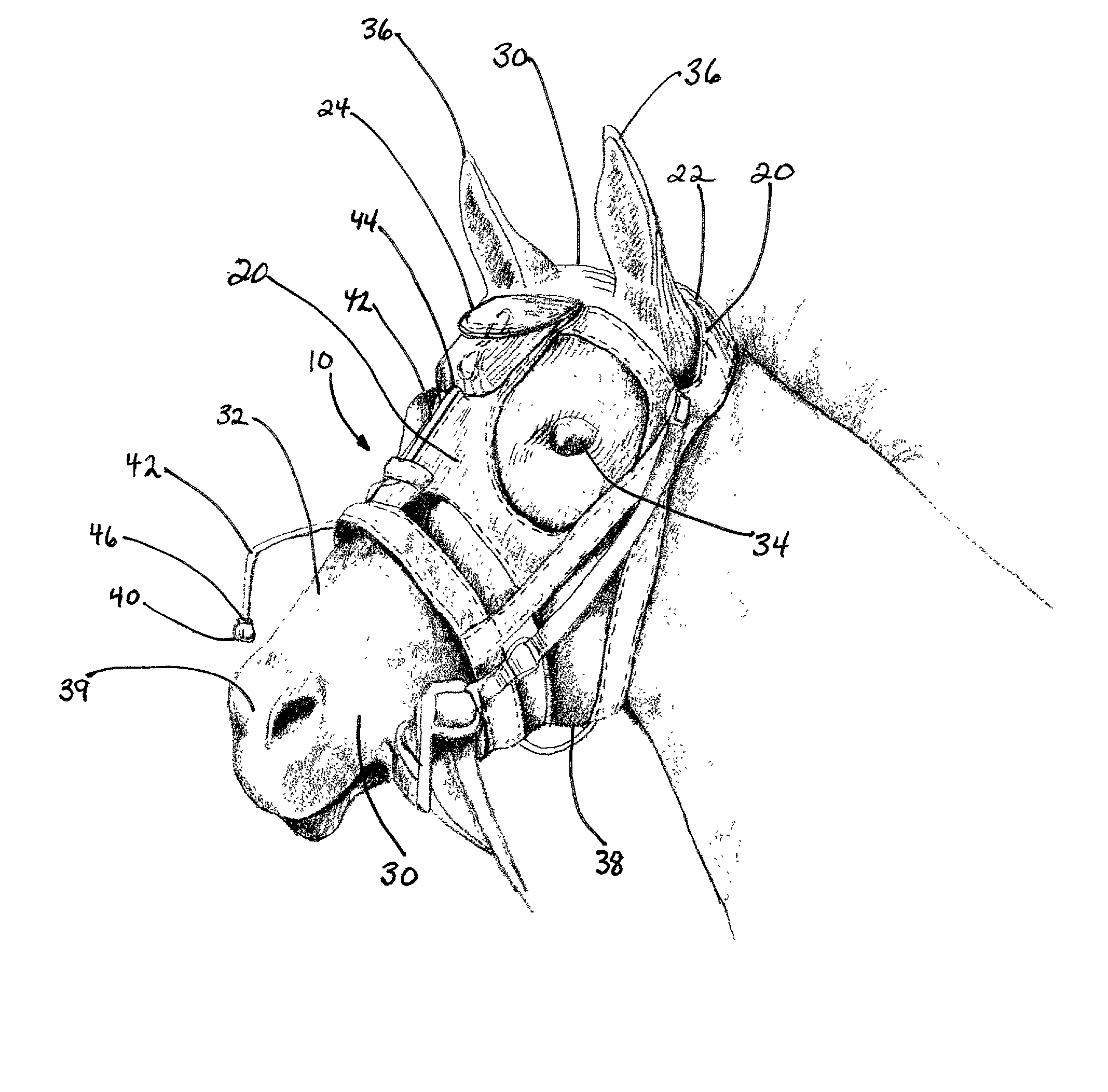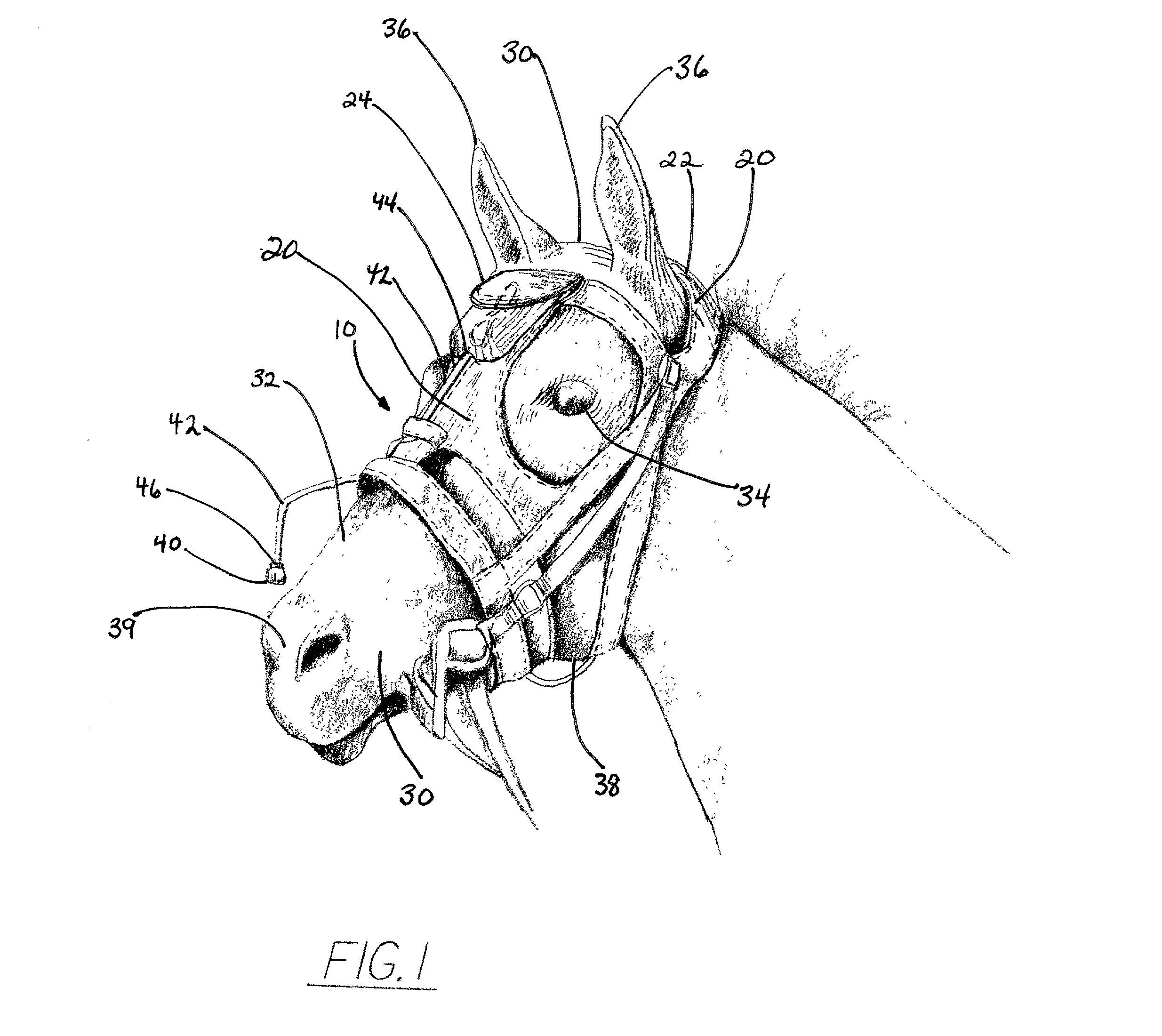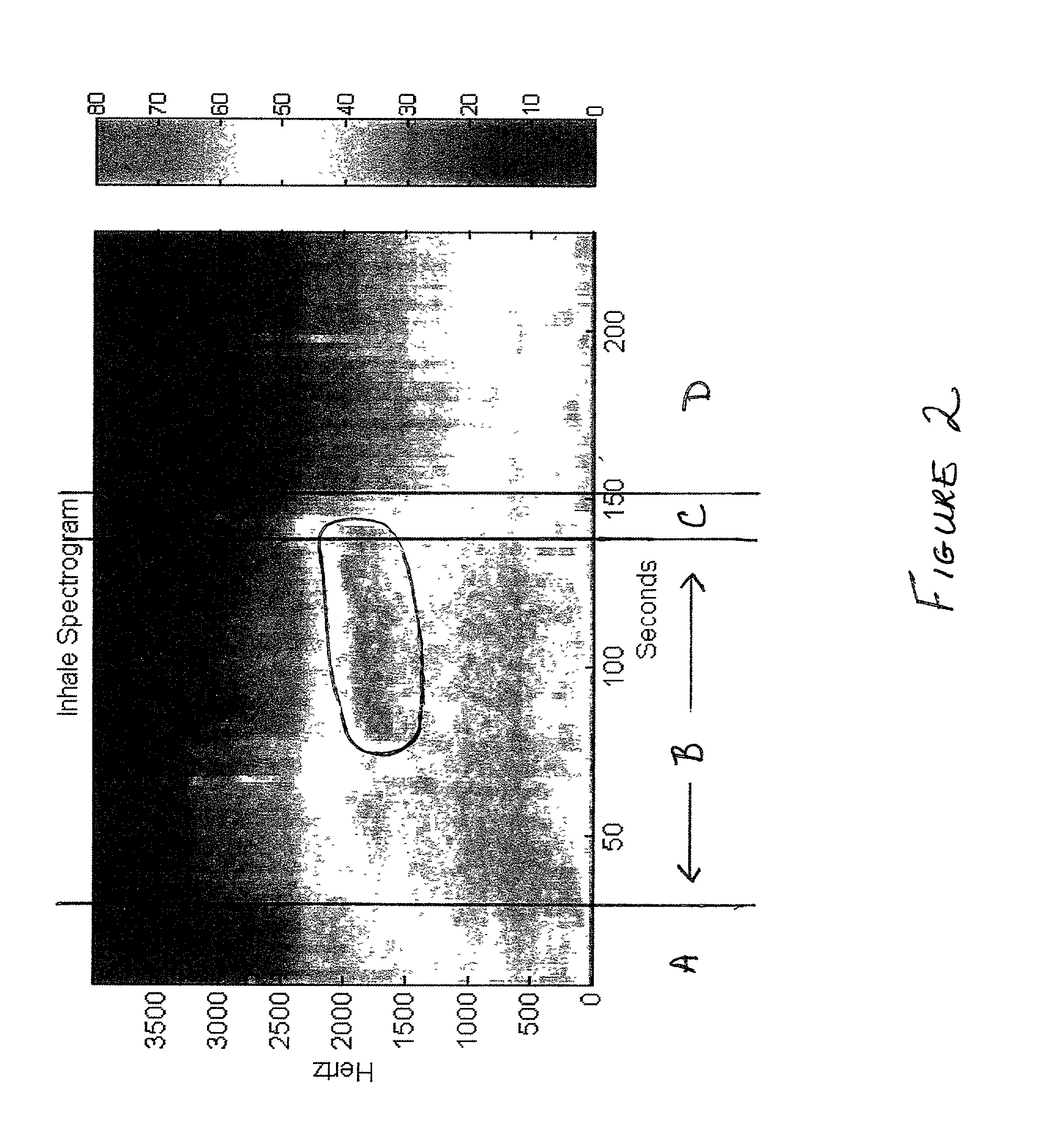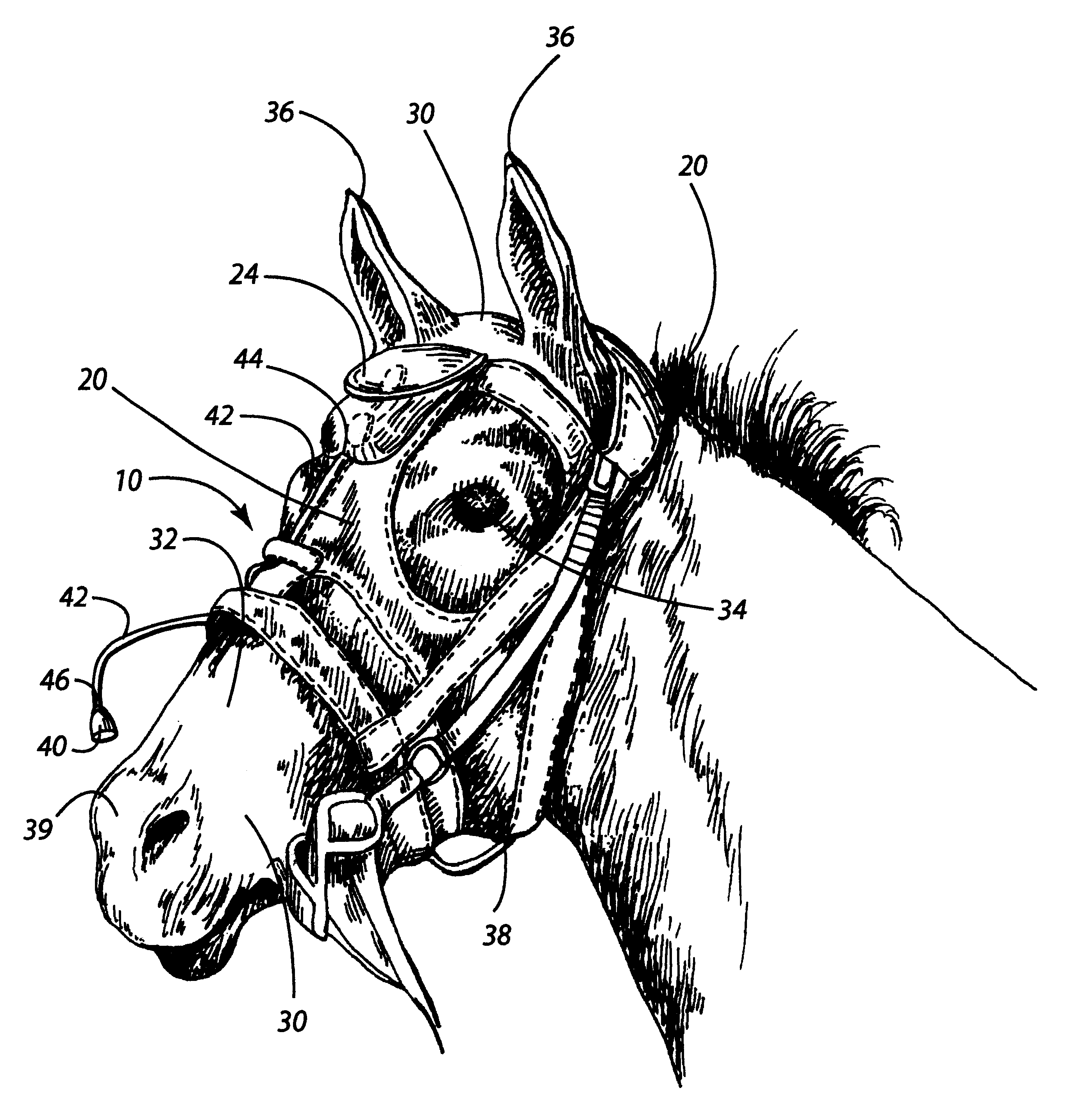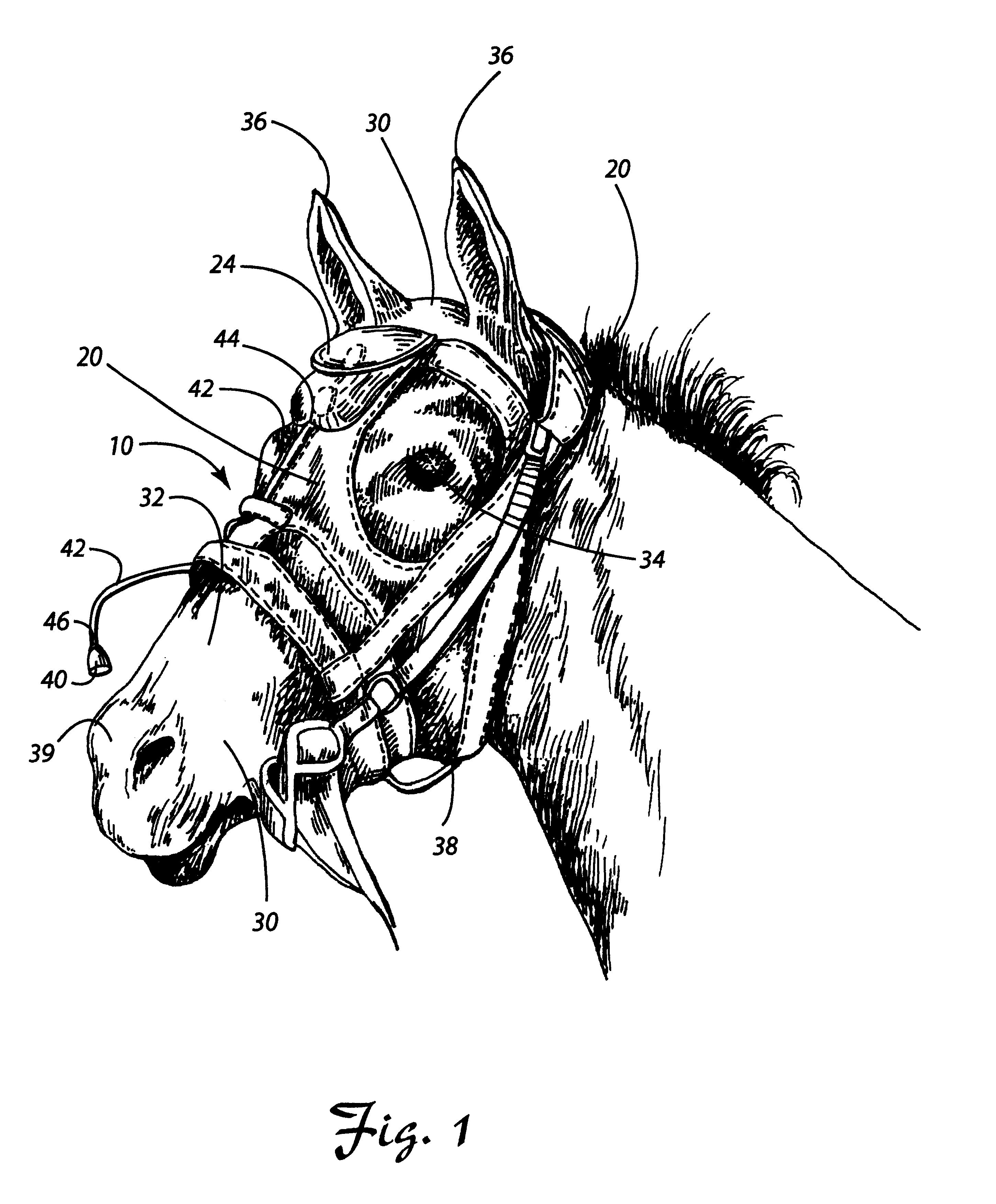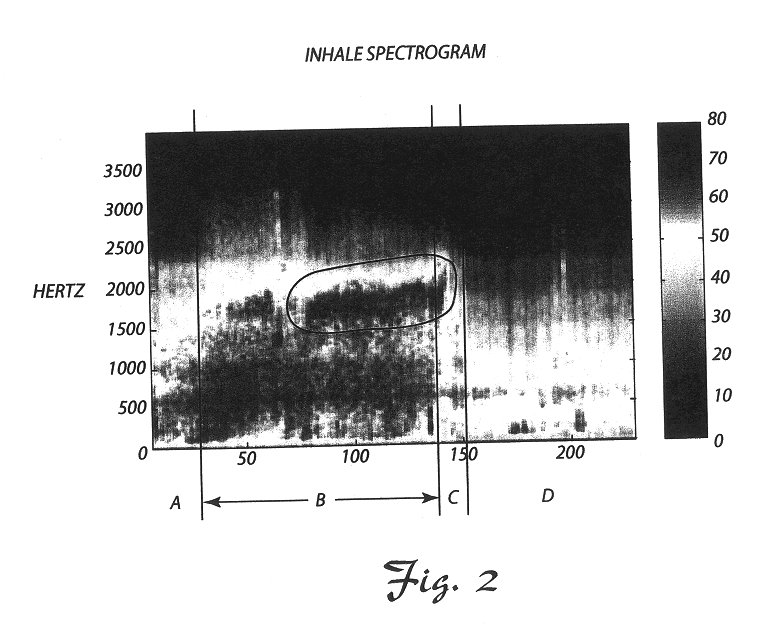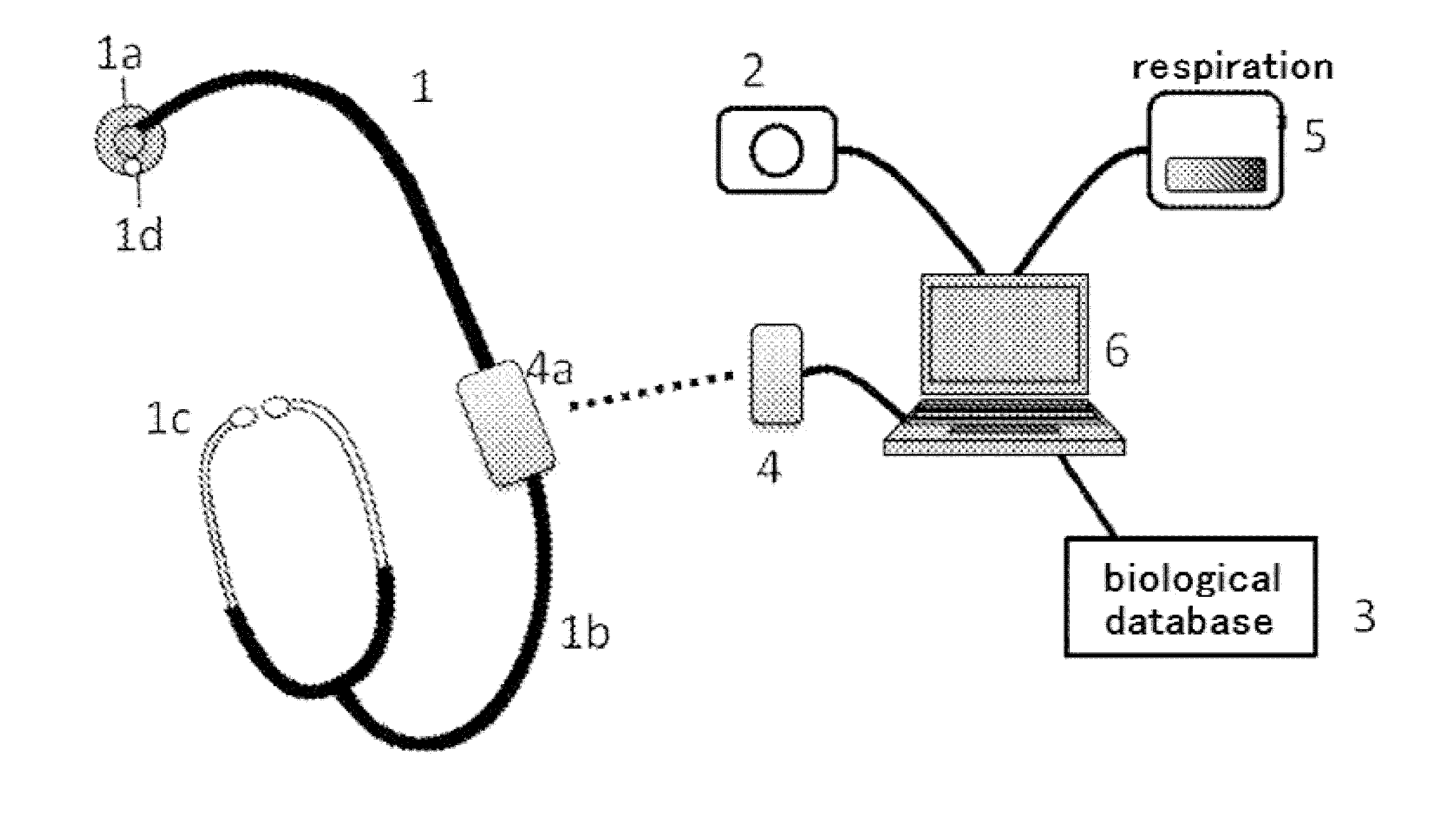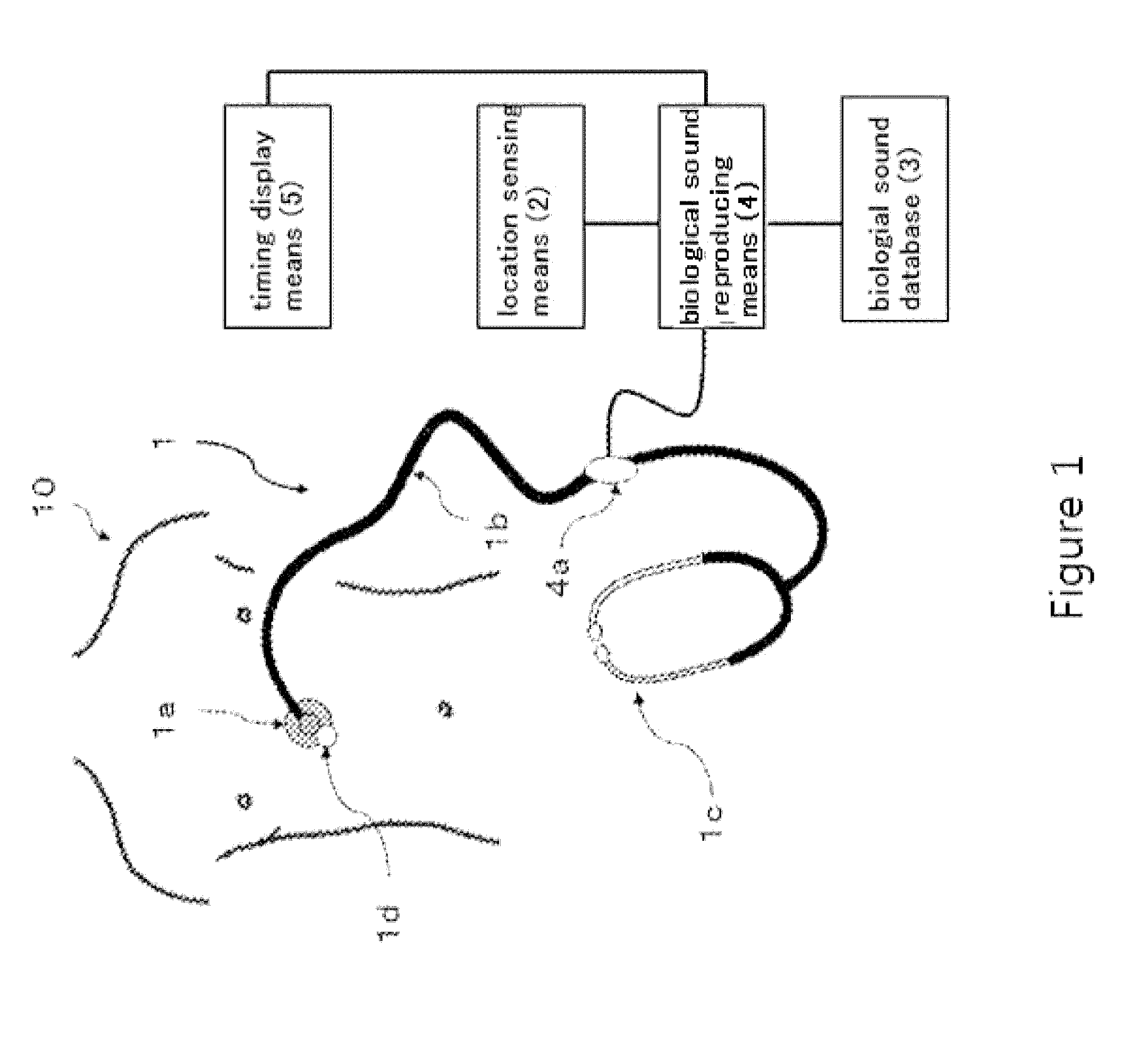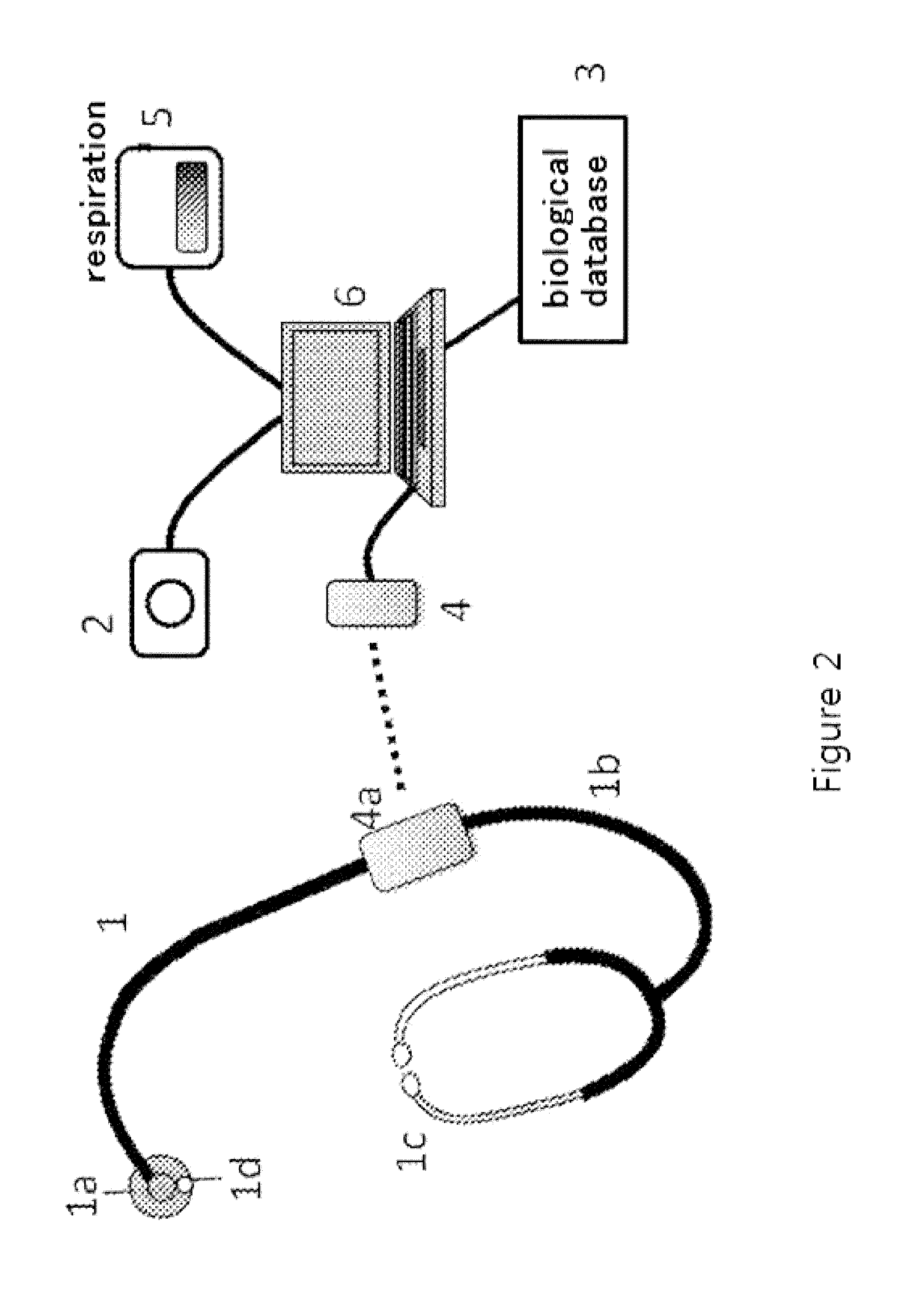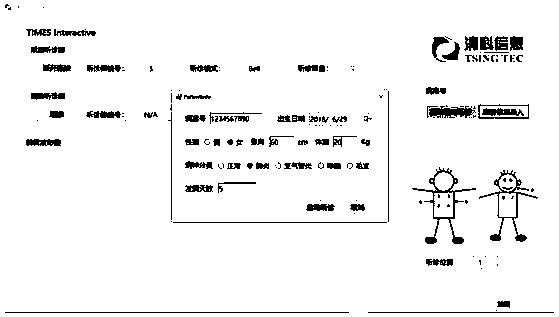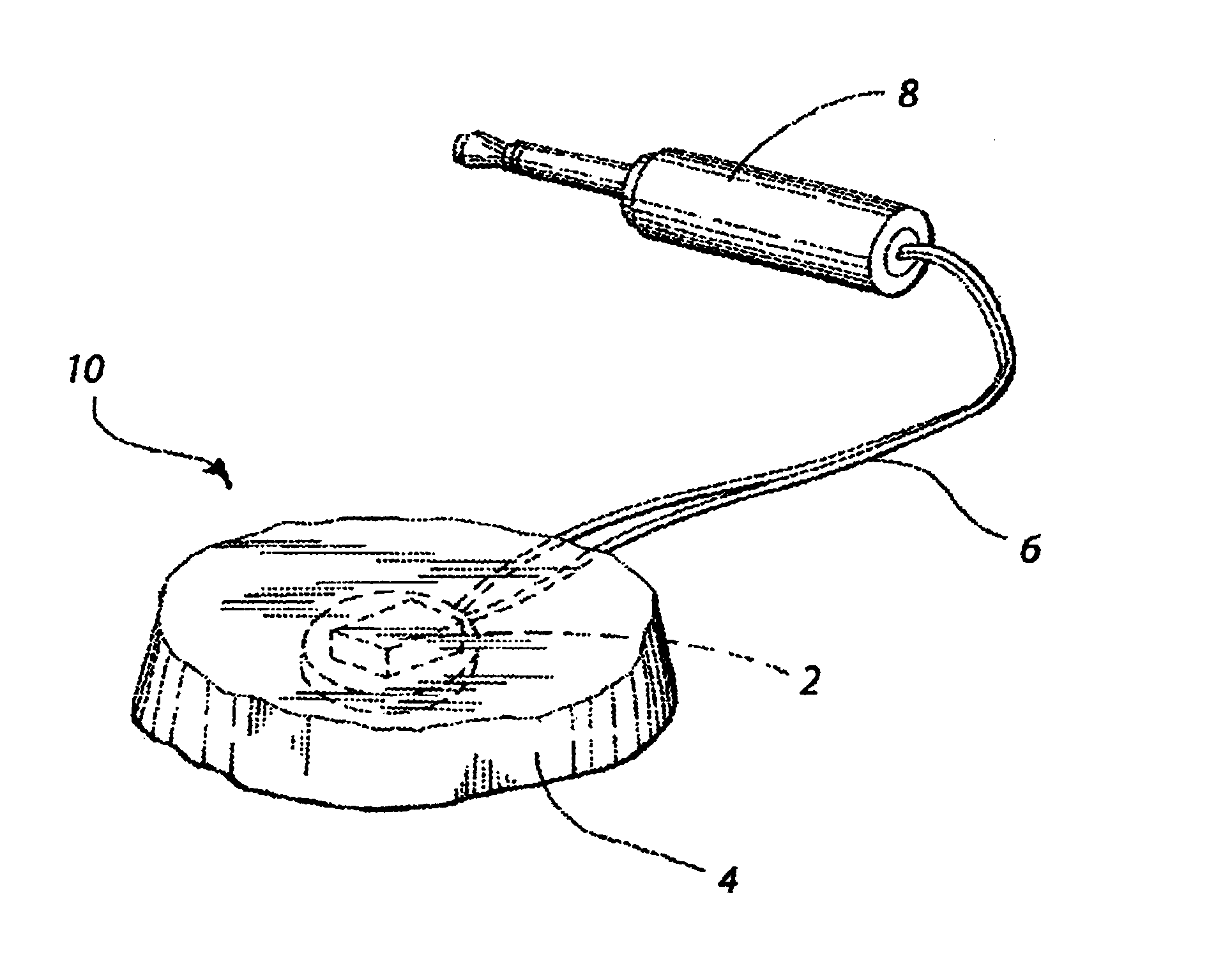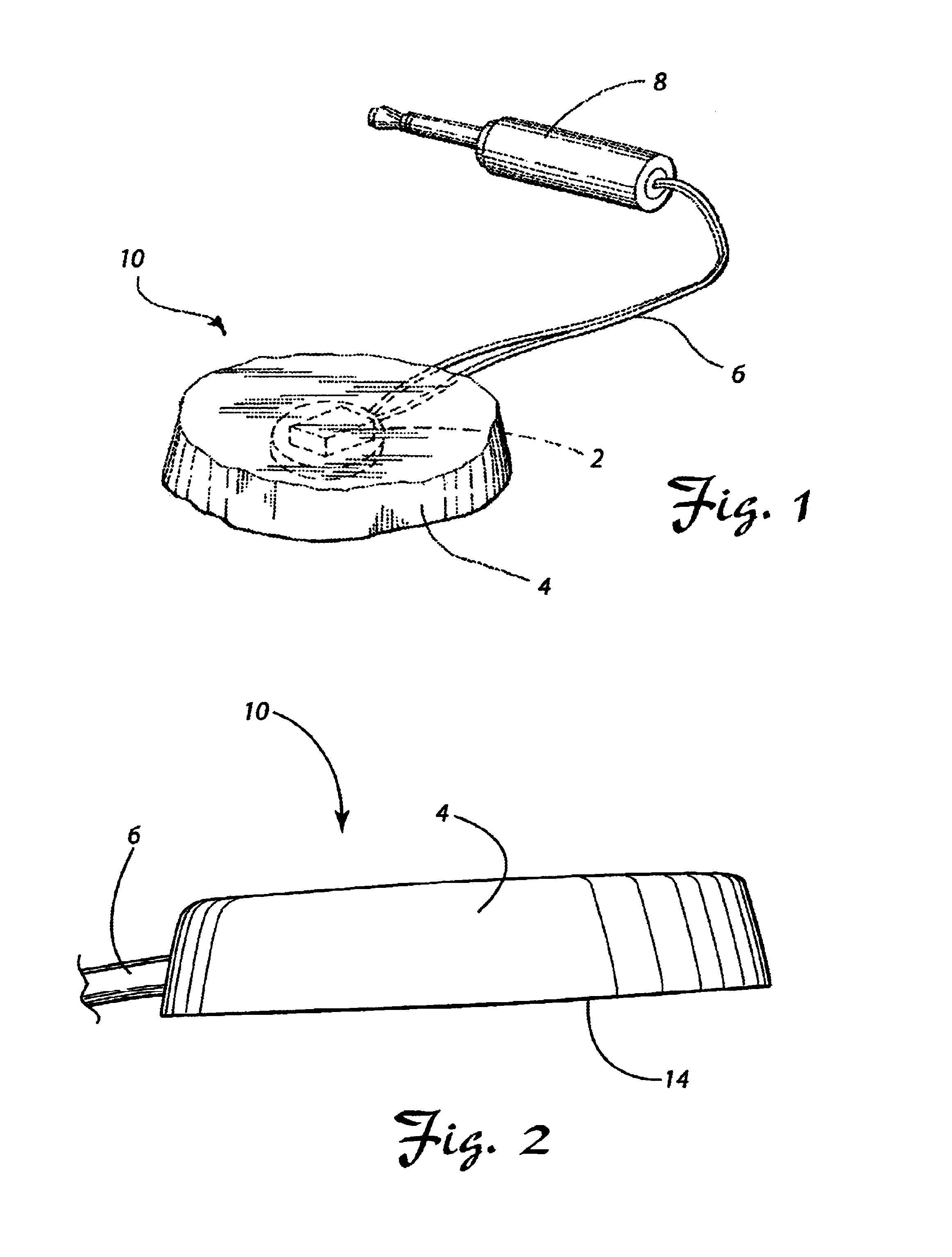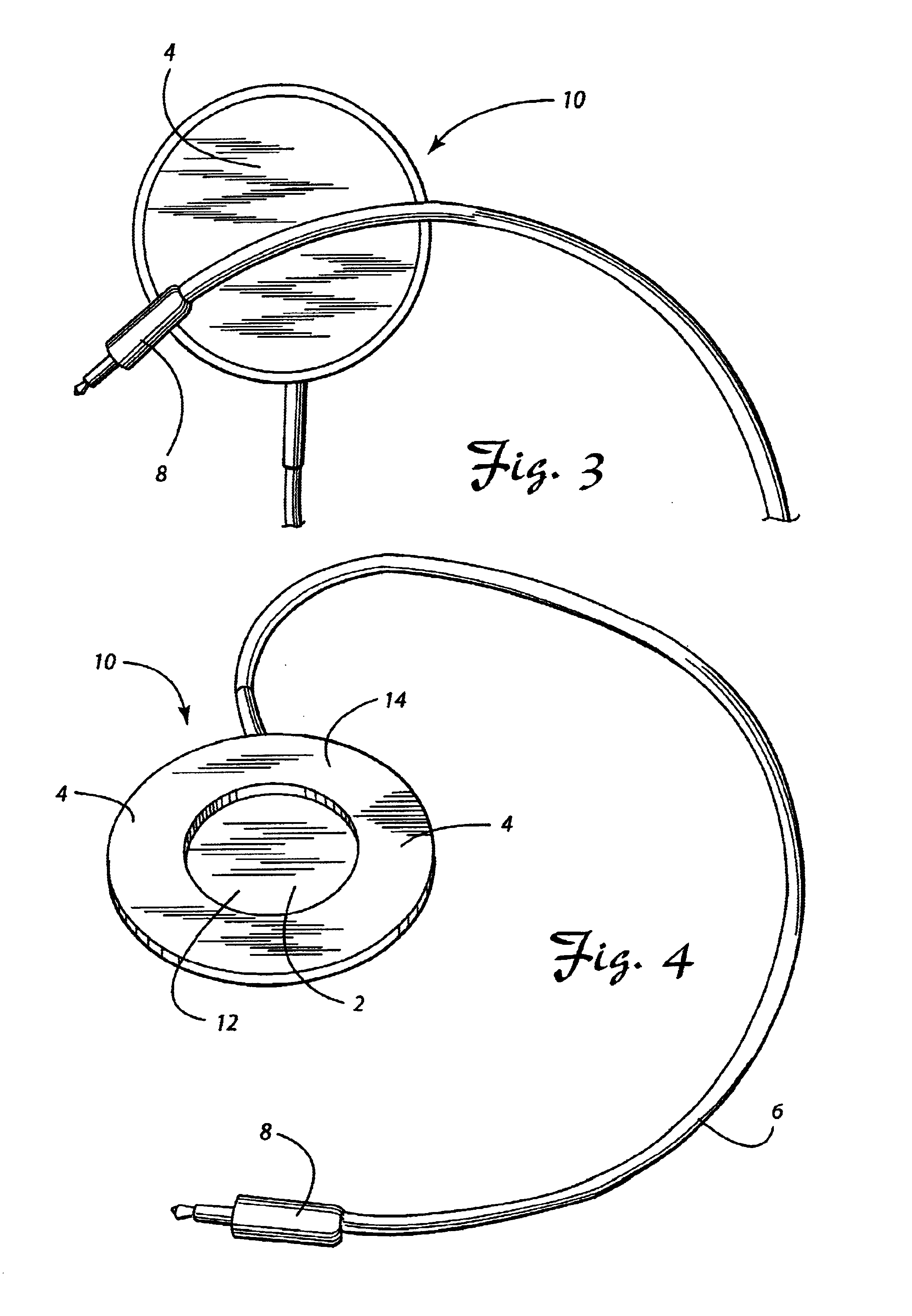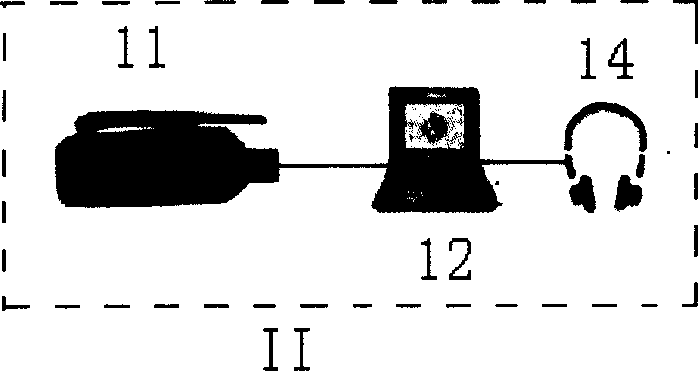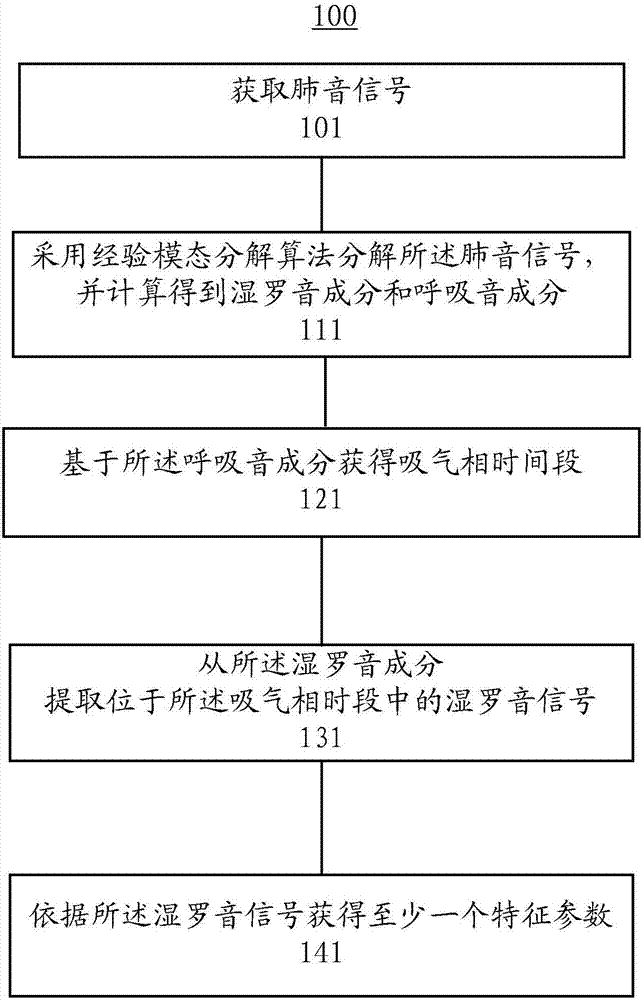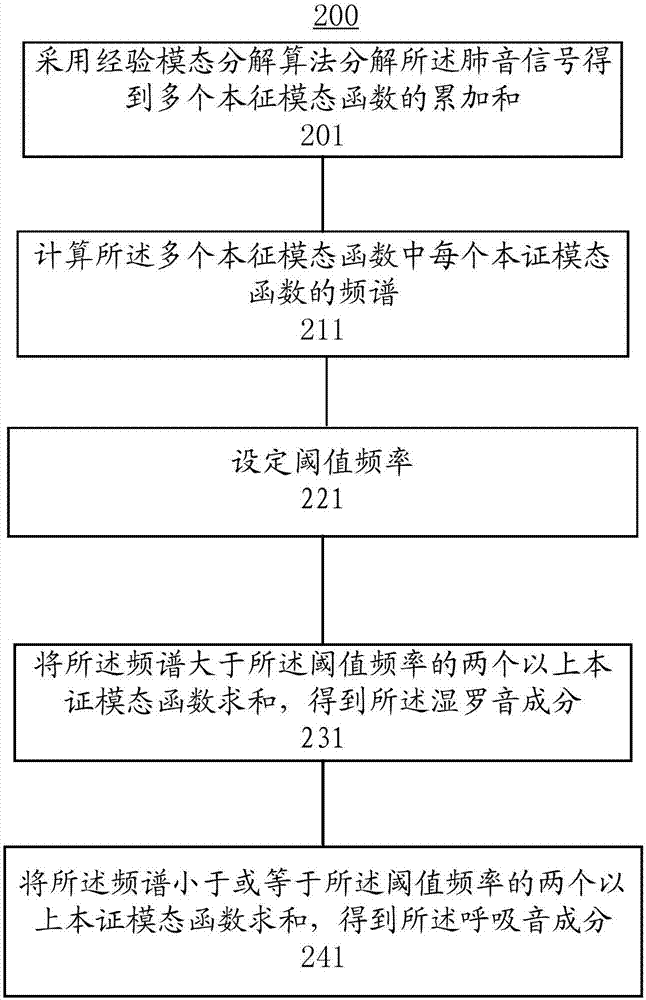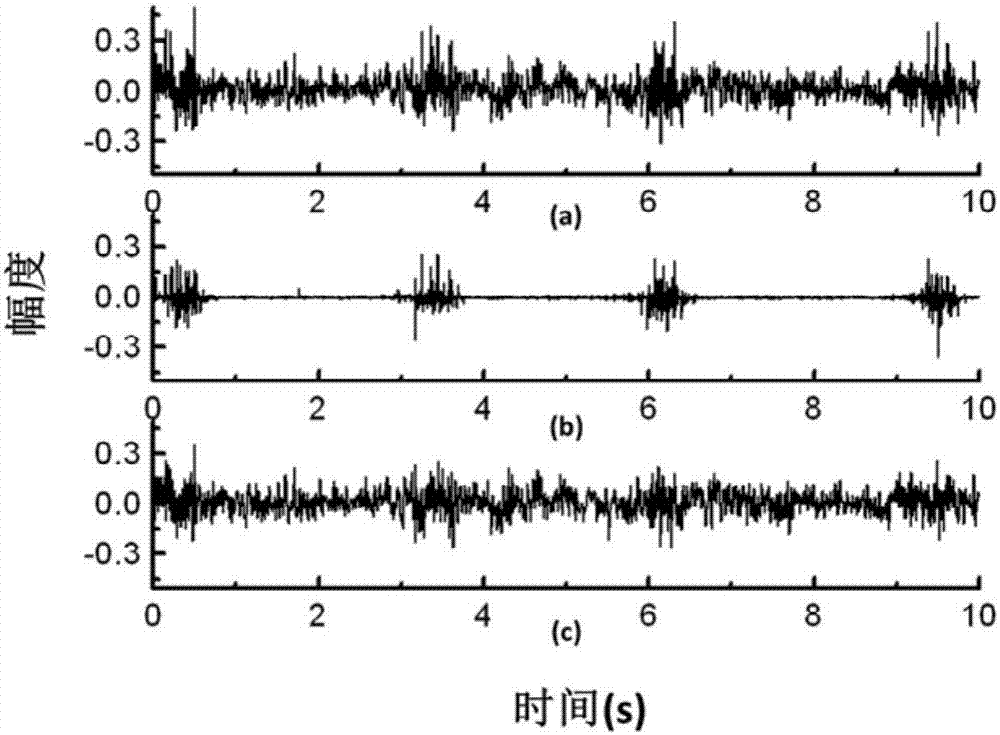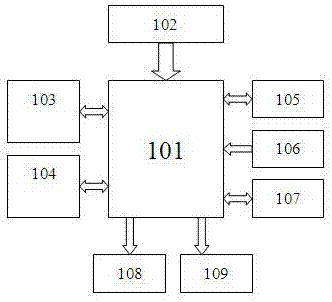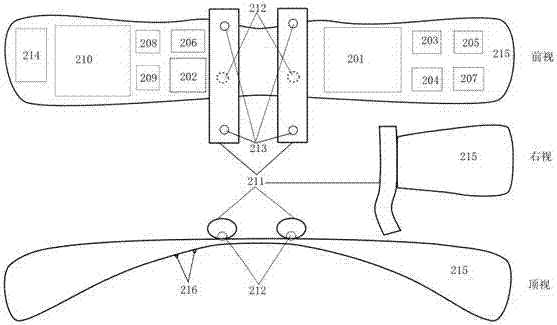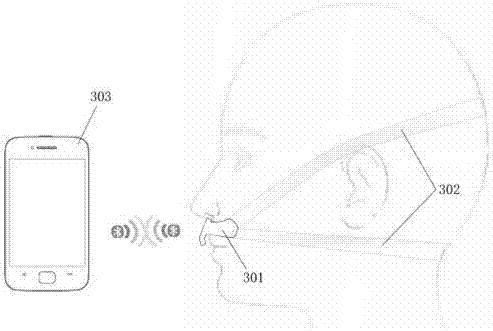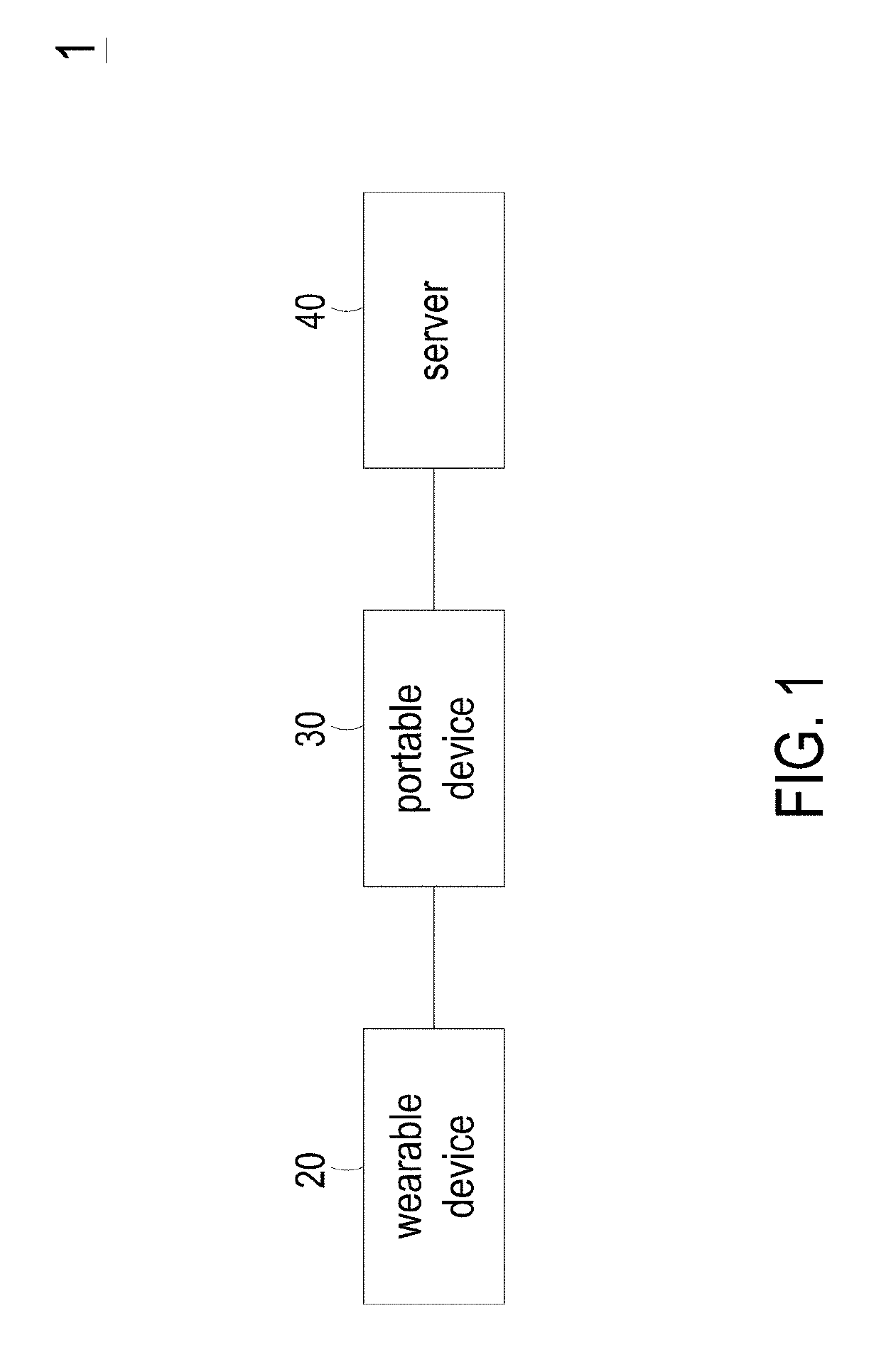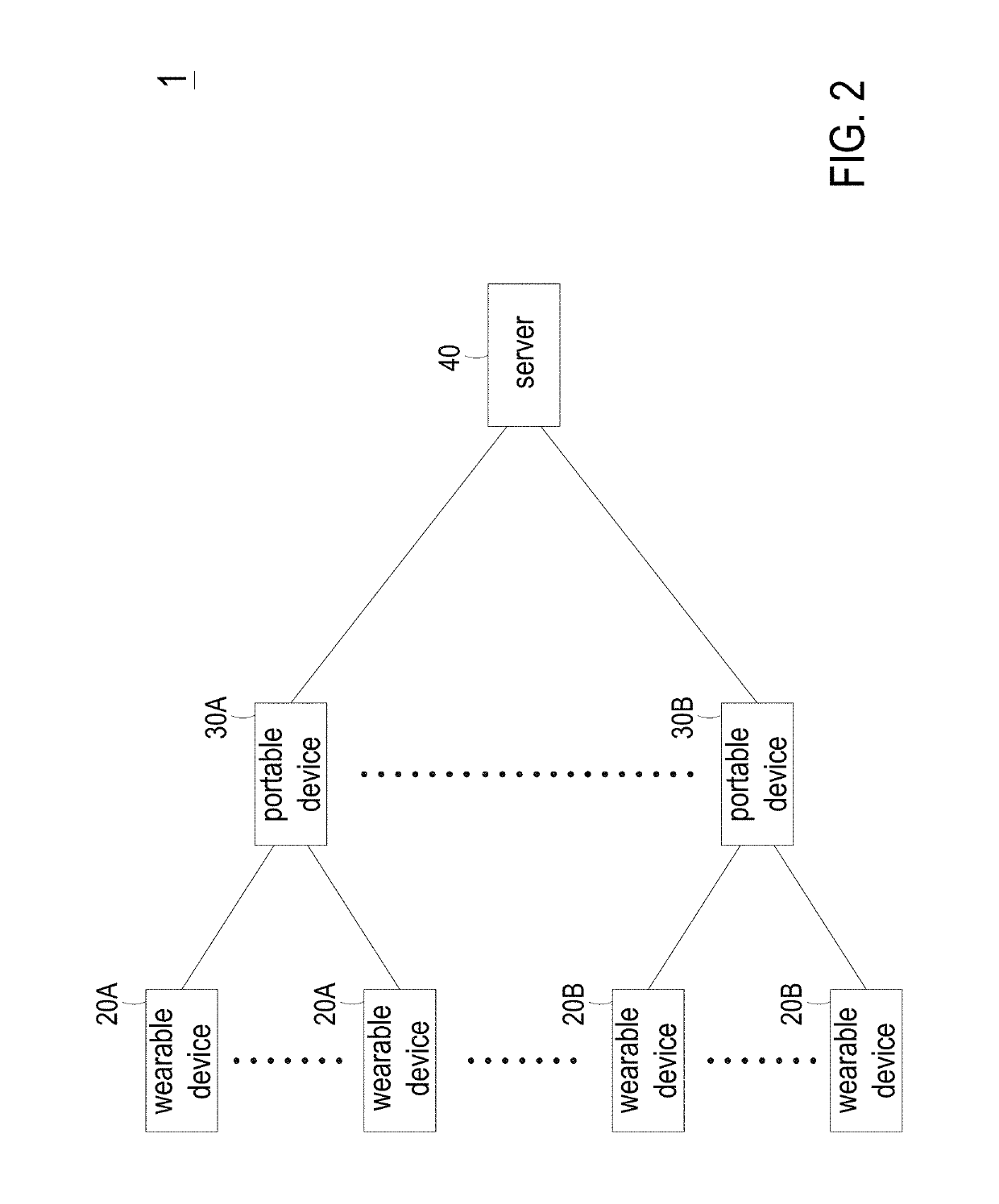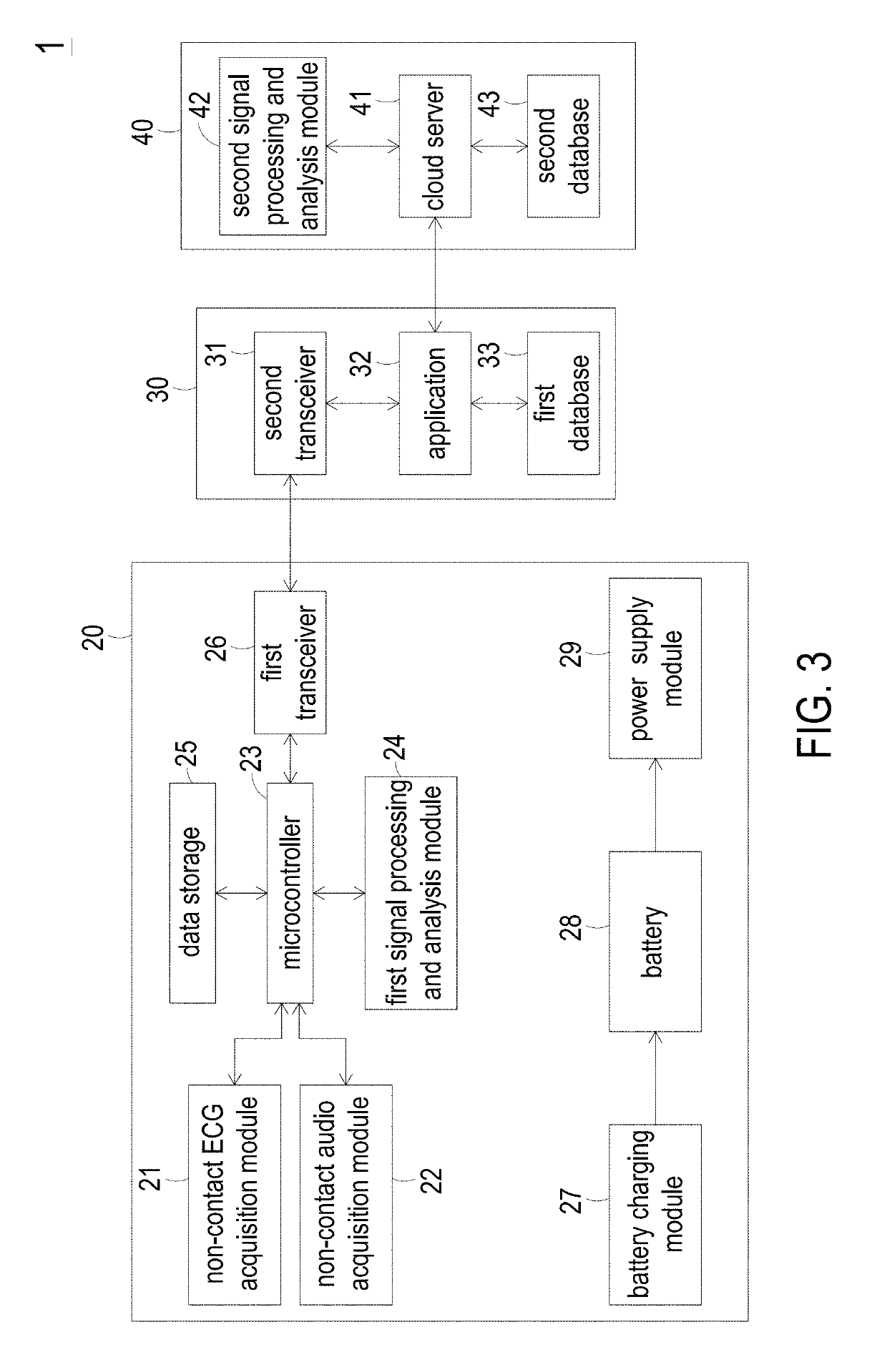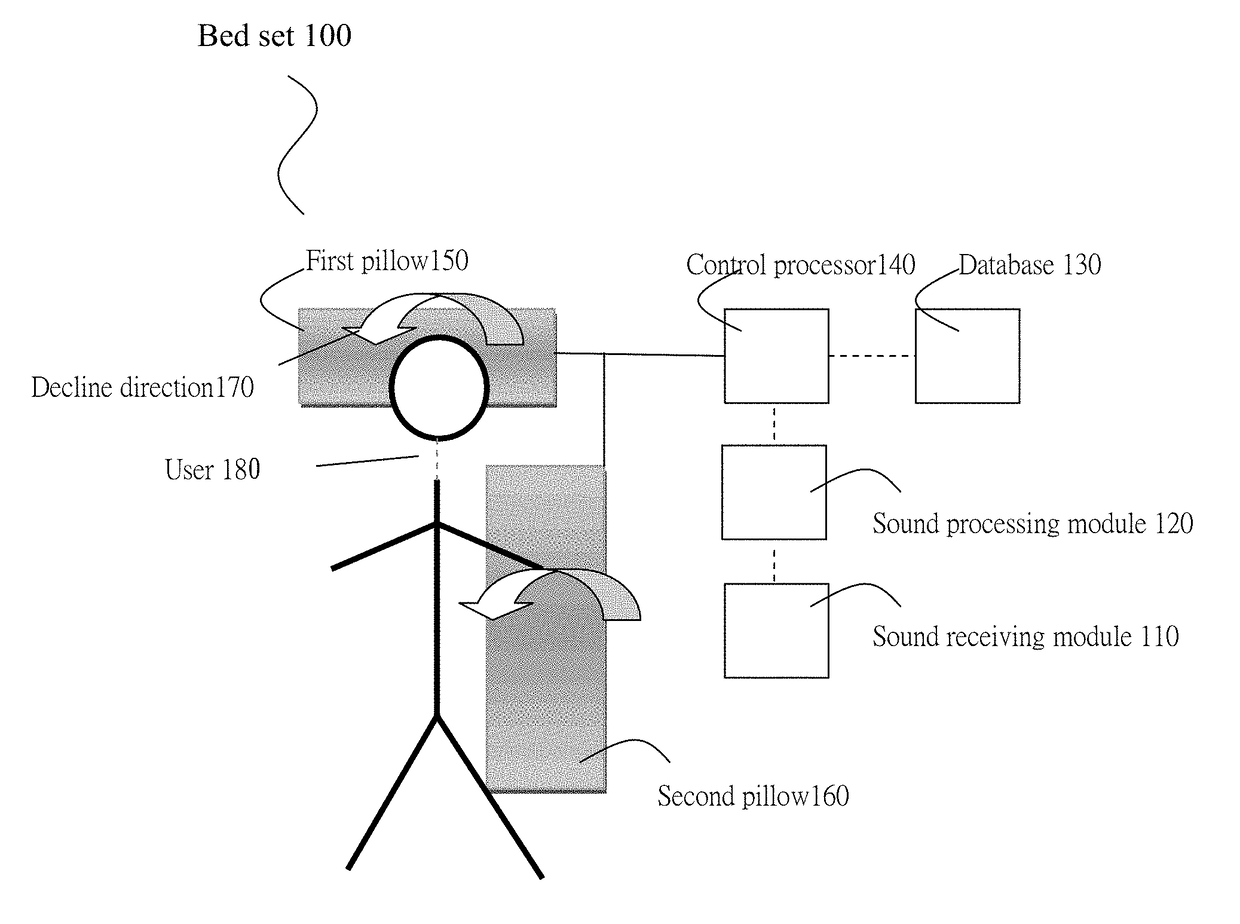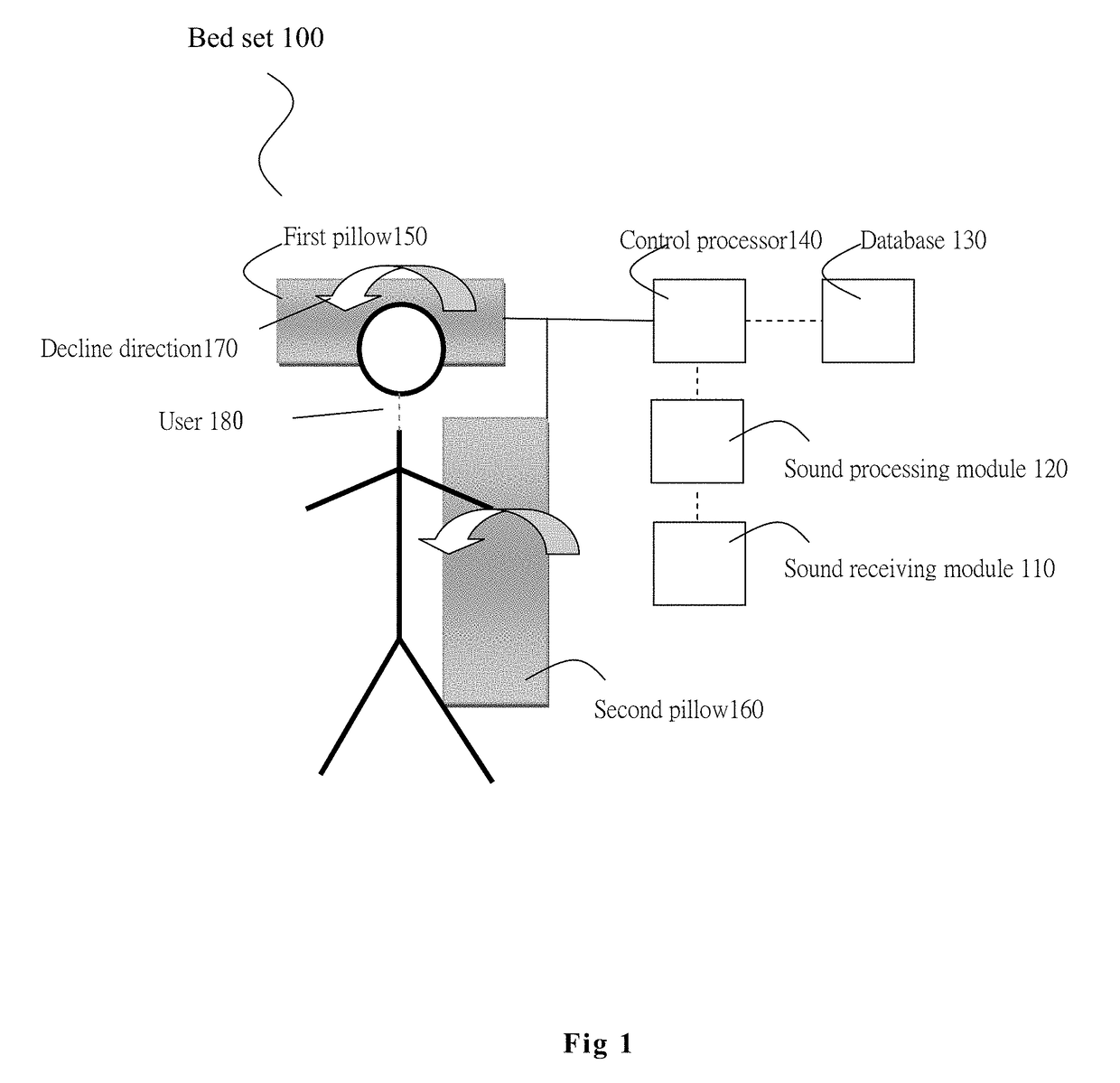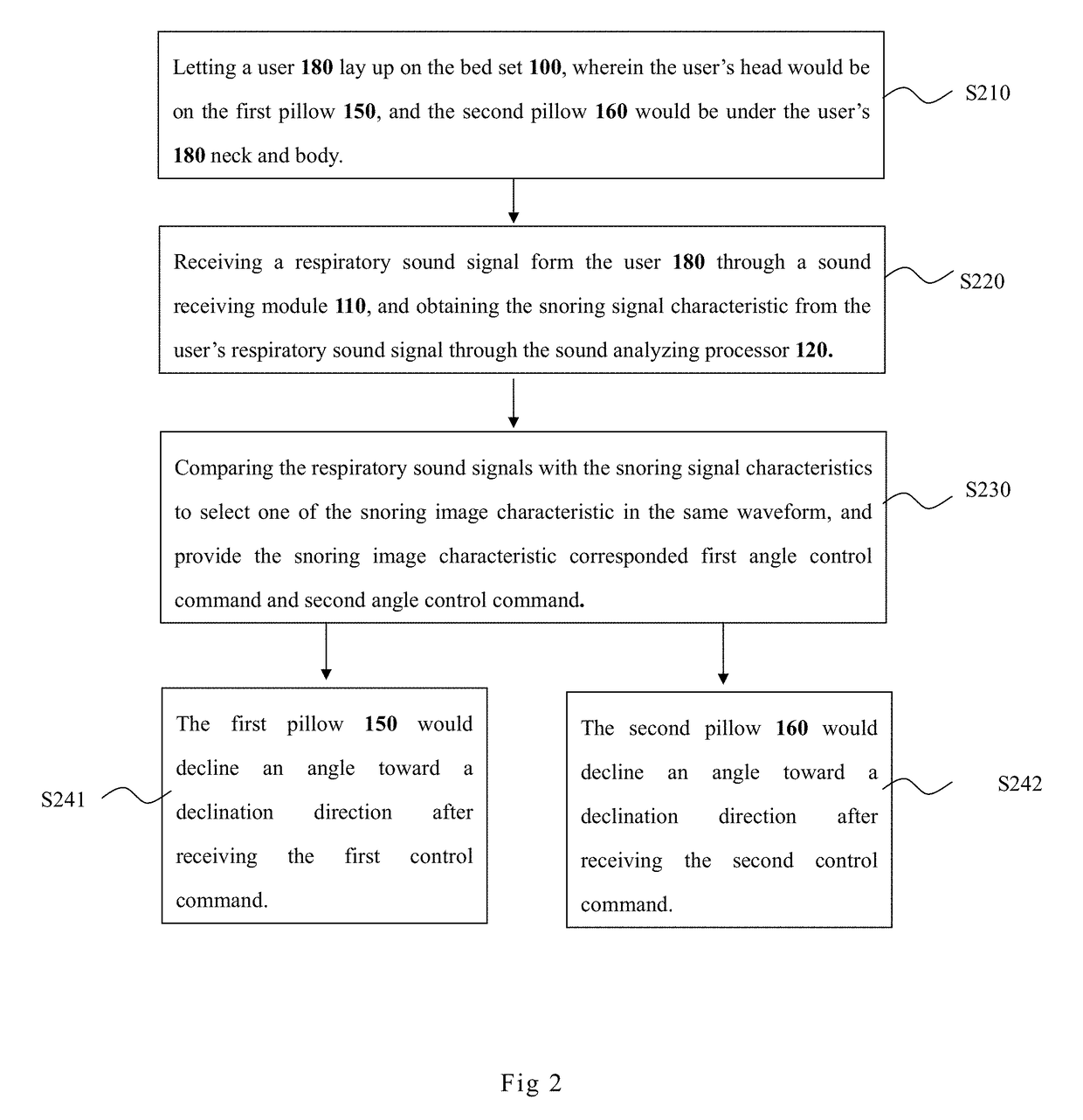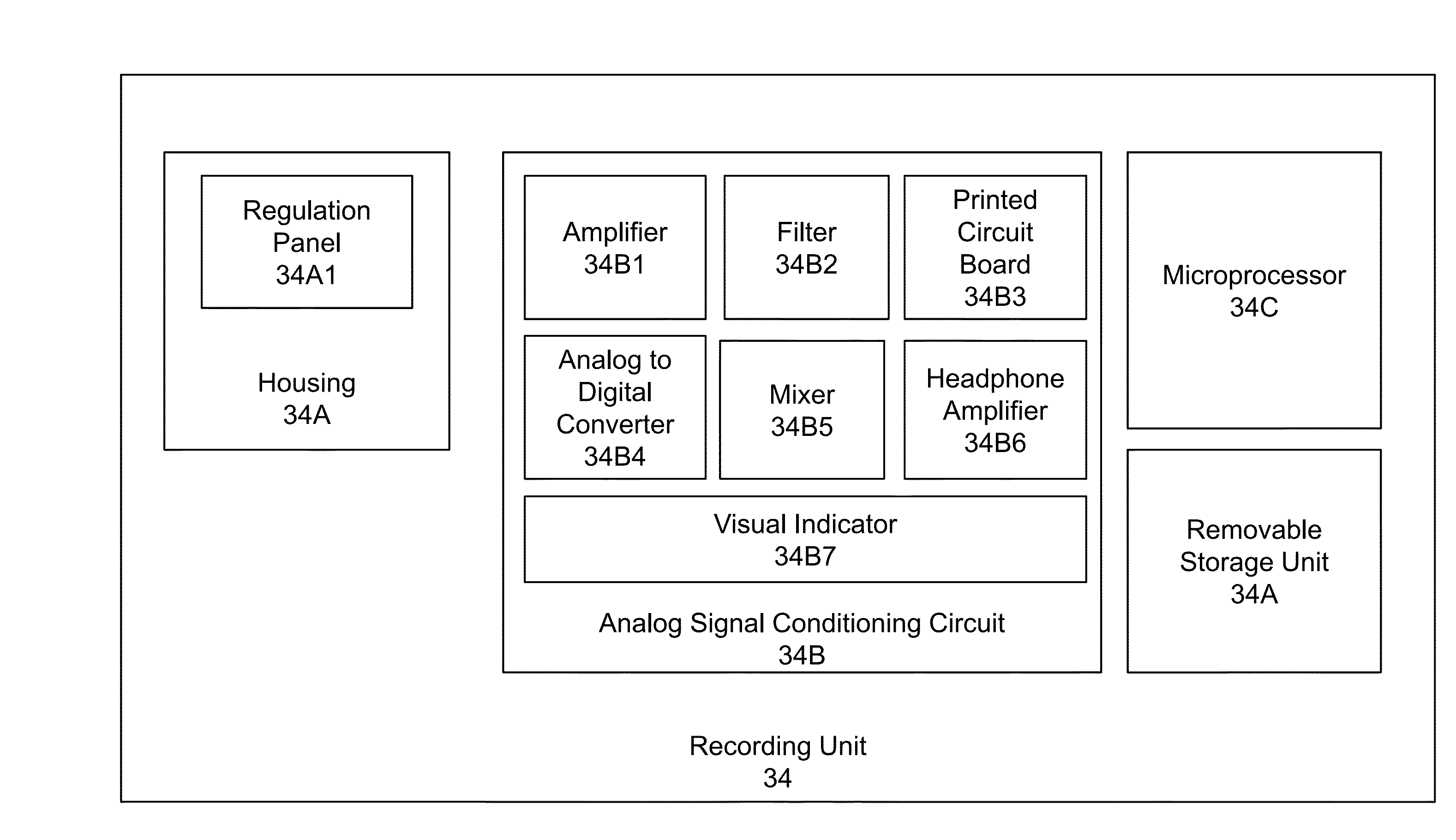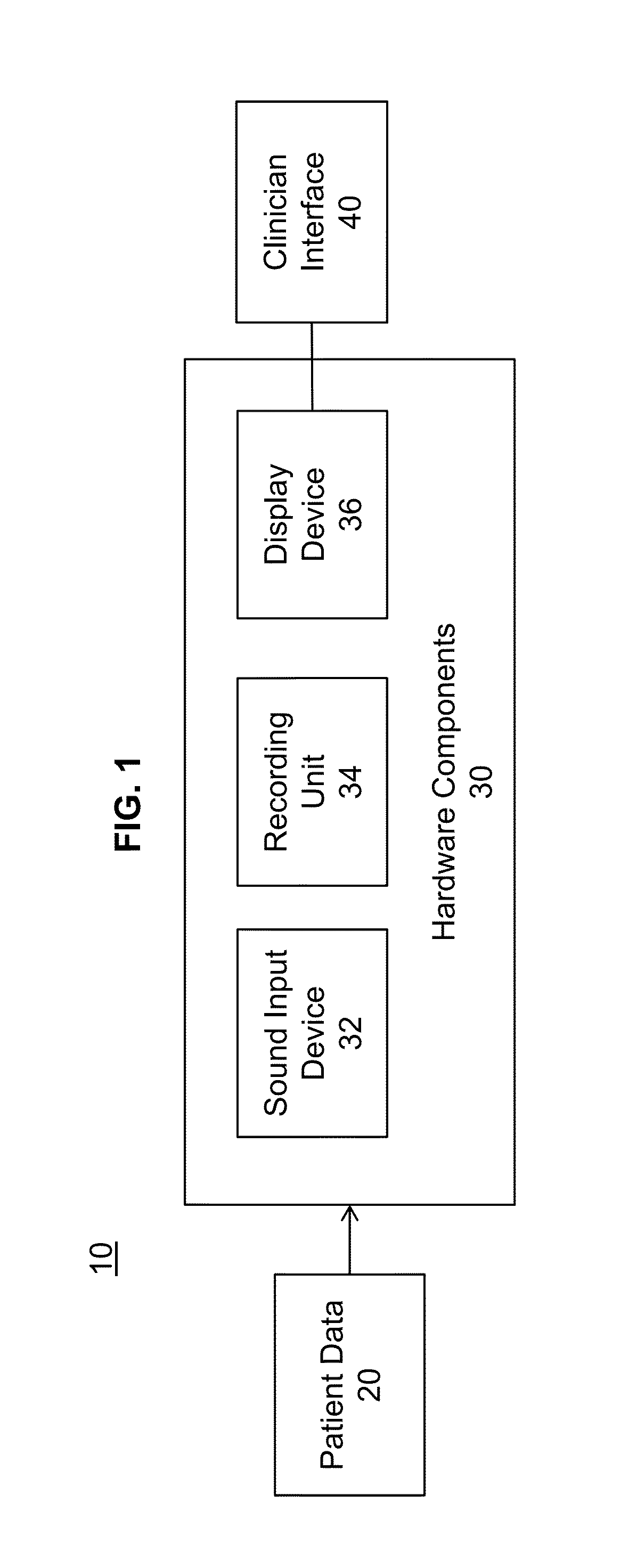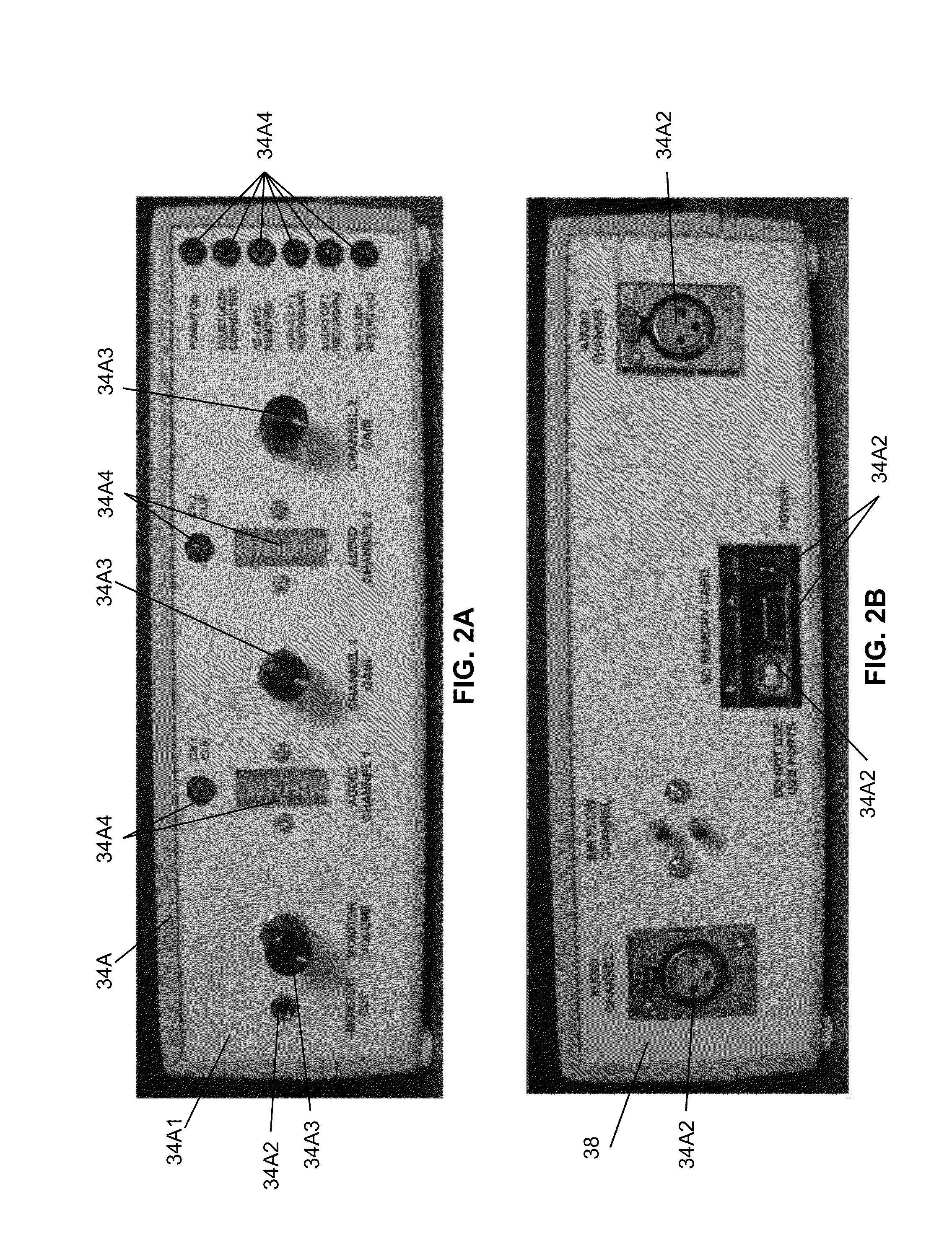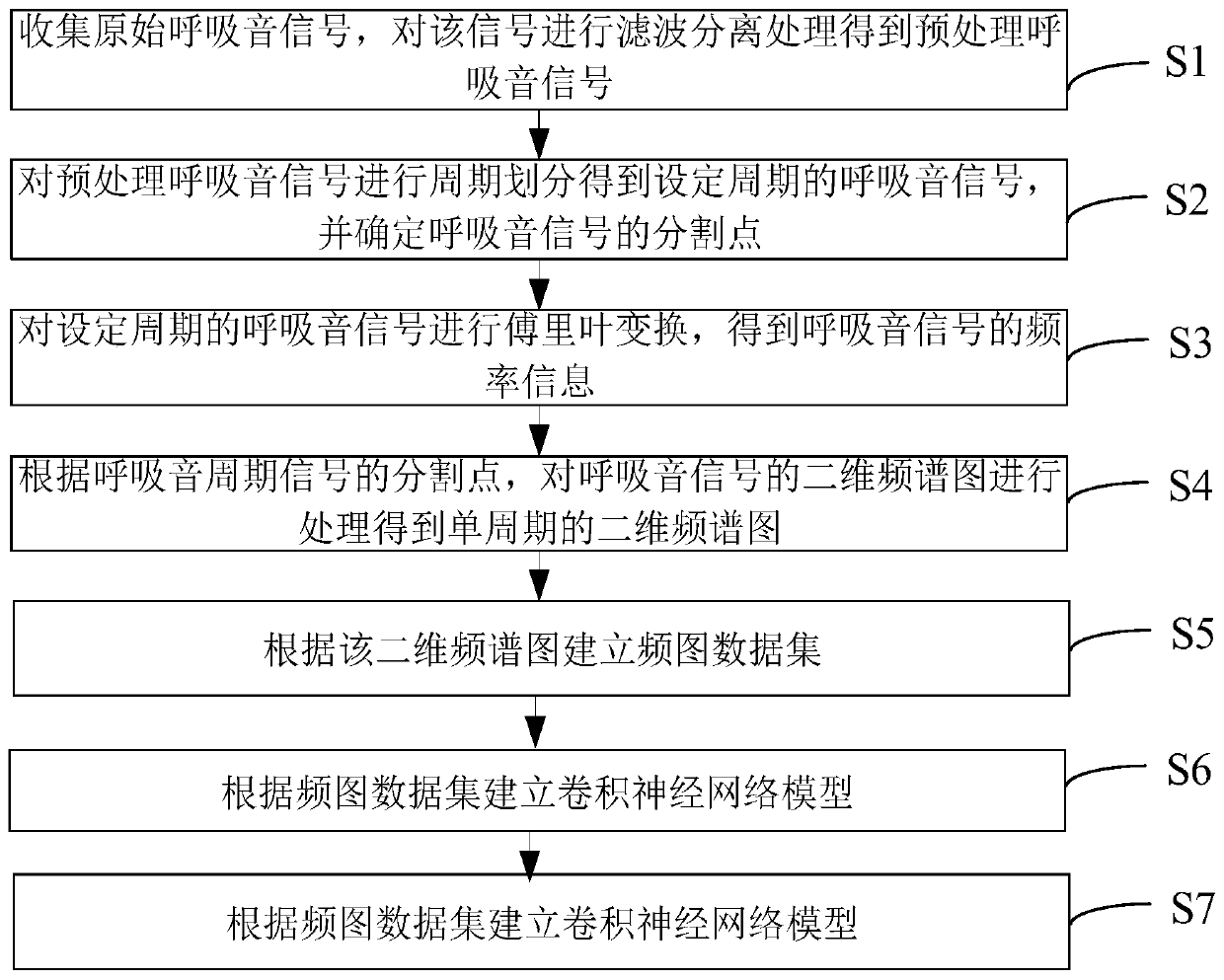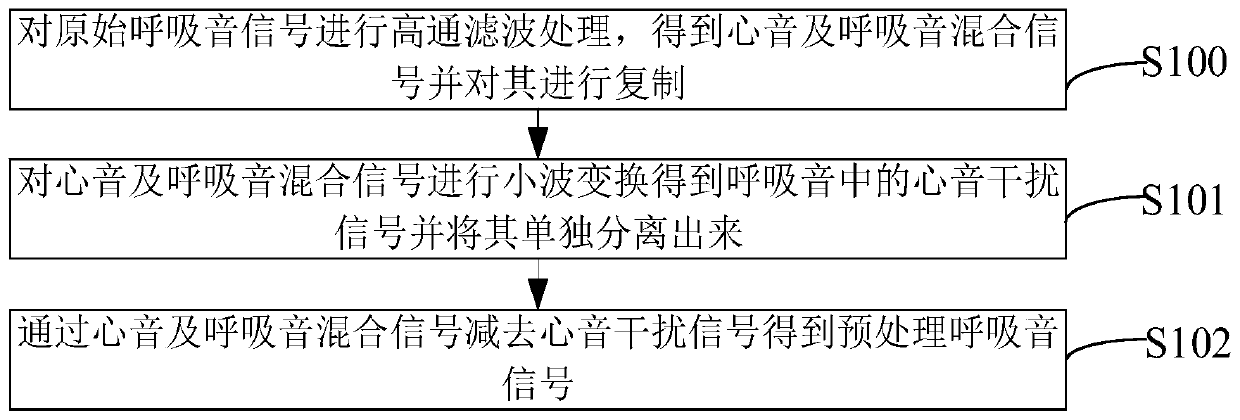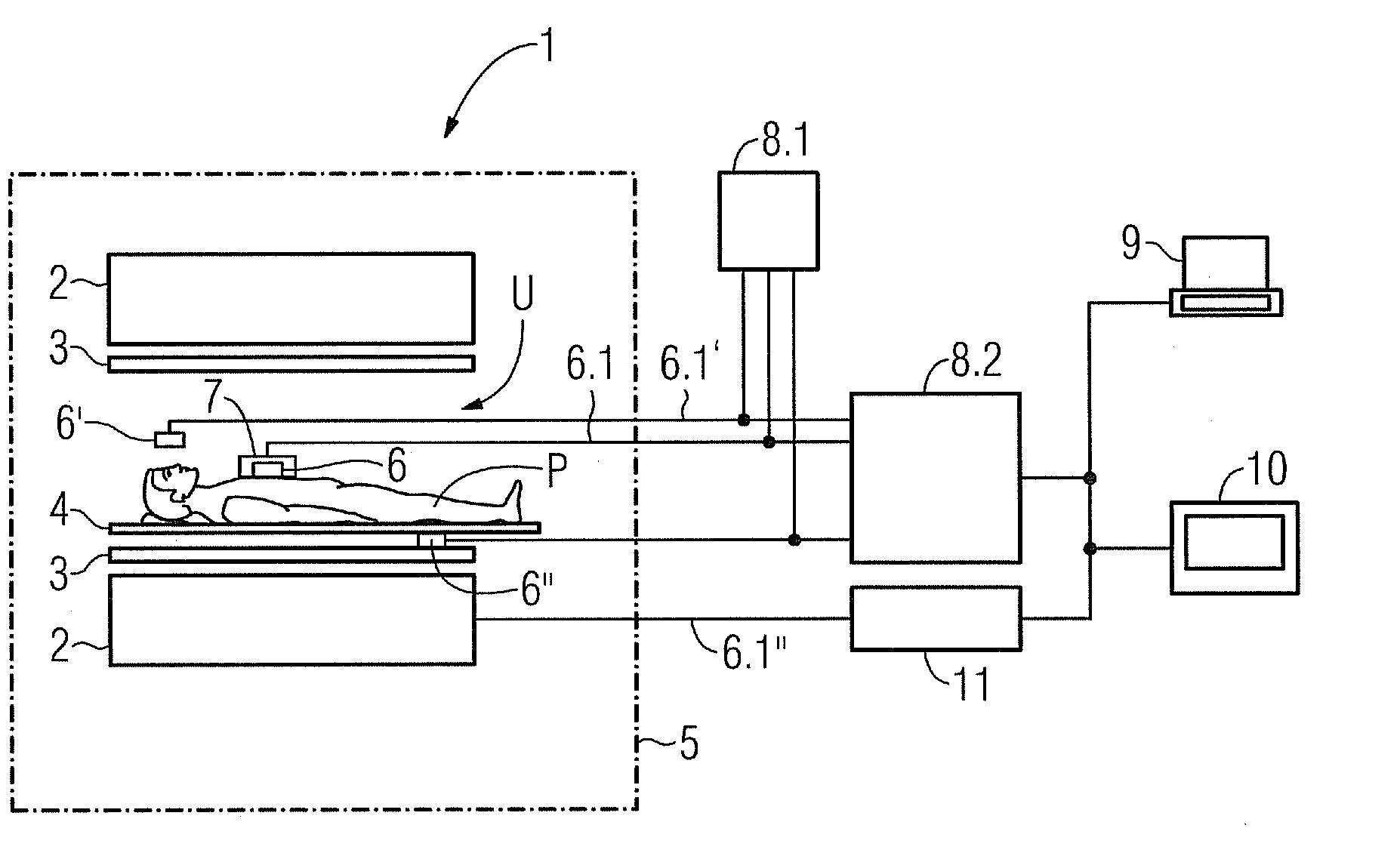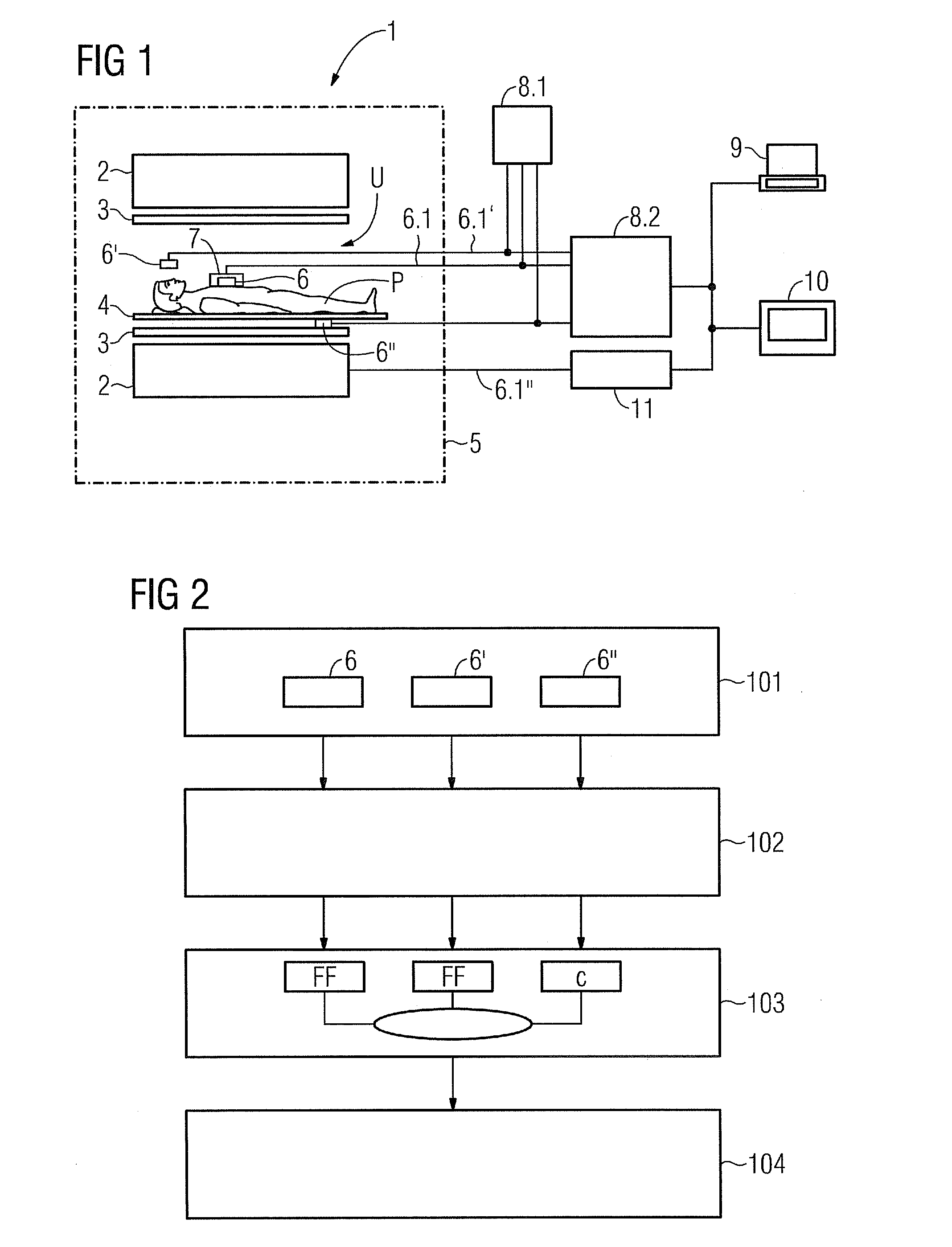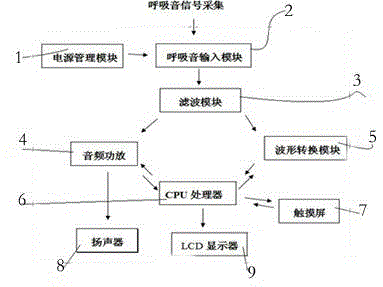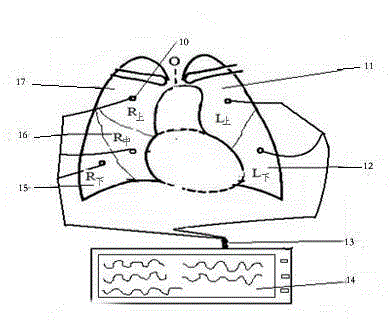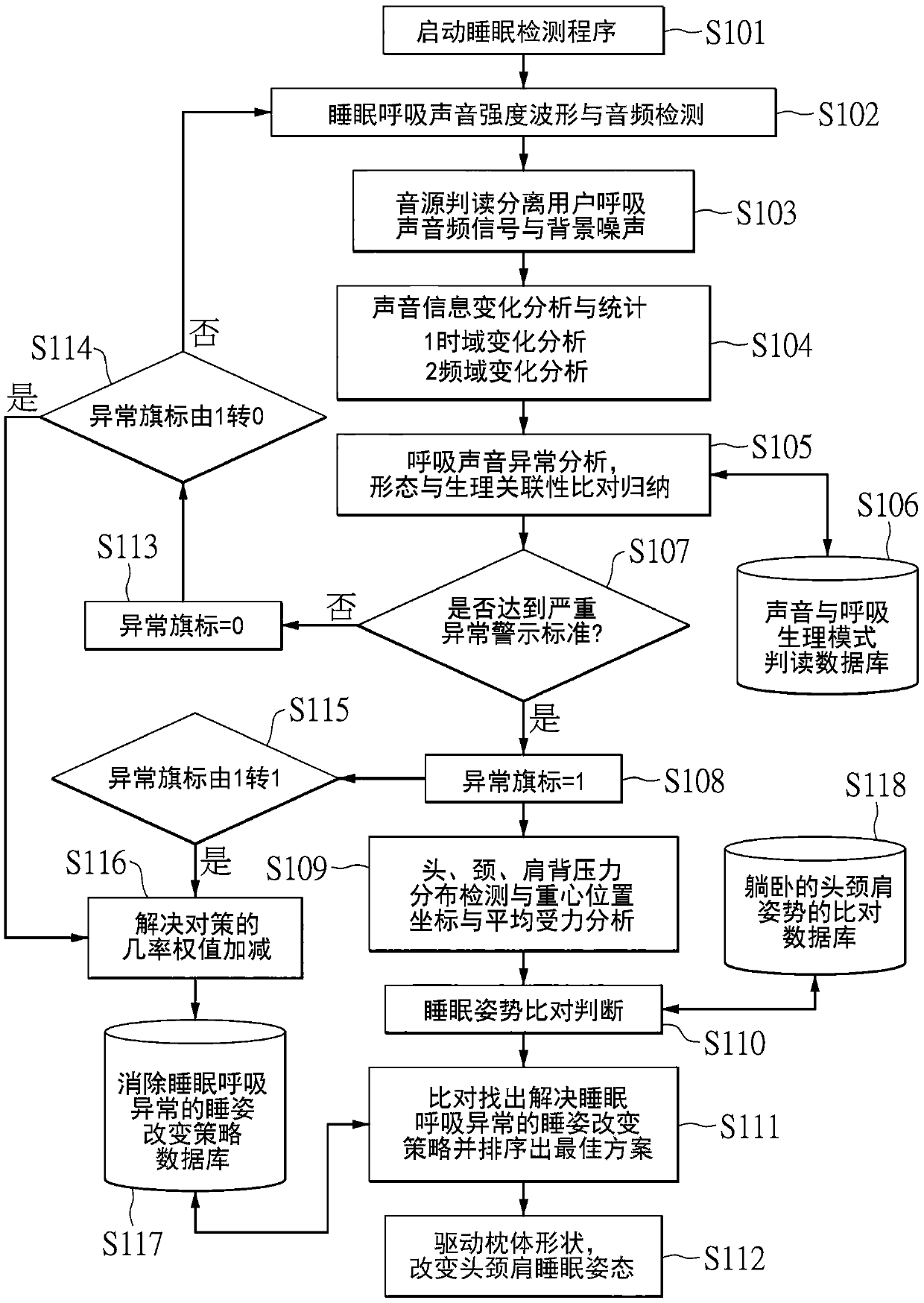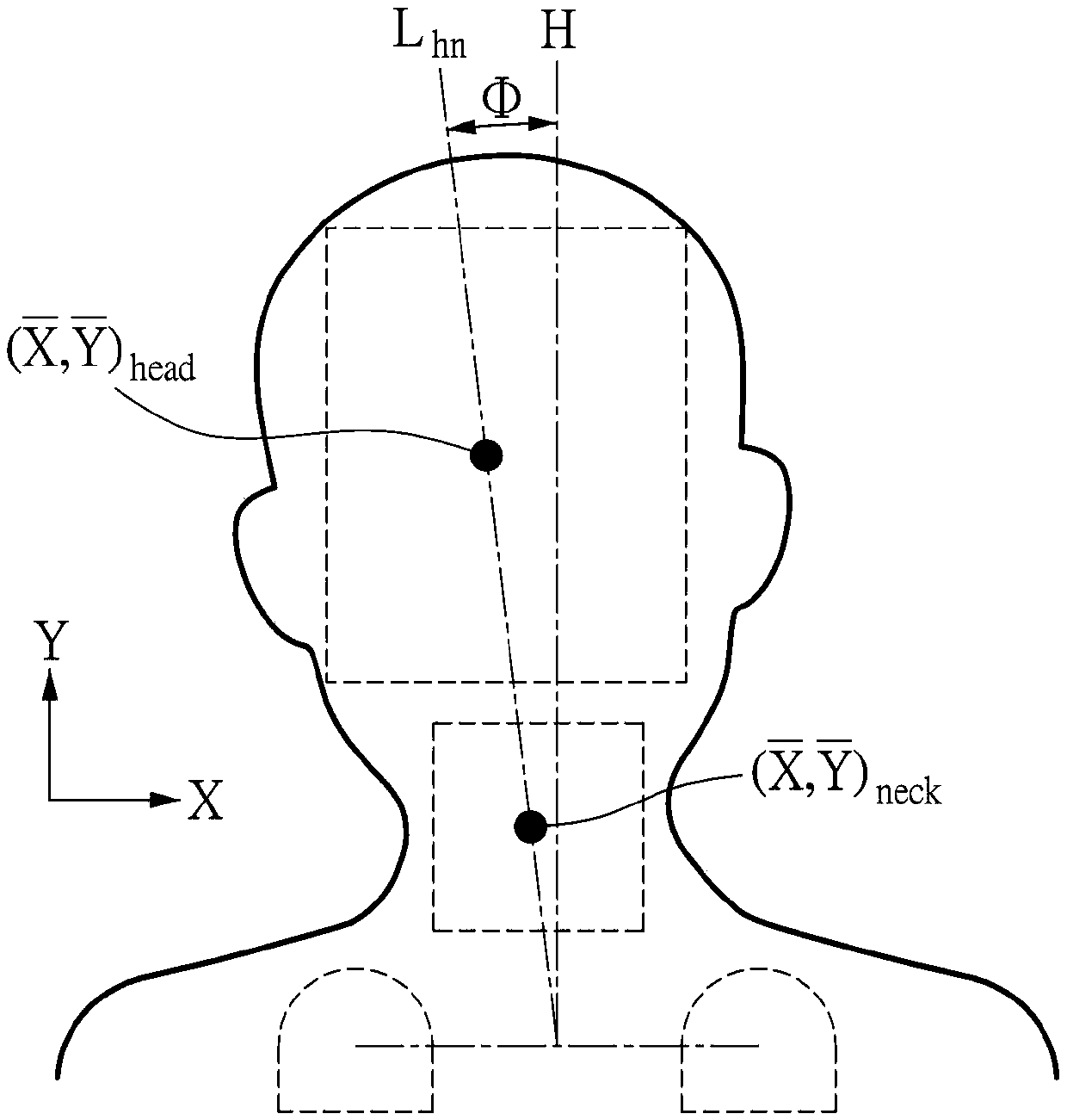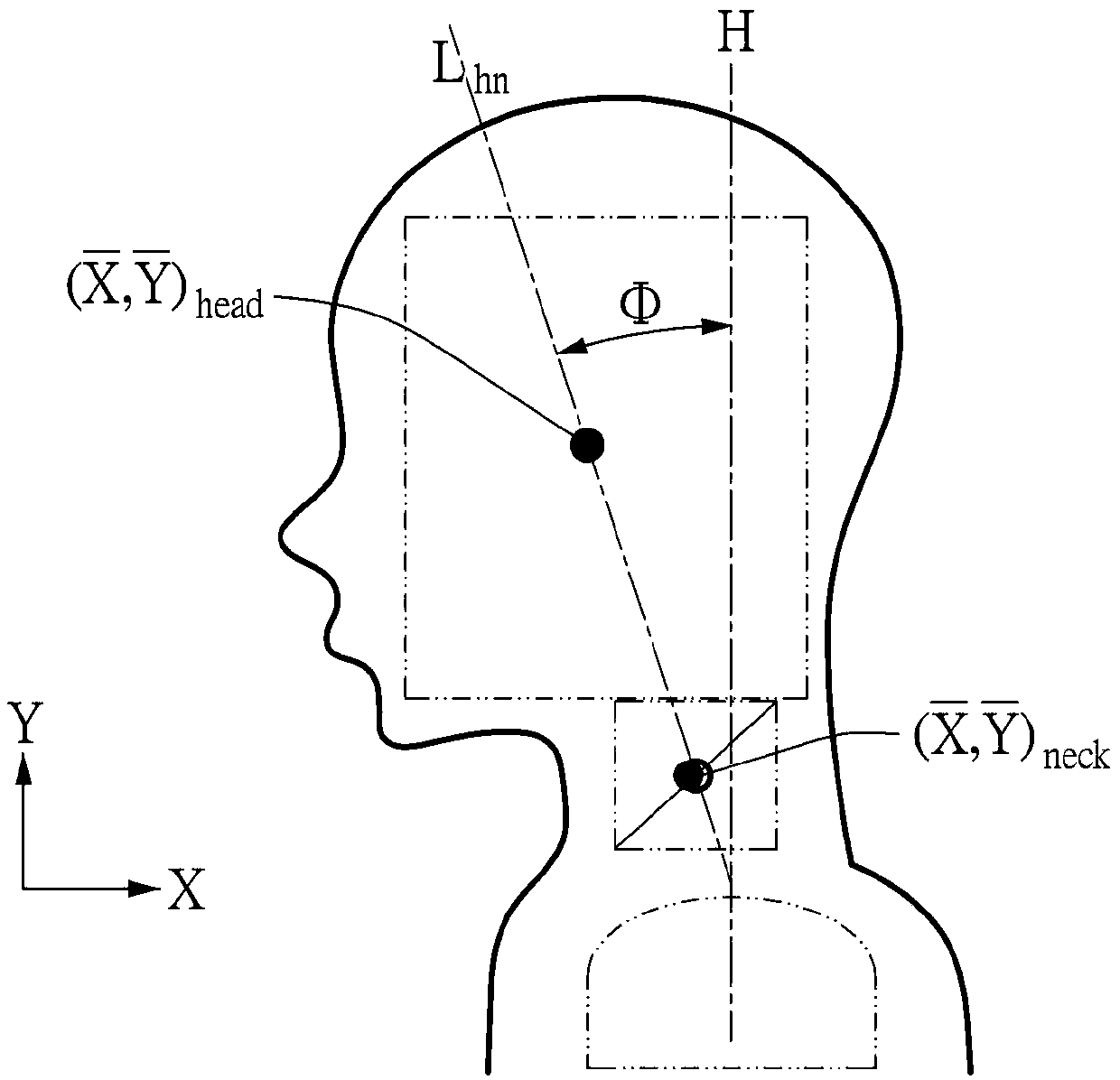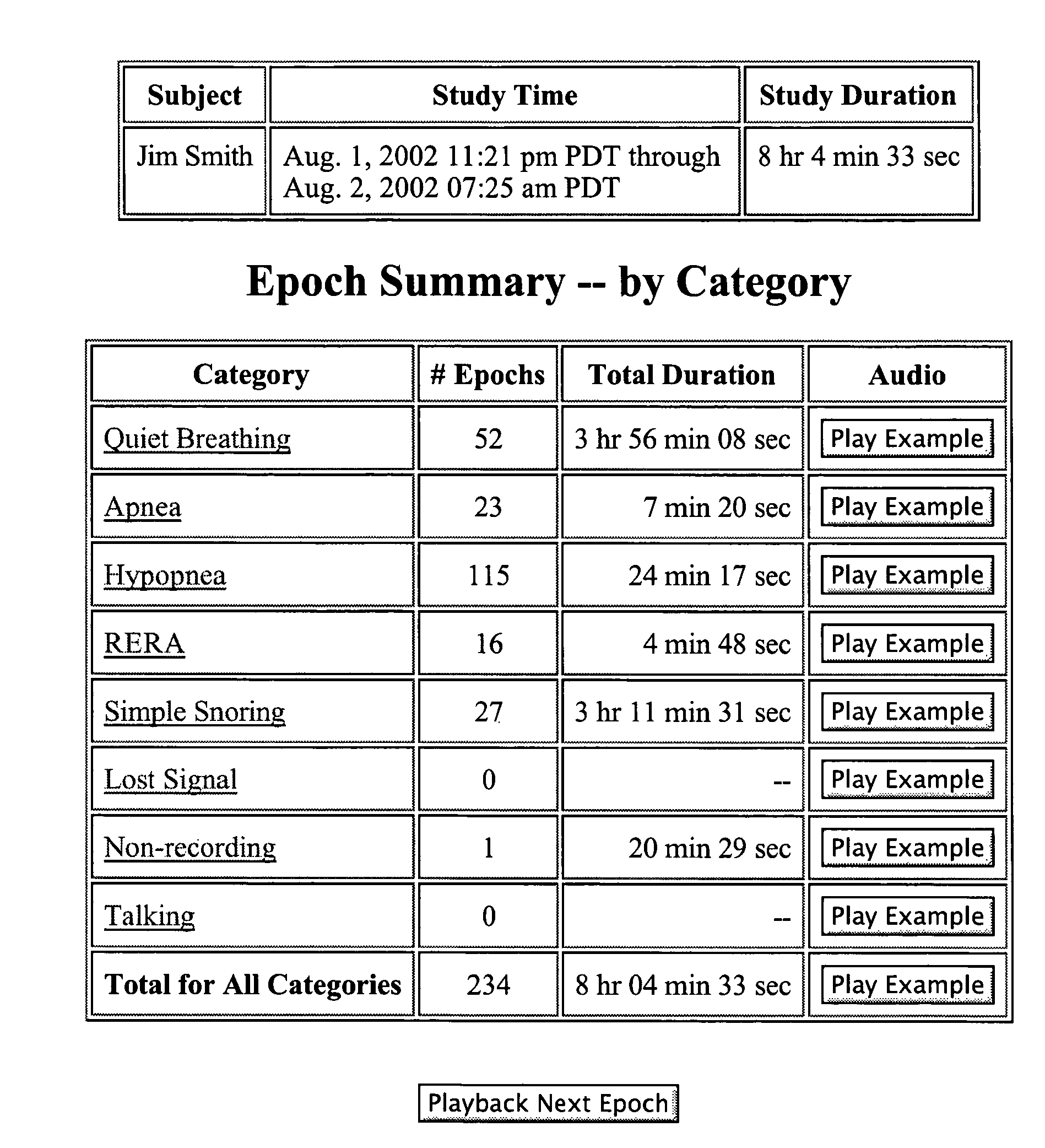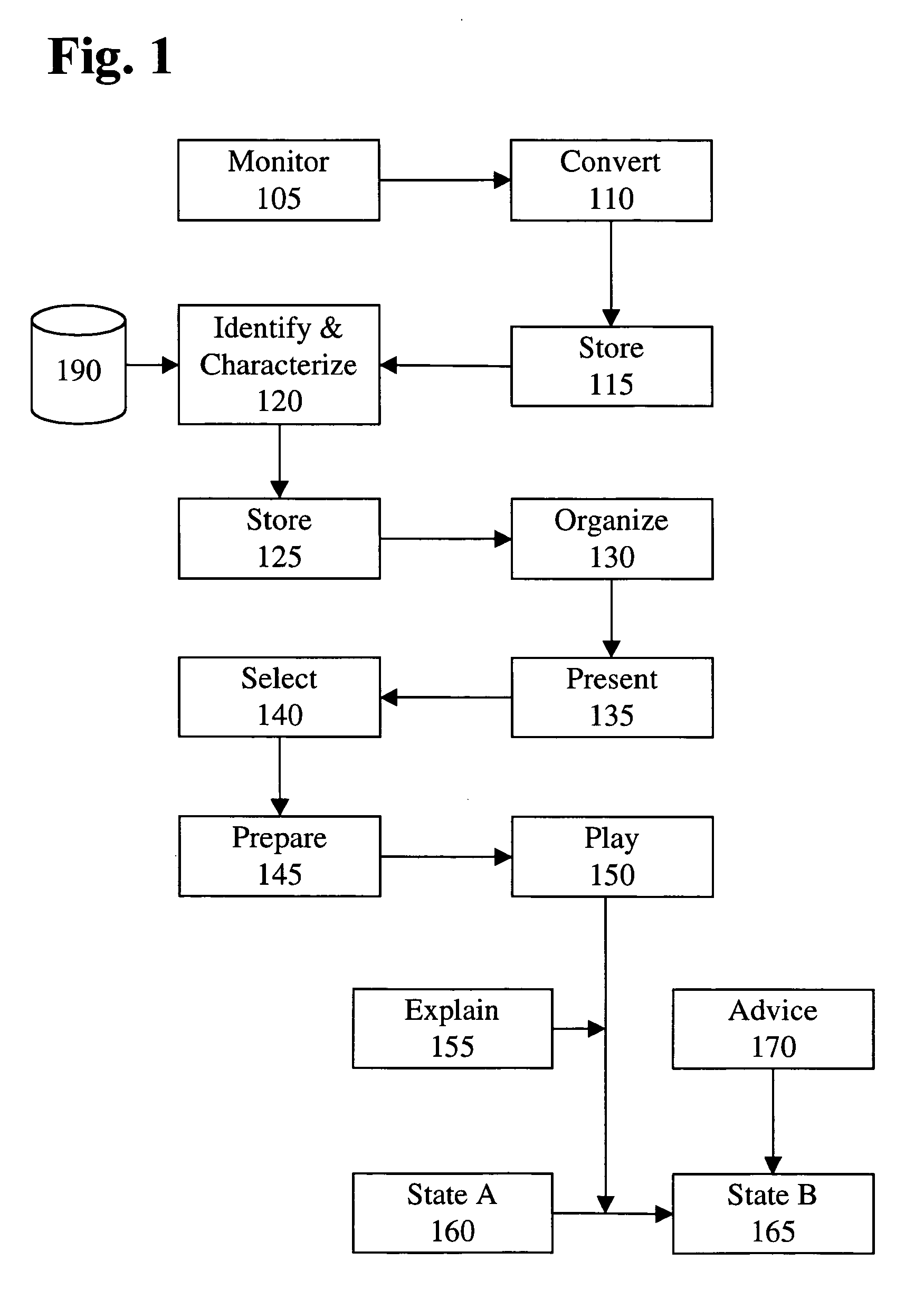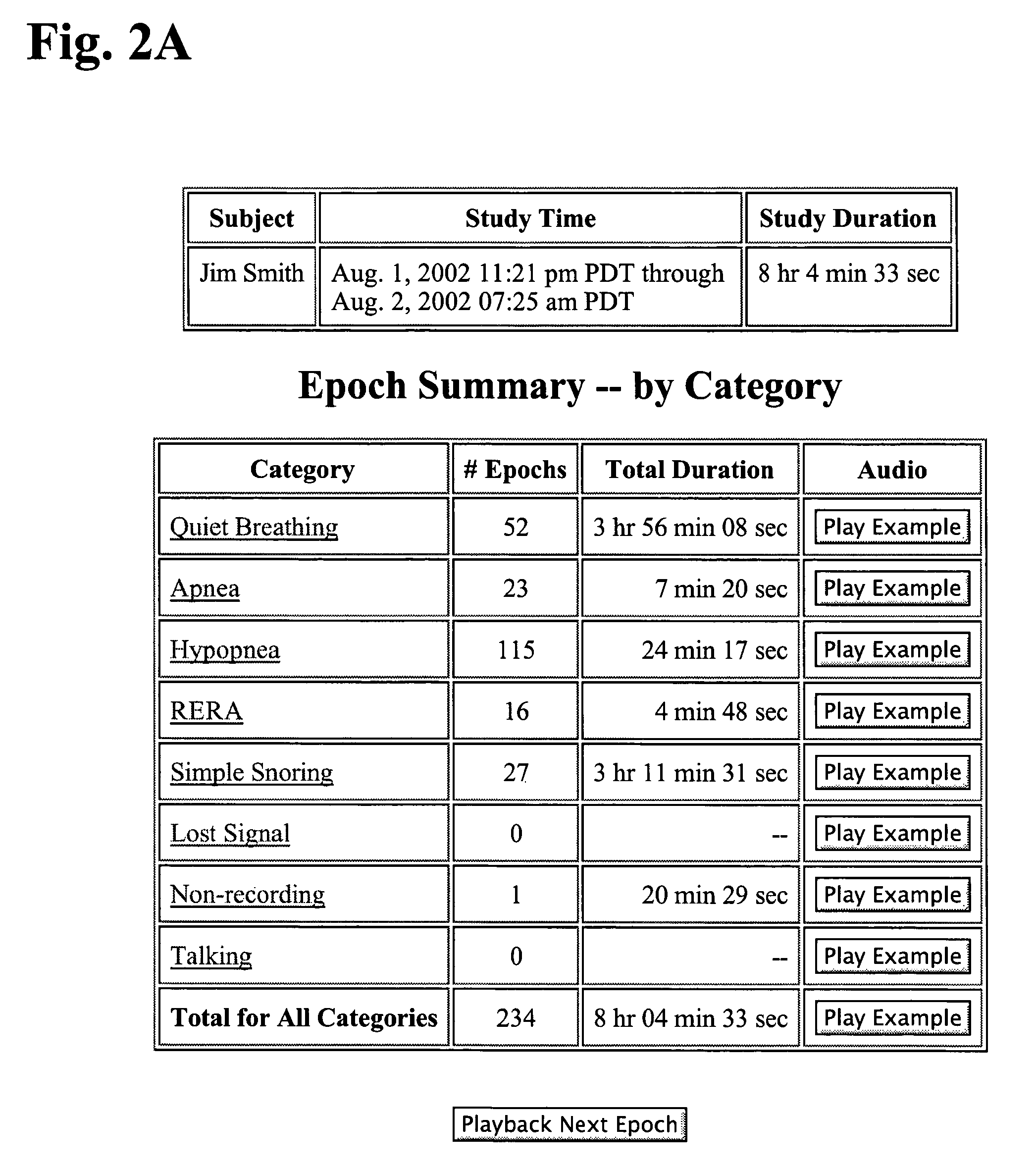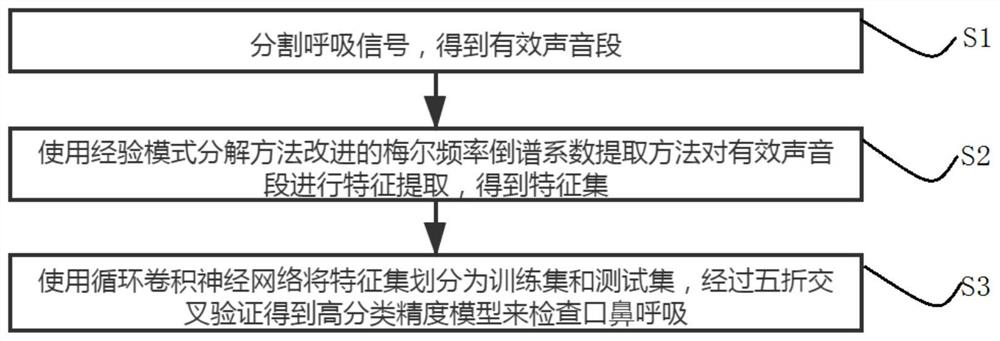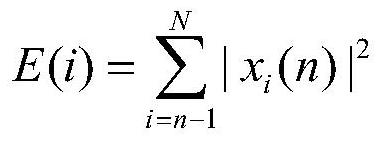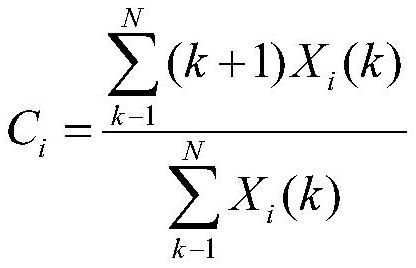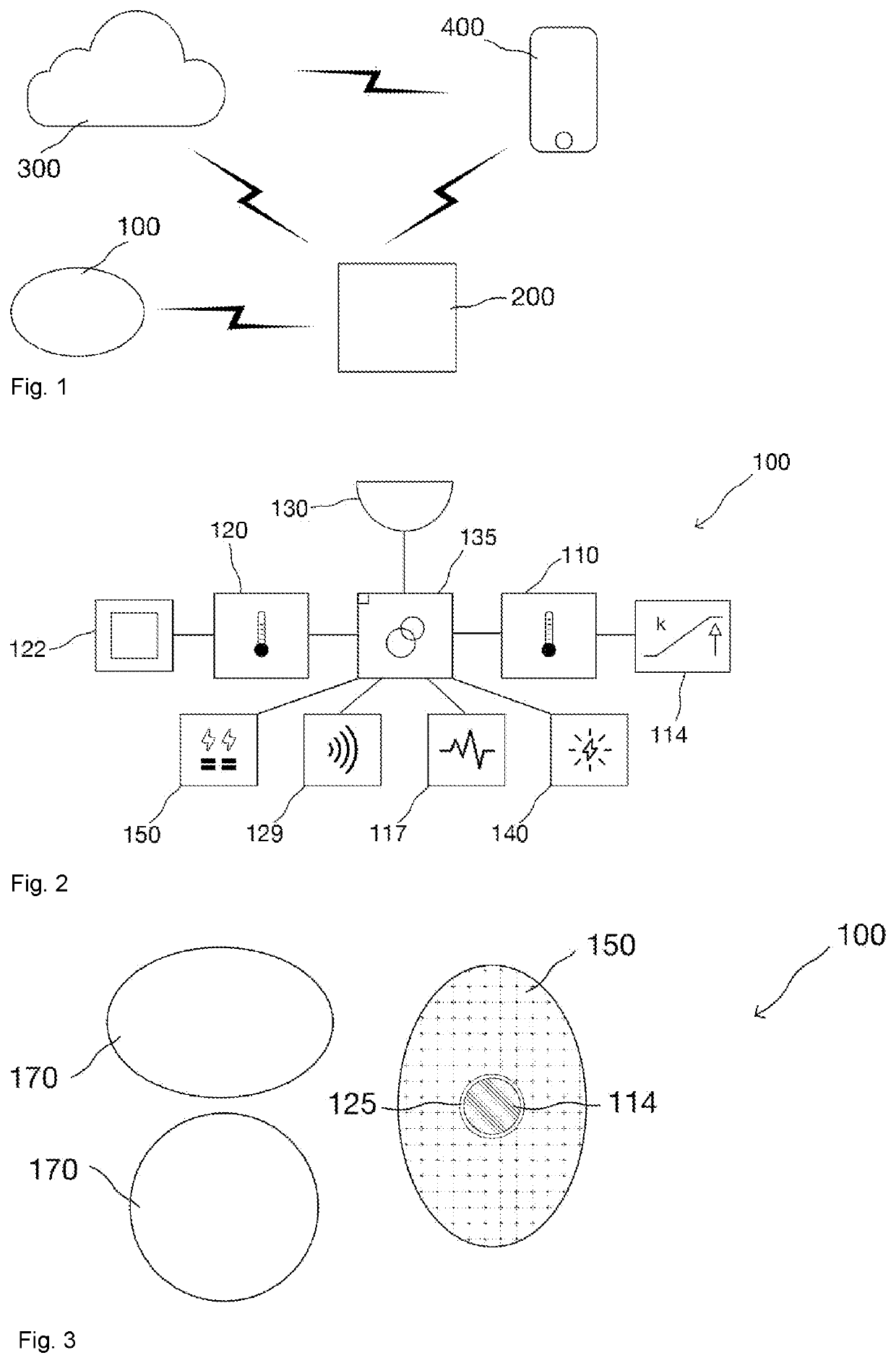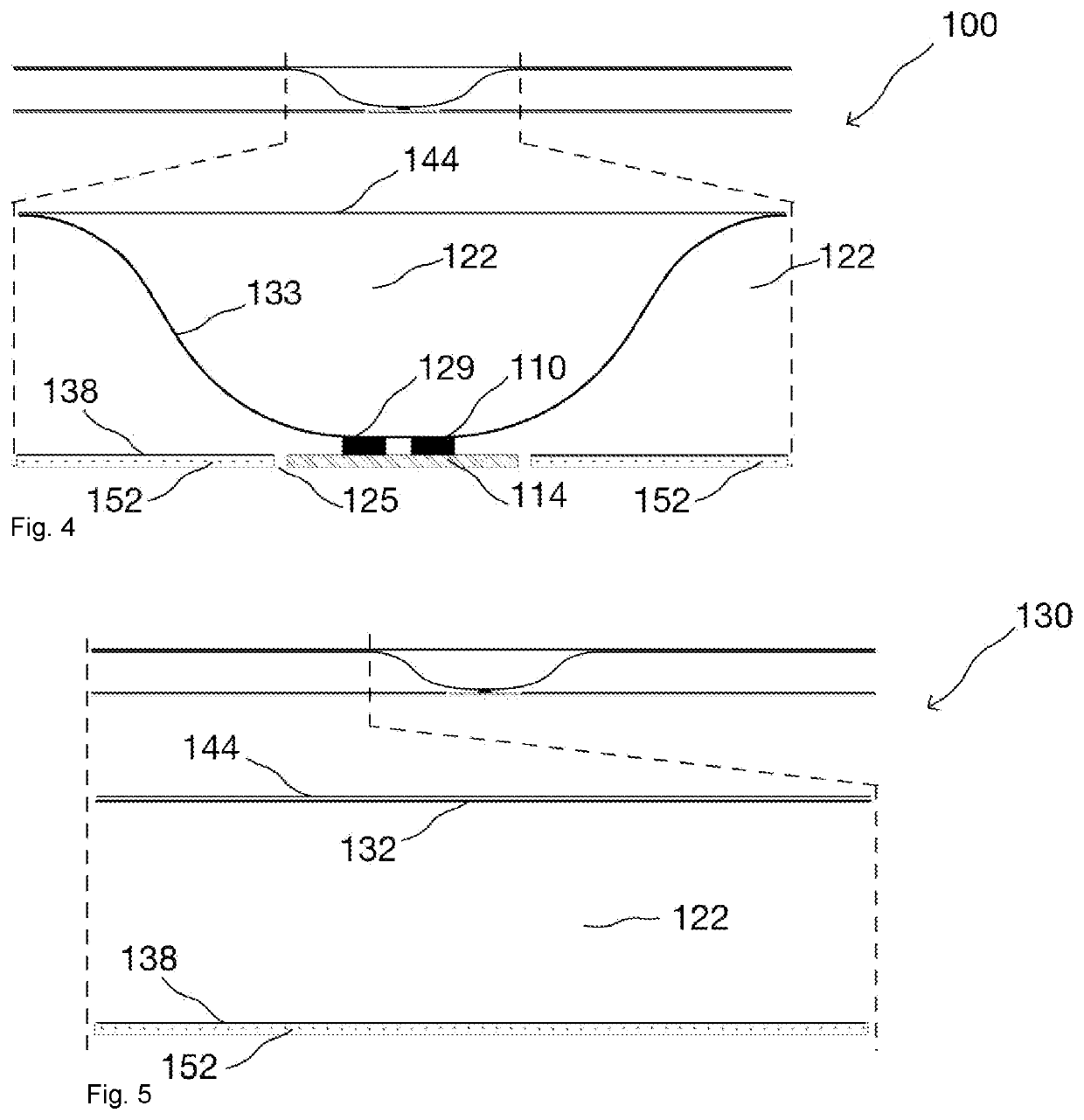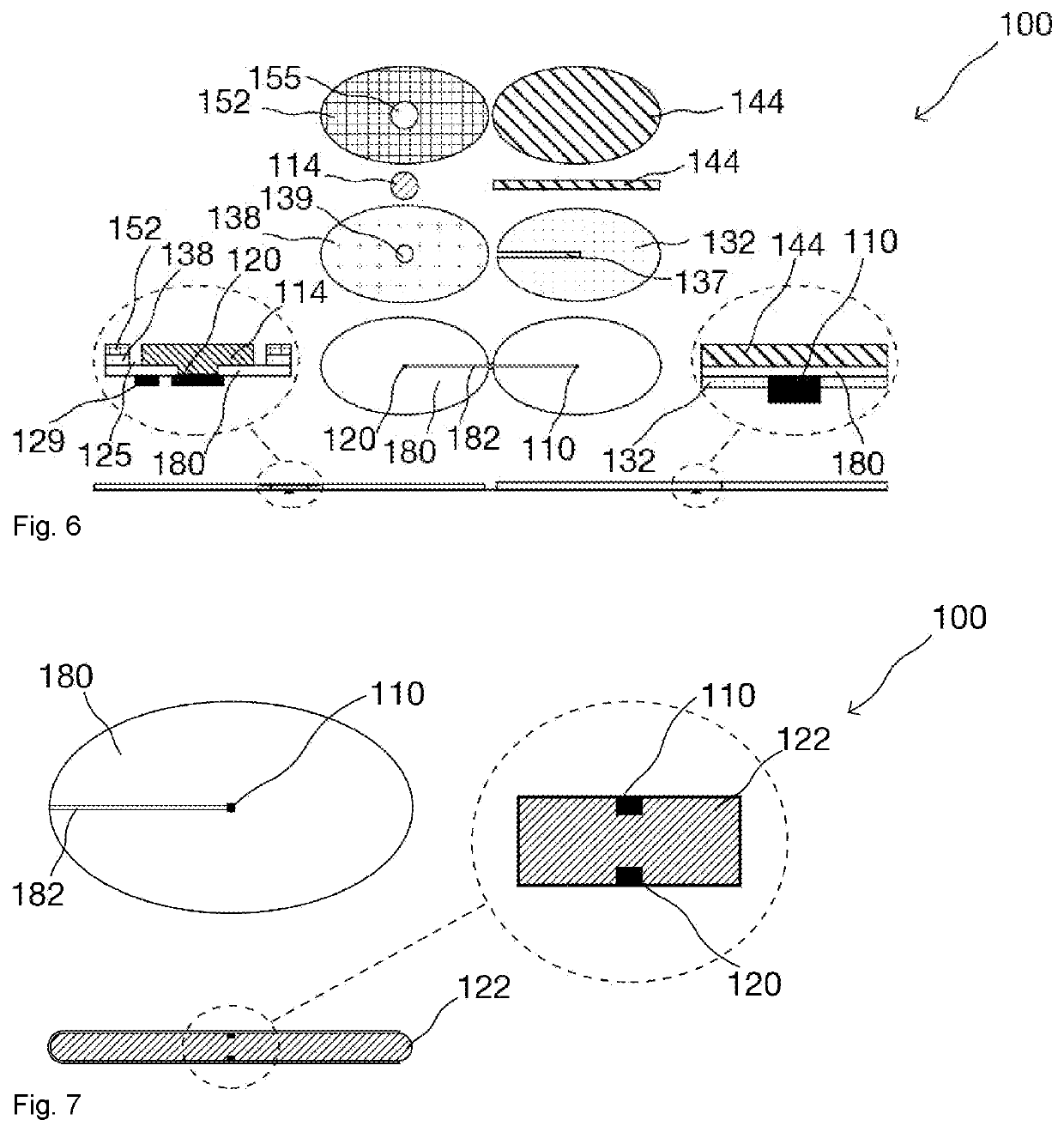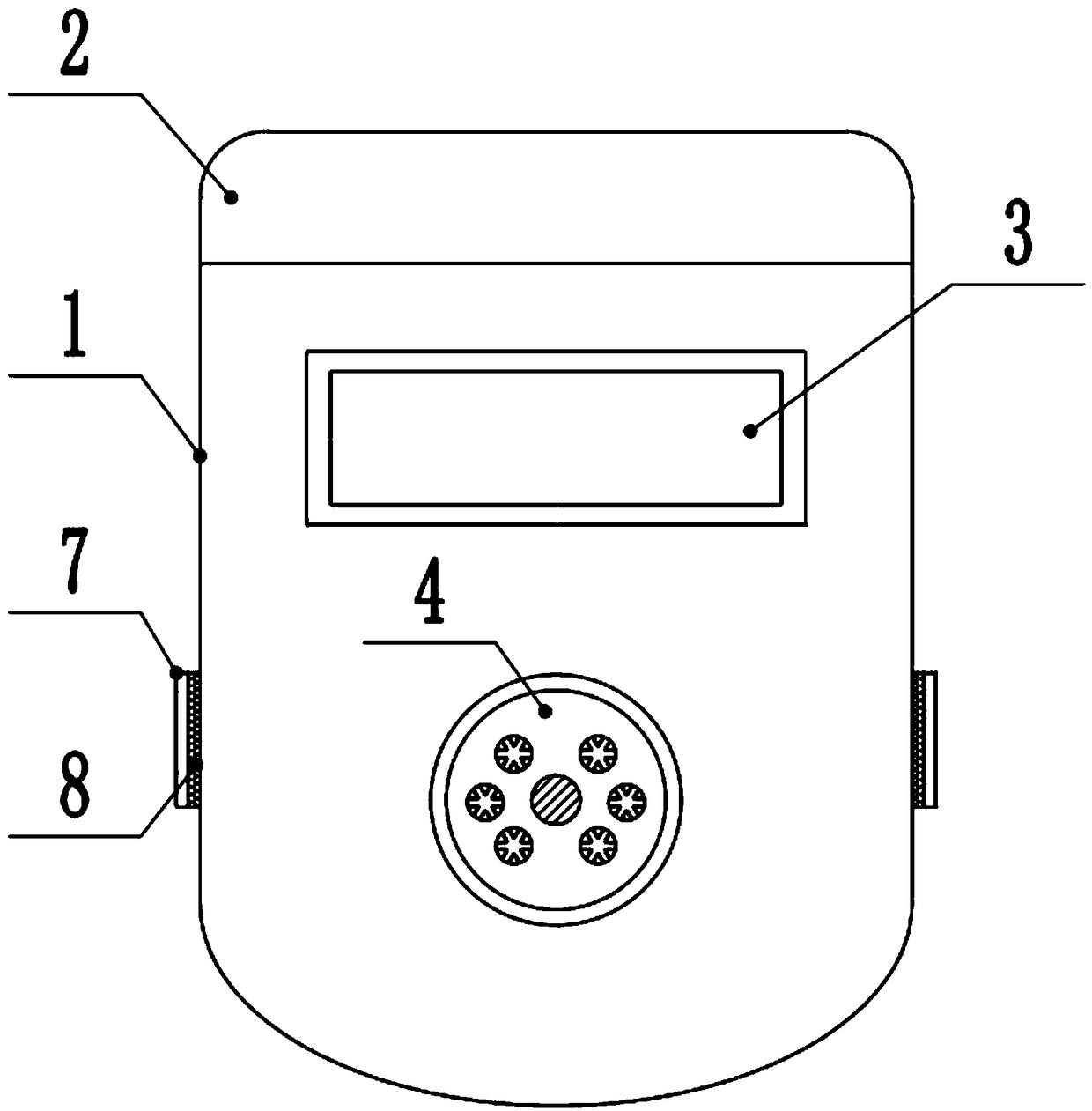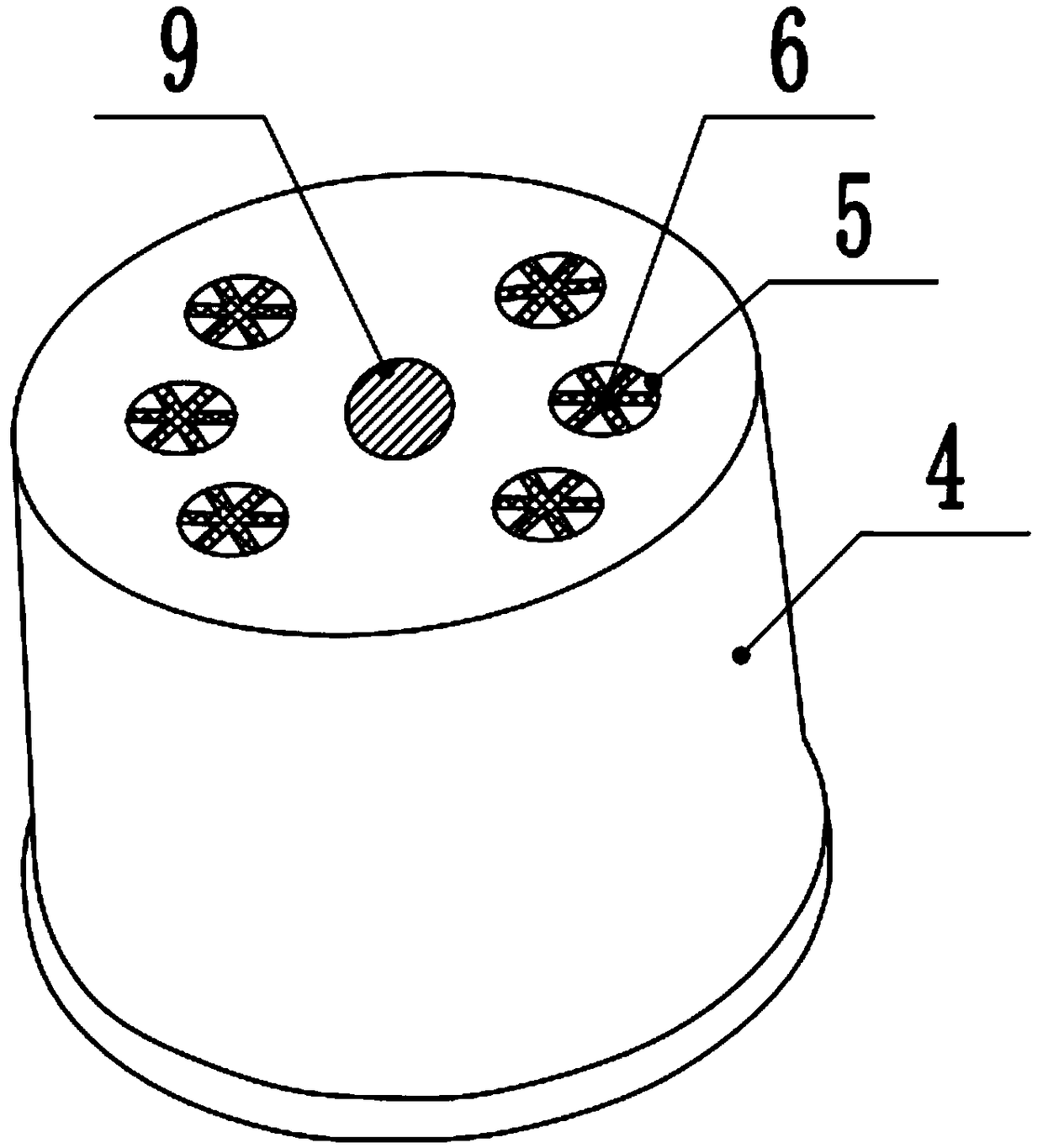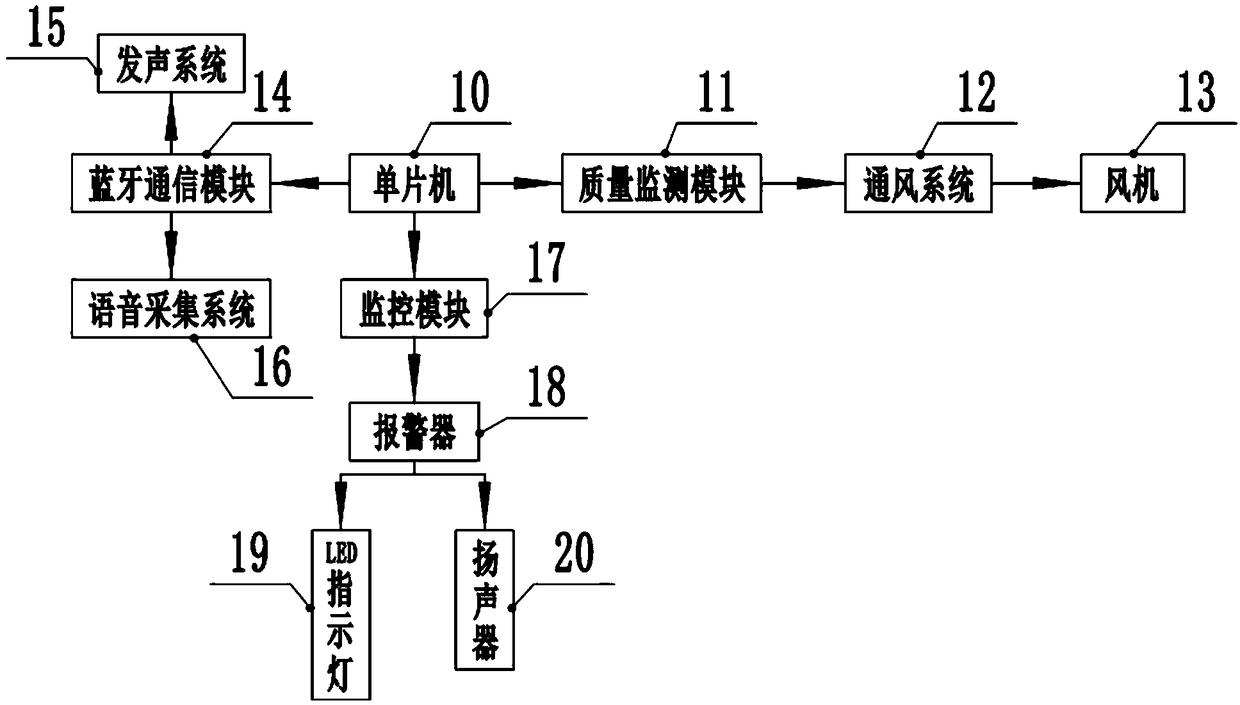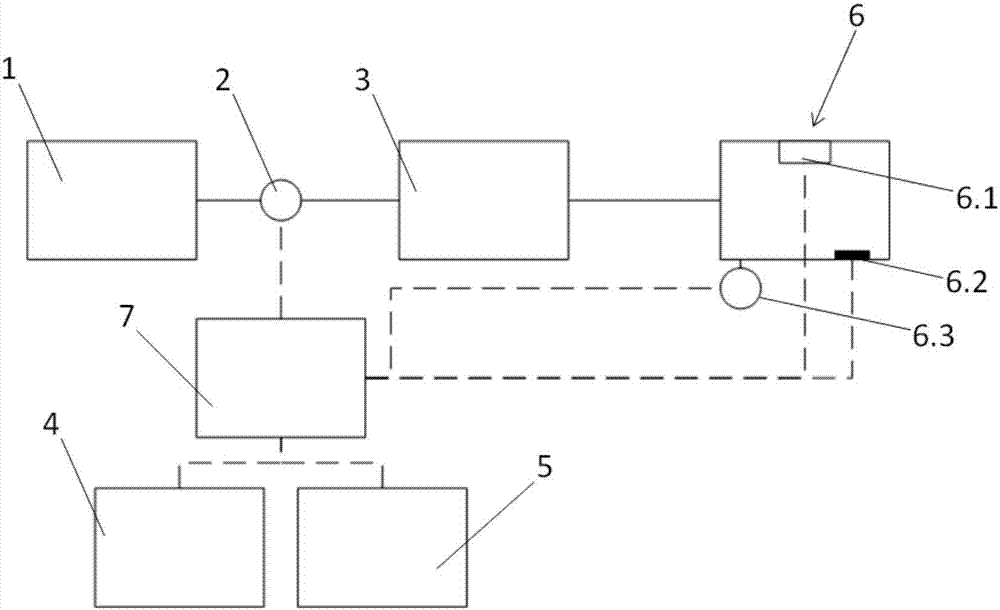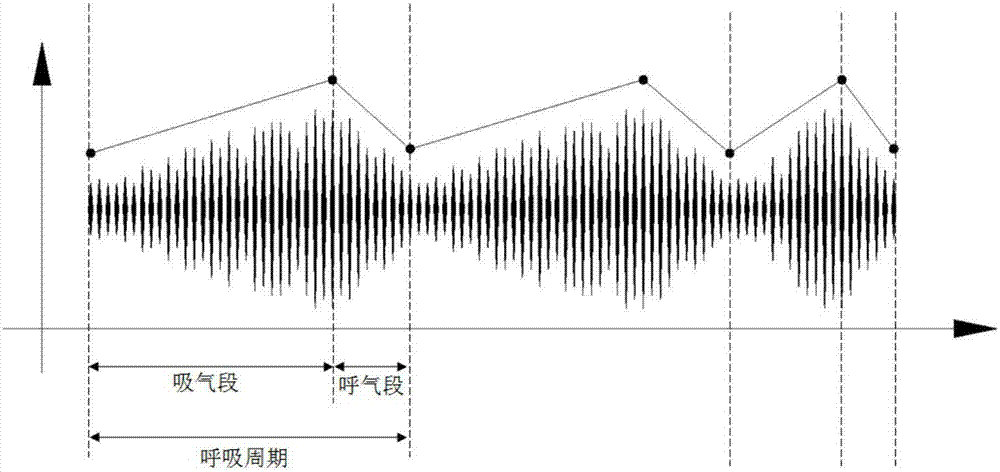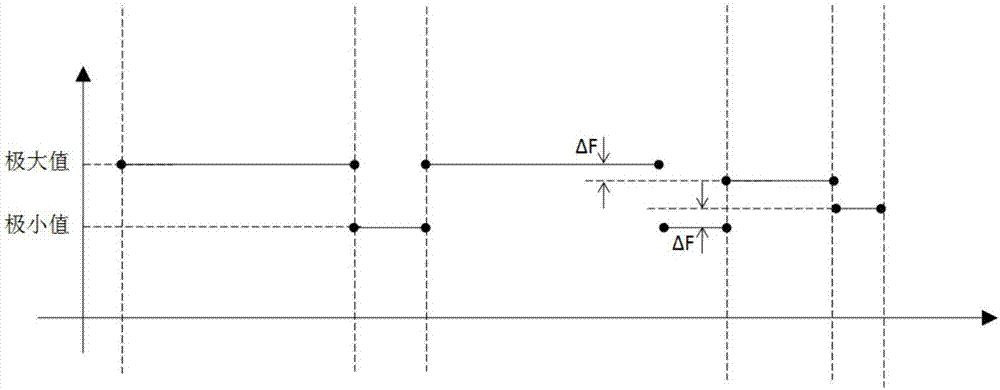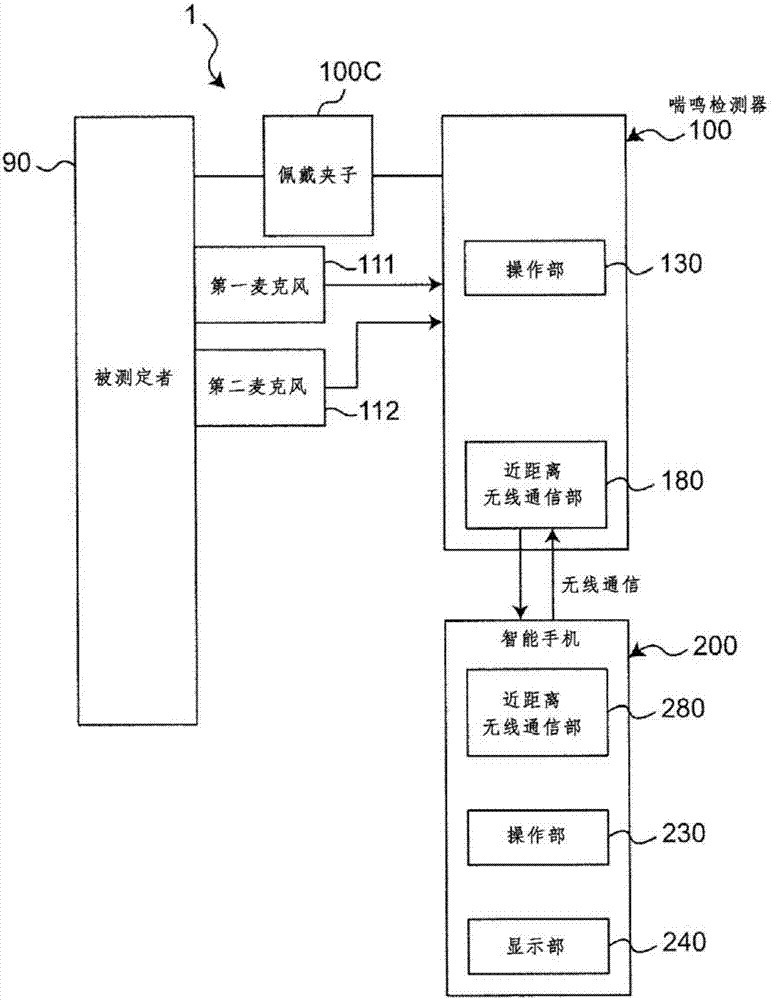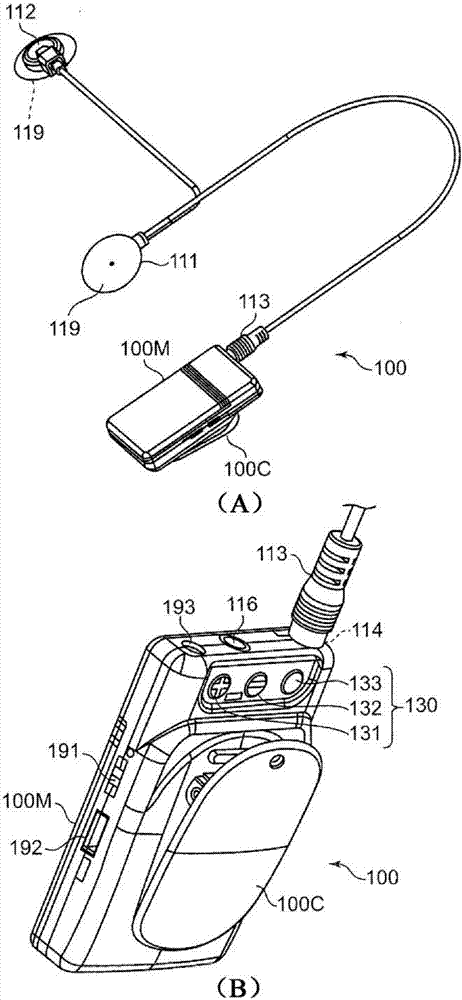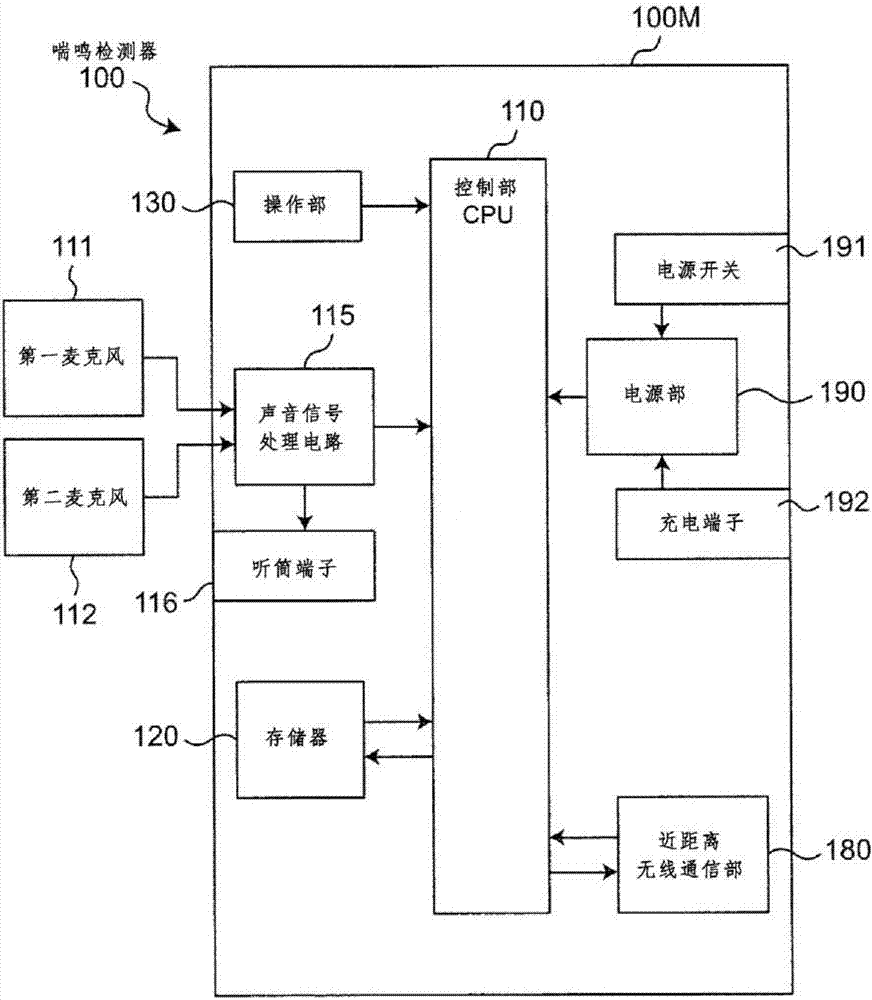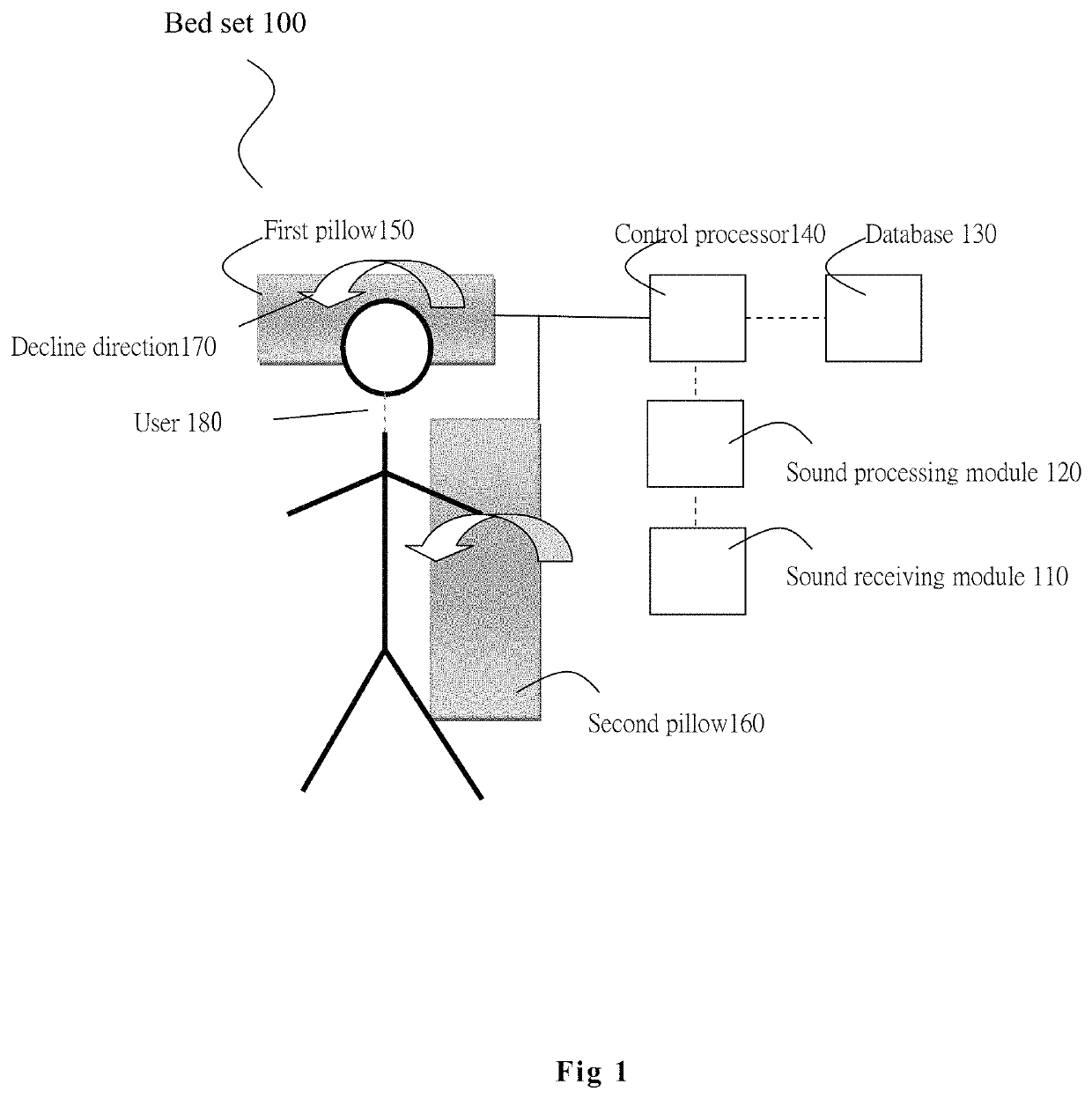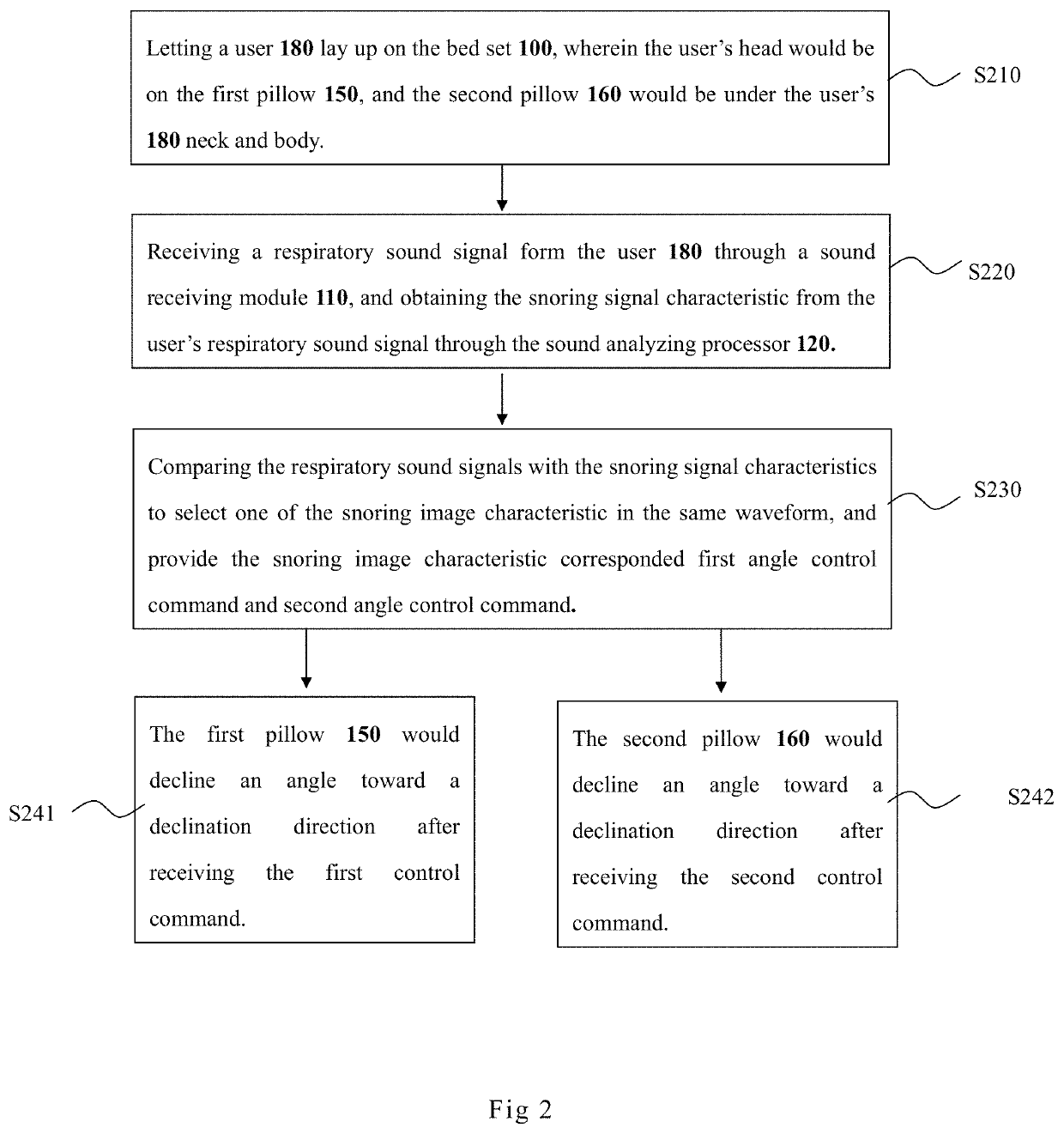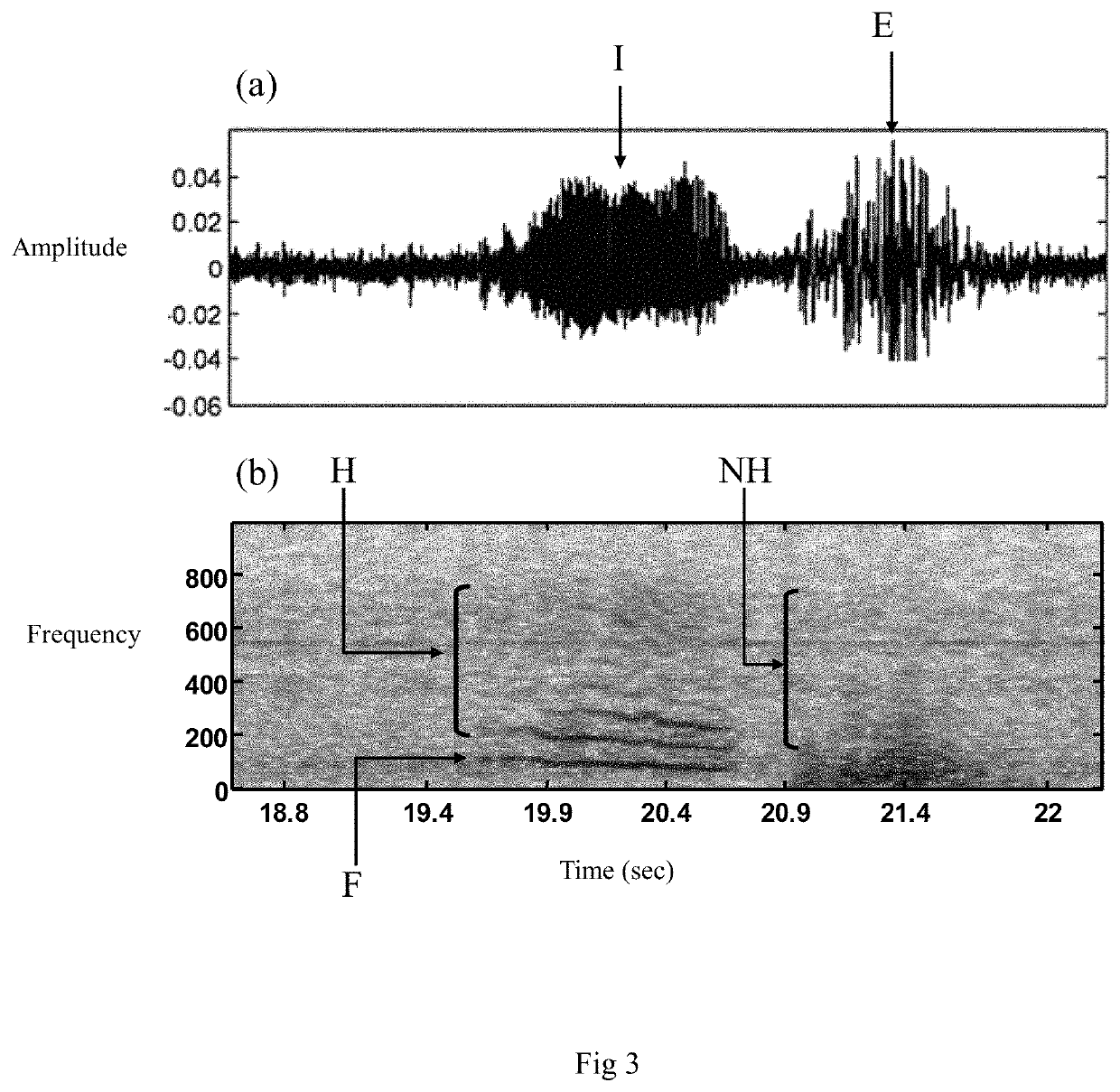Patents
Literature
70 results about "Respiratory sounds" patented technology
Efficacy Topic
Property
Owner
Technical Advancement
Application Domain
Technology Topic
Technology Field Word
Patent Country/Region
Patent Type
Patent Status
Application Year
Inventor
Respiratory sounds refer to the specific sounds generated by the movement of air through the respiratory system. These may be easily audible or identified through auscultation of the respiratory system through the lung fields with a stethoscope as well as from the spectral chacteristics of lung sounds. These include normal breath sounds and adventitious or "added" sounds such as crackles, wheezes, pleural friction rubs, stertor, and stridor.
Non-invasive monitoring of respiratory rate, heart rate and apnea
A method and apparatus for estimating a respiratory rate of a patient. The method comprises the steps of recording respiratory sounds of the patient, deriving a plurality of respiratory rates from the recorded sounds using a plurality of respiratory rate estimating methods and applying a heuristic to the plurality of derived respiratory rates, the heuristic selecting one of the derived respiratory rates. The selected respiratory rate is the estimated respiratory rate. The apparatus comprises at least one sensor recording respiratory sounds of the patient, a plurality of respiratory rate processors, each of the processors comprising a respiratory rate calculating method, a heuristic means for selecting one of the calculated respiratory rates and a display means for displaying the selected respiratory as the estimated respiratory rate.
Owner:JPMORGAN CHASE BANK NA
Phonopneumograph system
InactiveUS6261238B1Improve abilitiesReduce impactStethoscopeRespiratory organ evaluationMedicineRespiratory system
A method of analyzing breath sounds produced by a respiratory system, the method comprising: measuring breath sounds produced by the respiratory system; tentatively identifying a signal as being caused by a breath sound of a given type if it meets a first criteria characteristic of the breath sound of the given type; and confirming said identification if a tentatively identified signal meets a second criteria characteristic of the breath sound of the given type.
Owner:ISONEA ISRAEL
Non-Invasive Monitoring of Respiratory Rate, Heart Rate and Apnea
A method and apparatus for estimating a respiratory rate of a patient. The method comprises the steps of recording respiratory sounds of the patient, deriving a plurality of respiratory rates from the recorded sounds using a plurality of respiratory rate estimating methods and applying a heuristic to the plurality of derived respiratory rates, the heuristic selecting one of the derived respiratory rates. The selected respiratory rate is the estimated respiratory rate. The apparatus comprises at least one sensor recording respiratory sounds of the patient, a plurality of respiratory rate processors, each of the processors comprising a respiratory rate calculating method, a heuristic means for selecting one of the calculated respiratory rates and a display means for displaying the selected respiratory as the estimated respiratory rate.
Owner:JPMORGAN CHASE BANK NA
System and method for managing sleep disorders
ActiveUS20060266356A1Raise the possibilityRespiratorsOperating means/releasing devices for valvesRespiratory soundsSleeping disorders
The present invention provides a method for managing a patient having a sleep disorder, e.g. sleep apnea, snoring, sleep bruxism, upper airway resistance syndrome, etc. The method comprises monitoring physiological information from the patient, converting the physiological information to digital data, storing the digital data in a digital memory, identifying and characterizing epochs based on the digital data, and storing the identifying and characterizing information of the epochs in a digital memory. The method further comprises organizing the epochs according to an organization function that considers at least characterization information of the epochs, selecting an epoch based on the organizing of the epochs, and generating sound derived from the stored digital data associated with the selected epoch such that the patient hears the sound. In a specific embodiment, the physiological information monitored may include sound, e.g. respiratory sound emanating from the trachea, and / or tooth-grinding sounds.
Owner:APNEOS CORP
Method and device for analyzing athletic potential in horses
InactiveUS20020123699A1Accurately determineAccurately doneSurgeryAuscultation instrumentsMedicineExpiratory Time
Provided is a device for attachment to the head of a horse to enable recording of respiratory sounds in the intensely exercising animal, e.g., in a breezing Thoroughbred racehorse. Also provided are methods for predicting racing performance in a horse, e.g., a Thoroughbred race horse, comprising measuring expiratory and / or inspiratory times for a subject horse during exercise and relating such information to anatomy, front leg stance times and / or front leg stance distances and / or to speed (velocity) to determine the animal's potential to sustain a superior rate of ground coverage for a desired amount of time and identify a maximum comfortable velocity for the animal. A presently preferred embodiment of the methods of the invention comprises predicting performance via identification of expiratory time determined directly from the analysis of recorded respiratory sound from the exercising animal.
Owner:AIRWAYS DYNAMICS
Method and device for analyzing athletic potential in horses
InactiveUS6602209B2Reduce fatigueAffect performanceSurgeryAuscultation instrumentsMedicineExpiratory Time
Provided is a device for attachment to the head of a horse to enable recording of respiratory sounds in the intensely exercising animal, e.g., in a breezing Thoroughbred racehorse. Also provided are methods for predicting racing performance in a horse, e.g., a Thoroughbred race horse, comprising measuring expiratory and / or inspiratory times for a subject horse during exercise and relating such information to anatomy, front leg stance times and / or front leg stance distances and / or to speed (velocity) to determine the animal's potential to sustain a superior rate of ground coverage for a desired amount of time and identify a maximum comfortable velocity for the animal. A presently preferred embodiment of the methods of the invention comprises predicting performance via identification of expiratory time determined directly from the analysis of recorded respiratory sound from the exercising animal.
Owner:AIRWAYS DYNAMICS
Stethoscopy training system and simulated stethoscope
InactiveUS20140302473A1Low costSimple systemAuscultation instrumentsEducational modelsEngineeringSpeech sound
Provided is a stethoscopy training system which is inexpensive and has a simple configuration, without using a device which measures a respiratory operation of a simulated patient. The stethoscopy training system for this objective is formed from: a simulated stethoscope (1) having a sound acquisition unit further comprising a location display means (1d), a tube, and ear pipes; a location sensing means (2) for sensing the location of the sound acquisition unit; biological sound database (3); a biological sound reproducing means (4); and a timing display means (5) for displaying a timing of a repetition of a reproduced respiratory sound. The database retains as information biological sounds which are prerecorded from actual patients in correspondence with chest locations. The biological sound reproducing means further comprises a voice reproducing apparatus (4a), extracts prescribed biological sound information from the database according to the sound acquisition unit location which the location sensing means has sensed, and emits a reproduced biological sound from the voice reproducing apparatus, which a trainee hears via the ear pipes. The simulated patient views the timing display means and matches his or her respiratory operation to a reproduced respiratory sound.
Owner:CHIBA UNIVERSITY
Method for establishing pathological breath sound library, detection system for respiratory diseases, and method for processing breath sound
ActiveCN109273085AImprove targetingImprove effectivenessStethoscopeMedical automated diagnosisData setMedicine
The invention relates to a method for establishing a pathological breath sound library, and a specific application thereof. The method comprises the steps of: 1) forming a tagged breath sound data set, which is formed by acquiring pathological breath sounds of patients diagnosed with respiratory diseases and marking the pathological breath sounds; 2) training an identification model according to the breath sound data set to obtain a target identification model; 3) and integrating the breath sound data set obtained in the step 1) and the target identification model obtained in the step 2) to establish the pathological breath sound library. The pathological breath sound library can be used for teaching, scientific research and auxiliary diagnosis of diseases of the respiratory system.
Owner:南京清科信息科技有限公司
Method and device for analyzing respiratory sounds in horses
InactiveUS6952912B2Convenient recordingAccurate readingAuscultation instrumentsRespiratory organ evaluationLeft frontal sinusAirway abnormalities
The invention provides a device and a method for recording respiratory sounds in exercising horses thereby enabling the user identify upper airway abnormalities and / or evaluate athletic potential by, e.g., measuring expiratory and / or inspiratory times during exercise under field and / or actual racing conditions. In particular, the invention provides a respiratory monitoring system or device in which a transducer or microphone is placed in direct contact with the skin of the subject animal overlying the skull, e.g., the frontal sinus or nasal turbinates and thereby enable recording and analysis of upper airway respiratory sound from the exercising animal. In one embodiment, the invention provides a device wherein the transducer or microphone is positioned or embedded within a gel pad or other suitable medium and the device placed in direct contact with the skin of the animal overlying, e.g., the skull, sinus or nasal turbinates of the horse The device of the invention provides an acoustic monitoring system capable of direct attachment to the head of a racing horse which produces an output signal that is not diluted, attenuated or otherwise corrupted by noises such as wind, hoof beats and / or treadmill noises.
Owner:AIRWAYS DYNAMICS
Respiratory signal processing apparatus, respiratory signal processing method, and program
InactiveCN102551726AEfficient removalCancel noiseAuscultation instrumentsRespiratory organ evaluationAnesthesiaRespiratory signal
The invention provides a respiratory signal processing apparatus, a respiratory signal processing method, and a program. A respiratory signal processing apparatus includes a pulse-based component detection unit configured to detect a pulse-based component from a first signal acquired from a living being, and a pulse-based component removal unit configured to remove the detected pulse-based component from a second signal acquired from the living being, the second signal including respiratory sounds.
Owner:SONY CORP
Bluetooth cardiac sounds and breadth sounds auscultation monitor device
InactiveCN1883393ARealize non-contact auscultationRealize supervisionStethoscopeNursing accommodationAuscultationHeart sounds
Provided is a bluetooth wireless cardiac sound and respiration sound auscultation monitor apparatus comprising an auscultation monitor device and a receiving device, wherein the monitor device comprising a probe, a lamp indicator module, a wave filter module, a micro controller, a photoelectric insulation module, a blue tooth transmission module and a power supply module, the receiving device comprising a bluetooth receiving module, a PC machine and a bluetooth earphone. The provided apparatus is directed to infectious patients, it can both protect the medical workers and transmit the patient information at the utmost to remote processing software for analysis and storage by realizing a non-contact type auscultation and monitor of lung respiration sound and heart sound in real time. It has simple structure, reasonable design, easy operation, low power consumption and integrated function.
Owner:ZHEJIANG UNIV
Respiratory sound analysis for lung health assessment
A respiratory acoustic analysis system for sensing and analyzing respiratory sounds of a patient may include a High Frequency Chest Wall Oscillation (HFCWO) vest, at least one sensor coupled with the HFCWO vest, and an algorithm stored in a processor for processing sensed data from the at least one acoustic sensor to provide processed data describing the respiratory sounds of the patient, in a form that can be used by a physician or other user.
Owner:HILL ROM SERVICES
Lung sound signal processing method, processing device and readable storage medium
ActiveCN107545906AMake up for subjectivityMake up for limitationsStethoscopeSpeech analysisDecompositionFeature parameter
The invention discloses a lung sound signal processing method, a processing device and a computer readable storage medium. The lung sound signal processing method comprises steps: lung sound signals are acquired; an empirical mode decomposition algorithm is adopted to decompose the lung sound signals, and a moist rale component and a respiratory sound component are calculated and obtained; based on the respiratory sound component, an inspiratory phase time period is acquired; moist rale signals located in the inspiratory phase time period are extracted from the moist rale component; and basedon the moist rale signals, at least one feature parameter is acquired.
Owner:BOE TECH GRP CO LTD
Smart and intelligent wearable sleep and movement gaining respiration monitoring conditioner
PendingCN107280672ACollection directlyAccurate collectionSnoring preventionRespiratory organ evaluationHuman bodyEmbedded system
The invention discloses equipment and system for intelligently sensing, monitoring, analyzing and conditioning the respiration of a user, aims at providing a smart, portable, precise and intelligent respiration monitoring instrument for families and individuals, and relates to the field of intelligent wearable medical apparatuses. The respiration monitoring instrument is used for monitoring sleep and movement respiration, and collecting respiration data, assisting in sleep, inhibiting snore, preventing apnea and the like. Modularized integrated design is adopted, respiration audio collecting and processing functions are integrated, the respiration monitoring instrument is integrated into small-size arc equipment, by making the respiration monitoring instrument worn at the nose of the human body, and additionally arranging a double-barreled audio collecting device, respiration audios are collected at a close range, data like sleep postures and movement postures is recorded, and the respiration and posture data is transmitted to an intelligent mobile phone (equipment) to be analyzed so that through a Bluetooth data module, the sleep and respiration can be intelligently assisted in being improved.
Owner:刘炜
System and method for health condition monitoring
A system for health condition monitoring includes a wearable device, a portable device and a server. The portable device is capable of communicating between the wearable device and the server. The system further includes a non-contact ECG acquisition module for capturing ECG signals from a user wearing the wearable device, a non-contact audio acquisition module for capturing a respiratory sound signal and a heart sound signal from the user wearing the wearable device, a first signal processing and analysis module for receiving and processing the ECG signals, the respiratory sound signal and the heart sound signal to perform QRS detection, HR calculation and ECG derived RR determination, and a second signal processing and analysis module for receiving and processing the ECG signals, the respiratory sound signal and the heart sound signal to perform heart sound localization, heart sound cancellation, respiratory sound restoration, and sound based RR determination.
Owner:DELTA ELECTRONICS INTL SINGAPORE +1
Bed set for inhibition obstructive sleep apnea
ActiveUS20170319376A1Improve signal-to-noise ratioSnoring preventionSensorsFrequency spectrumMedicine
The present invention provides a bed set for inhibition of obstructive sleep apnea, which includes: a sound receiving module, is used to receive a respiratory sound signal obtained from a user during a time period; a sound analyzing processor, which is connected with the sound receiving module, is used to obtain a snoring sound characteristic from the spectrum of respiratory sound signal; a database, which has a plurality of snoring image characteristics corresponding to a plurality of basic snoring sound characteristics for different respiratory actions; a control processor, which is connected with the sound analyzing processor and the database, is used to compare the snoring sound characteristic with the basic snoring sound characteristics to select one of the snoring image characteristics in the same waveform, and provides the first angle control order and the second angle control order corresponding to the selecting snoring image characteristic; a first pillow, which is connected to the control processor, declines a first angle toward a declination direction after receiving the first control order; and a second pillow, which is connected to the control processor, declines a second angle toward the declination direction after receiving the second control order.
Owner:NAT CENT UNIV
System and methods for estimating respiratory airflow
ActiveUS10004452B2Cancel out effectError minimizationStethoscopeSensorsSound detectionDisplay device
A system and methods for screening patients suspected of obstructive sleep apnea. The system includes a sound detection device configured for detecting tracheal respiratory sound signals of a patient and a Sao2 detection device for detecting SaO2 signals of the patient. The system also has a head position detection device for detecting the head positions of the patient during testing, and a processing module for receiving and analyzing the tracheal respiratory sound signals to extract sound data and the Sao2 signals to extract blood oxygen saturation data. The processing module further receives and analyzes the head position signals captured by the head position detection device to generate head position data. The system may further include a display for displaying information about the various data generated by the processing module.
Owner:UNIVERSITY OF MANITOBA
Acoustic system and methodology for identifying the risk of obstructive sleep apnea during wakefulness
ActiveUS20140142452A1The result is accurateEasy to filterRespiratory organ evaluationSensorsTracheal breath soundsRespiratory sounds
Disclosed are a system and methods for screening a patient for obstructive sleep apnea using features of tracheal breath sounds obtained from the patient during wakefulness.
Owner:UNIVERSITY OF MANITOBA
Respiration sound signal recognition method and system based on visualization
The invention relates to the field of audio signal identification. The invention discloses a method and a system for identifying respiratory sound signals based on visualization, the short-time Fourier transform is used to perform the time-frequency analyze of the cut respiratory sound period signal, and the one-dimensional audio signal is converted into the two-dimensional visual signal. Throughthe image processing and analysis, the data set is formed, and the convolution neural network picture classification is carried out to realize the distinction between normal and three pathological respiratory sounds. Pathological respiratory sound signal murmur is obvious, the murmur formed during exhalation and inhalation has special spectral information. A time-frequency analysis method is used,the short-time Fourier transform is used to perform the time-frequency analyze of the cut respiratory sound period signals, and the one-dimensional audio signal is converted into the two-dimensionalvisual signal. Through the processing and analysis of the images, a data set is formed, and the visual images are classified based on convolution neural network to distinguish normal and three pathological respiratory sounds.
Owner:SOUTH CHINA NORMAL UNIVERSITY +1
Auscultation apparatus, auscultation method, and medical examination and diagnostic device
An auscultation apparatus including an optical microphone is proposed. Optical microphones can reliably acquire sounds of the most disparate frequencies even in an environment permeated by electromagnetic fields, without influencing said fields. Such an optical microphone of an auscultation apparatus can be disposed inside a medical examination and diagnostic device during operation. Given a suitable arrangement, both the heart sounds and the respiratory sounds of a patient can be recorded and monitored already with just one optical microphone.
Owner:SIEMENS HEALTHCARE GMBH
Lung lobe breath sound monitoring and automatic analyzing device
InactiveCN104523289AReduce the number of inspectionsAutomatic analysis is accurateAuscultation instrumentsLung lobeAudio power amplifier
Owner:NORTH CHINA UNIVERSITY OF SCIENCE AND TECHNOLOGY
Sleep quality improving method and pillow
ActiveCN110687835ARelief or elimination of abnormal breathingAlleviate or eliminate obstructive respiratory abnormalitiesPillowsProgramme controlAbnormal breathingEmergency medicine
The invention provides a method for improving abnormal sleep breathing pattern and improving sleep quality and a corresponding device. According to the method, a flexible pressure distribution sensingdevice arranged on the pillow is used to determine pressure distribution of the head and the neck when a sleeper lies down, so that possible sleeping postures of the sleeper are deduced; meanwhile, respiratory audio signals of the sleeper in the sleeping period are detected and analyzed, so as to deduce whether the sleeper has related physiological phenomena of obstructed respiratory abnormalities such as severe snoring or respiratory apnea symptoms. In combination with the possible sleeping postures and the abnormal respiratory phenomena, the postures of the head and neck of the sleeper areadjusted by means of the pillow capable of automatically adjusting the shape, so that the posture of the sleeper is changed, muscles of the sleeper are relaxed, the respiratory tract of the sleeper isunblocked, and the purpose of good sleeping quality is achieved.
Owner:EBIO TECH INC
Abnormal lung auscultation sound intelligent identification system
ActiveCN112687281AIntelligent recognition in real timeReal-time automatic identificationStethoscopeSpeech analysisBandpass filteringAuscultation
The invention relates to an abnormal lung auscultation sound intelligent identification system, which comprises a lung auscultation sound acquisition device, a controller, a terminal and a cloud, the lung auscultation sound acquisition device acquires a digital lung auscultation sound signal of a monitored object, and the controller performs digital band-pass filtering on the digital lung auscultation sound signal and converts the digital lung auscultation sound signals into the lung auscultation sound signals in the wav format, the terminal transmits the lung auscultation sound signals in the wav format to the cloud end, the cloud end obtains the lung auscultation sound types of the lung auscultation sound signals in the wav format, and when the lung auscultation sound types are abnormal sounds, the respiratory cycle where the abnormal sounds are located is obtained. And the respiratory cycle of the abnormal sound and the abnormal sound are transmitted to the terminal to be displayed, so that real-time and automatic identification of the breathing sound is realized.
Owner:THE FIFTH AFFILIATED HOSPITAL OF GUANGZHOU MEDICAL UNIV
System and method for managing sleep disorders
ActiveUS8226569B2Raise the possibilityRespiratorsOperating means/releasing devices for valvesDigital dataDigital memory
Owner:APNEOS CORP
Deep learning-based method for examining mouth and nose breathing
The invention relates to a deep learning-based method for examining mouth and nose breathing, which comprises the following steps of: segmenting a breathing signal to obtain an effective sound segment; performing feature extraction on the effective sound segments by using a Mel-frequency cepstrum coefficient extraction method improved by an empirical mode decomposition method; and dividing the feature set into a training set and a test set by using a cyclic convolutional neural network, and performing five-fold cross validation to obtain a high-classification-precision model to examine mouth and nose breathing. The effective sound segments of the respiratory signal can be segmented to extract the effective sound segments, so that the processing of the respiratory sound has pertinence. Effective sound segments are decomposed by introducing an empirical mode decomposition method of non-stationary signals, multi-scale analysis can be performed on the signals, and feature extraction is performed on the effective sound segments by using an improved Mel-frequency cepstrum coefficient extraction method. And the feature set is divided into a training set and a test set by using a cyclic convolutional neural network, and five-fold cross validation is performed to obtain a high-classification-precision model to examine mouth and nose breathing.
Owner:GUANGDONG UNIV OF TECH
Sensor system and method for continuous and wireless monitoring and analysis of respiratory sounds, heart rate and core temperature in organisms
PendingUS20220000375A1High degree of integrationEasy to optimizeHumidity sensorsAcoustic sensorsCapacitanceBiological body
A system and method for continuous readout is provided. The object of the invention is achieved by a contact surface or attaching to a surface of an organism, a sensor system in thermal, mechanical and electrical contact with the contact surface, a radio chip operatively connected to the sensor, wherein the radio chip will respond to an induced signal from a reader by reading data from the sensor and transmit said data, and method for operating the sensor wherein the data from the sensor system is compensated for environmental effects using comprising a second sensor for detecting at least one property from the group comprising ambient temperature, pressure, flow, level, proximity, displacement, bio, image, gas, chemical, acceleration, orientation, humidity, moisture, impedance, capacitance, force, electric, magnetic and mass, thus forming compensated data.
Owner:ONIO AS
A wearable intelligent safety monitoring haze prevention multifunctional electric welding mask
A wearable intelligent safety monitoring haze prevention multifunctional electric welding mask is provided. The invention relates to the field of welding protective articles, the mask comprising a welding face mask, wherein a respiratory sound generating device is fixedly installed in the middle under the front surface of the welding face mask, a sound generating hole is arranged in the middle ofthe front surface of the respiratory sound generating device, a respiratory hole is arranged on the peripheral edge of the sound generating hole, and the surface of the respiratory hole is fixedly connected with a first filter screen. So that that function of the invention are varied, so that a single chip microcomputer can be installed, A Bluetooth communication module is arrange on that single chip microcomputer, monitoring module and quality monitoring module, so as to realize Bluetooth communication of welding face mask, And through the monitoring module, the monitoring safety alarm is realized, so that the welder can know the dangerous situation at the first time, and timely deal with it to prevent the tragedy from happening, and the surrounding environment is monitored by the qualitymonitoring module, so that the welder can be ventilated in time when the surrounding environment is poor and the haze is heavy, so as to ensure that the welder can breathe in fresh air, and has strong practicability.
Owner:JIANGSU MEIXIN OPTOELECTRONICS TECH
Respiration assistance equipment
InactiveCN106943652AAccurate Respiratory Assistance ServicesRespiratorsMedical devicesEmergency medicineBottle
The invention discloses respiration assistance equipment. The respiration assistance equipment comprises an air bottle, an oxygen bottle, a regulating valve, a gas mixing chamber, a breathing hood, a respiration sound collection device, an ultrasonic image device, and a controller. The respiration assistance equipment has the following beneficial effects: according to real-time body information on patients, accurate respiration assistance services can be provided for a patient.
Owner:韩健
Wheezing detection device
This wheezing detection device is provided with a breathing sound detection unit that detects the breathing sounds of a subject and acquires a chronological breathing sound signal representing the breathing sounds. The wheezing detection device is also provided with a determination processing unit that, for each of preset processing unit periods, converts the breathing sound signal into a frequency space, acquires the frequency spectrum of the breathing sounds, and determines whether a peak (Pd) in the frequency spectrum indicates wheezing on the basis of the height (L) and the width (D) of the peak (Pd).
Owner:OMRON HEALTHCARE CO LTD
Bed set for inhibition obstructive sleep apnea
The present invention provides a bed set for inhibition of obstructive sleep apnea, which includes: a sound receiving module, is used to receive a respiratory sound signal obtained from a user during a time period; a sound analyzing processor, which is connected with the sound receiving module, is used to obtain a snoring sound characteristic from the spectrum of respiratory sound signal; a database, which has a plurality of snoring image characteristics corresponding to a plurality of basic snoring sound characteristics for different respiratory actions; a control processor, which is connected with the sound analyzing processor and the database, is used to compare the snoring sound characteristic with the basic snoring sound characteristics to select one of the snoring image characteristics in the same waveform, and provides the first angle control order and the second angle control order corresponding to the selecting snoring image characteristic; a first pillow, which is connected to the control processor, declines a first angle toward a declination direction after receiving the first control order; and a second pillow, which is connected to the control processor, declines a second angle toward the declination direction after receiving the second control order.
Owner:NAT CENT UNIV
Features
- R&D
- Intellectual Property
- Life Sciences
- Materials
- Tech Scout
Why Patsnap Eureka
- Unparalleled Data Quality
- Higher Quality Content
- 60% Fewer Hallucinations
Social media
Patsnap Eureka Blog
Learn More Browse by: Latest US Patents, China's latest patents, Technical Efficacy Thesaurus, Application Domain, Technology Topic, Popular Technical Reports.
© 2025 PatSnap. All rights reserved.Legal|Privacy policy|Modern Slavery Act Transparency Statement|Sitemap|About US| Contact US: help@patsnap.com
